
‘Leading positive change in agriculture’


‘Leading positive change in agriculture’
In1913ayoungEnglishmanboardedashipatLiverpoolandsailedtotheUnited StatesofAmerica.There,hetravelledtoDetroitandsawhowHenryFordwasmass producingautomobileenginesatafractionoftheircostintheUnitedKingdom.He broughttheseideasbackhomeandputthemintopracticeinhisfactoryatCowley, Oxford.HisnamewasWilliamMorris,doyenoftheBritishmotorindustryduringits goldenera,whowaslatermadeapeer,asLordNuffield,in1934.In1943hegave £10milliontofoundtheNuffieldFoundationwhichin1947,recognisingthelinkage betweenhealthandgoodagriculturalpractices,begantofundscholarshipsfor BritishfarmerstotravelinthefootstepsofWilliamMorris...
Inspirepassioninpeopleanddeveloptheirpotentialtoleadpositivechangeinfarmingandfood
Leadingpositivechangeinagriculture-inspiringpassionandpotentialinpeople
• Building knowledge through global experience
• Sharing brilliant ideas
• Making things happen
• Developing tomorrow’s leaders
• Inspiring commitment
Each year Nuffield Farming Scholarships are awarded to deserving individuals working in farming, horticulture, forestry or any other countryside and ancillary industry - or are in a position to influence those who doand are resident in the United Kingdom. They will have spent at least two years working in their current appointment, be at least three years since leaving full time education or study and be no more than 45 years old. Applications are made electronically by 31st July each year via the website: www.nuffieldscholar.org.
Mike Vacher, Director
Telephone: 01460 234012
Email: Director@NuffieldScholar.org
Copyright © Nuffield Farming Scholarships Trust. ISBN: 978-1-916850-03-3
Published by The Nuffield Farming Scholarships Trust. Southill Farmhouse, Staple Fitzpaine, Taunton, TA3 5SH. Registered Charity Number 1098519 www.nuffieldscholar.org
Cover Photograph:
After a failed OSR crop, Toby Simpson NSch replanted this heavy clay field in Cambridgeshire with a mix of phacelia, oil radish, vetch, spring beans and Egyptian clover, as well as a border of sunflowers. The longer-thanusual growing period for the cover crop allowed it to become well-established and flourish, much to the delight of passers-by on the adjacent public footpath. It was then rolled to terminate growth and to cycle nutrients back into the soil ahead of a winter wheat crop, minimising the need for sprays and inorganic fertilisers.
Toby will present the findings of his study ‘Catch and cover cropping opportunities in UK arable agriculture’ at the 2023 Nuffield Farming Conference.

Welcome to the 2023 edition of our Nuffield Farming Scholarships Trust Annual Report.
You will find it runs to over one hundred and twenty pages compared to the more normal eighty. I hope that you will find it full of useful information and updates on the progress of our Nuffield Farming Scholars during and after their scholarships. It is designed to inform, update and even amuse….
The core of the Annual Report is the Executives Summaries of all those thirty four scholars, spanning five year groups, who will present at the 2023 Nuffield Farming Conference at Exeter. However, you will also find a record of all our many sponsors and supporters along with a list of personalities and those achieving special awards over the years – not to mention sections on our recent activities and reports from many Country, Regions and Study Groups.
This is the eleventh and final Nuffield Farming Annual Report which I have overseen. Ten years ago Poey and I found ourselves chasing down last minute contributions whilst simultaneously preparing for our first conference. It is so good that nowadays much of the editorial work is managed by Claire Laidler for whom I am most grateful.
Enjoy!
 Mike Vacher
Director Nuffield Farming Scholarships Trust
Mike Vacher
Director Nuffield Farming Scholarships Trust
The Nuffield Farming Scholars presently embarking on and engaged in their studies wish to express their sincere appreciation to all those who are supporting them on their travels and making their ‘Nuffield Journey’ possible, especially their Scholar Sponsors listed below.
AHDB
Alan & Anne Beckett Award
BEMB Trust
Central Region Farmers Trust
Dartington Cattle Breeding Trust
Elizabeth Creak Charitable Trust (a Clyde Higgs Scholarship)
John Oldacre Foundation
MacRobert Trust
McDonald’s UK and Ireland
NFU Mutual Charitable Trust
Richard Lawes Foundation
Royal Highland & Agricultural Society of Scotland
Royal Welsh Agricultural Society
The Trehane Trust
Worshipful Company of Butchers
Worshipful Company of Farmers and Savills
Worshipful Company of Gardeners
Yorkshire Agricultural Society
Young Nuffield Award
AHDB
Alan and Anne Beckett NSchs
BEMB Research and Education Trust
Central Region Farmers Trust
East Sussex NFU
Elizabeth Creak Charitable Trust (a Clyde Higgs Scholarship)
Food Chain Scholarship
John Oldacre Foundation
MacRobert Trust
McDonald’s UK and Ireland
NFU Mutual Charitable Trust
Richard Lawes Foundation
Royal Highland and Agricultural Society of Scotland
Royal Norfolk Agricultural Association
The Poultry Meat Award: Aviagen, Cobb
Europe & Hubbard
The Trehane Trust
Thomas Henry Foundation
Worshipful Company of Farmers with Savills
Worshipful Company of Fruiterers
Yorkshire Agricultural Society
Agricultural and Horticultural Development Board
Alan and Anne Beckett
Central Region Farmers Trust
Dartington Cattle Breeding Trust
Elizabeth Creak Charitable Trust (a Clyde Higgs Scholarship)
Food Chain
John Oldacre Foundation
MacRobert Trust
McDonald’s UK and Ireland
NFU Mutual Charitable Trust
Richard Lawes Foundation
Royal Highland and Agricultural Society of Scotland
Royal Norfolk Agricultural Association
Royal Welsh Agricultural Society
The Trehane Trust
Thomas Henry Foundation
Three Counties Agricultural Society
Worshipful Company of Butchers
Worshipful Company of Farmers with Savills
Worshipful Company of Fruiterers
Yorkshire Agricultural Society
(IN ALPHABETICAL ORDER) :
Adrian Hopkins, HSE
Alex Price, Video Coach
Andrew Harle, Joint Head of Rural, Energy & Projects Division
Chris Padfield NSch
Des Sussex, Biodiversity & Conversation Manager, Windsor Estate
Ges Ray, Public Speaking Coach
James Chapman NSch
James Thompson, Operations Director of Dyson Farming
John Oliver, Parks Superintendent, Windsor Estate
Minette Batters, President of the NFU
Richard Copas NSch and Family
Richard Swallow, Media Coach
Robbie Moore MP NSch
Sarah Bell, Agri Food Ltd
Sir Peter Kendall
Safety Foundation
Steph Berkeley, Yellow Wellies Farm
The Trust also wishes to thank the following individuals and organisations who generously support the awards and activities of the trust.
AHDB
John Alvis NSch
Alan & Anne Beckett NSchs
Gillian Bullock Hon NSch
Sir John Campbell NSch
Canterbury Farmers Club
Farmers Guardian
Farmers Weekly
Frank Arden Memorial Scholarship Fund
HSBC
Institute of Agricultural Management
Julian Darling NSch
NFU for England & Wales
NSF
Richard Chantler Memorial Fund
Royal Smithfield Club
Saffery Champness
Savills
The Farmers Club
The Kennel Club
A Nuffield Scholar
AB Agri Ltd
Catalyst Farming
Dyson Farming Research
Genus ABS
John Deere Ltd
Lohmann GB Ltd
Mercer Family Charitable Foundation
Mole Valley Farmers
Tilhill
Patron
Vice Patrons
HRH The Duke of Gloucester KG GCVO
Alan & Ann Beckett NSchs
Gillian Bullock Hon NSch
Kevin Green NSch
John Hunt NSch
Malcolm Isaac NSch
Julie Mate NSch
Roger Mercer NSch
Chairman
Vice-Chairman
Trustees
Jim Baird NSch
Tom MacMillan
Richard Percy
Vicky Robinson NSch
Jenna Ross NSch
Nic Snell NSch
2022 - 2023 SELECTION COMMITTEE
Wyn Owen NSch
Tom Rawson NSch
David Gardner NSch
Mary Munro NSch
Tanya Robbins NSch
David Rose NSch
Angus Selby NSch
Jo Speed NSch
Wyn Owen NSch (Chairman)
Tom Rawson NSch (Vice-Chairman)
Matthew Currie NSch
Christine Snell
Richard Soffe
DIRECTOR
Mike Vacher
Anglian
Tom Chapman 07717 505287 tgvc@hotmail.co.uk
Central Chris Padfield 07766 331955 chris@padfield.me.uk
East Midlands
Andrew Scoley 07836 349111 andrewscoley@btconnect.com
Northern Jo Speed 07900 502860 jo.speed@yahoo.com
Northern Ireland
Scotland
Greg Sommerville 07815 614784 gregg-s@hotmail.co.uk
Neil McGowan 07788 100010 neil@incheochfarm.co.uk
South East Grace O’Gorman 07745 002364 graceogorman78@gmail.com
Dan Burdett 07976 626496 burdett_dan@yahoo.co.uk
South West
Wales
West Midlands
Richard Counsell 07984 277871 Richard@stableprice.com
Jamie Mccoy 07887 771224 mccoy87@hotmail.co.uk
Rob Burtonshaw 07813 064615 rob@farmservicesltd.co.uk
Arable
Beckett
Beef & Sheep
Business
Dairy
Horticultural
Pigs
Poultry
Regenerative Agriculture
Guy Smith 07740 048995 gsmith2692@aol.com
James Drummond 07824 388352 lemmingtonhillhead@gmail.com
Arwyn Owen 07824 597829 arwyn.owen@nationaltrust.org.uk
Matt Swain 07957 867632 farmbusiness@aol.com
Tim Downes 07740 782247 tim.downes1@virgin.net
Margaret Herbert 01386 751196 margaretH@reddeerherbs.co.uk
Heidi Hall 07713 313423 heidi.hall@amparlo.com
Mick Tyers 07768 444198 mike.tyers@stonegate.co.uk
Tom Chapman 07717 505287 tgvc@hotmail.co.uk
Post nominals are only included in full for The Patron. The identification NSch is only included where it is appropriate to differentiate between others in that group (e.g. External Trustees, Selectors)
NUFFIELD FARMING CHAIRMEN
(With year of appointment)
1970 - John Cyster
1985 - Charles Wharton
1991 - Chris Older
1994 - Richard Holland
1997 - Stephen Fell
2000 - John Alvis
2003 - Wynne Jones
2005 - Campbell Tweed
2007 - Tony Pexton
2009 - Jack Ward
2011 - Stephen Watkins
2014 - Wallace Hendrie
2016 - Julian Darling
2018 - Helen Woolley
2020 - Chris Graf Grote
2022 - Wyn Owen
NUFFIELD FARMING DIRECTORS
(With year of appointment)
1968 - John Stewart
(as Secretary and later Director)
1989 - Steven Bullock
2001 - John Stones
2013 - Mike Vacher
HONORARY UK NUFFIELD SCHOLARS (Past and Present)
Anne Beckett
Alison Blackburn
Allan Buckwell
Gillian Bullock
Richard Butler
Hazel Byford
Douglas Carter
Eric Carter
Norman Coward
Henry Fell
Tony Harris
Jim Harrison
David Hughes
Edward W Owens
Henry Plumb
Frank Thompstone
Richard Trehane
Meryl Ward
Charles Wharton
David Yonge
JOHN STEWART SHIELD
(Given for the Best Presentation at the Annual Conference)
1991 - George Russell
1992 - Ambrose Fowler
1993 - Kate Kerr
1994 - Emma Leonard
1995 - Guy Smith
1996 - Gwyn Jones
1997 - Mark Buckingham
1998 - Tim O’Leary
1999 - Gary Naylor
2000 - Ger Bergin
2001 - Kevin Green
2002 - Belinda Clarke
2003 - Paul Fox
2004 - John Strawson
2005 - Robert Lasseter
2006 - Matthew Naylor
2007 - John Yeomans
2008 - Mike Tyers
2009 - Peter Gresty
2010 - Jim Shanks
2011 - Michael Blanche
2012 - Ian Pye
2013 - Joe Delves
2014 - Liam Stokes
2015 - David Walston
2016 - Aled Jones
2017 – Peter Wiggins-Davies
2018 - Alex Brewster
2019 - Angus Selby
2020 - Not awarded
2021 - Vicky Robinson
2022 - Teresa Meadows
HSBC SALVER FOR THE BEST STUDY REPORT
1999 - Julian Madeley
2000 - Cormac McKervey
2001 - Chris Lloyd
2002 - Philip Hughes
2003 - Donald MacPherson
2004 - Liz Bowles
2005 - Geoff Sansome
2006 - Juno McKee
2007 - Diana Allen
2008 – No award
2009 - Charlie Walker
2010 - David Alvis
2011 - Jim Shanks
2012 - Jo Franklin
2013 - Jez Ralph
2014 – Amy Jackson
2015 - Ali Capper
2016 - Werner Strydom
2017 - Neil McGowan
2018 - Richard Counsell
2019 - Jude McCann
2020 - Jenna Ross
2021 - Dan Burdett
FRANK ARDEN MEMORIAL SCHOLARSHIPS
1997 - John Alliston
(as the preceding ‘Jubilee Scholarship’)
2000 - Guy Smith
2002 - Tony Pexton
2005 - Will Taylor
2007 - David Hugill, Jiggy Lloyd, Julian Morgan, Chris Pollock
2009 - Lindsay Hargreaves, David Gardner
2011 - Nik Johnson, Mark Tucker
2013 - Caroline Drummond, David Northcroft
REDESIGNATED NUFFIELD FARMING LECTURE
2018 - Michael Winter
2020 - Andrew Fearne
REDESIGNATED NUFFIELD FARMING FRANK ARDEN LEADERSHIP AWARD
2021 - Caroline Drummond
STEVEN AND GILLIAN BULLOCK INNOVATION AWARD
2007 - Jo Scammel
2008 - Andrew Dyke
2009 - Lyndon Edwards
2010 - Matthew Dobbs
2011 - Ian Pigott
2012 - David Rose
2013 - Donald MacPherson
2014 - Neil Perkins
2015 - John Yeomans
2016 - Martin Thatcher
2017 – Andy Gage
2018 - Michael Dart
2019 - Jim Shanks
2020 - Stephen Briggs
2021 - Caroline Millar
2022 - Jake Freestone
GREENER FUTURE AWARD
2022 - Jenna Ross

It was an immense pleasure and a privilege to become Chair of NFST at the AGM last November, particularly as that happened (purely by coincidence) at the annual conference in Cardiff. However, I am in no doubt about the responsibility that comes with the chair and the eminent and capable footsteps in which I follow. Nearly a year into my term already, I am extremely fortunate and grateful to have a tremendously capable, positive and proactive group of Trustees to work with.
Most will be aware that a key role during my chairmanship is to facilitate the transition between Directors. Nuffield Trustees are delighted to have appointed an outstanding Director designate in Rupert Alers-Hankey, following a robust three stage selection process. Rupert has certainly hit the ground running and has already taken responsibility for several future projects and will become Nuffield Director on January 1st 2024. Rupert and Mike are currently working closely and collaboratively together in a way which is a credit to them both, furthermore the positive nature of the transition is hugely beneficial to Nuffield.
Mike Vacher’s long and illustrious term as our Director will officially finish at the end of 2023 with Exeter being his final conference. It is appropriate therefore that Mike has masterminded the super conference in his own meticulous way with around 30 Scholars presenting in two separate halls. Mike has been a tremendous servant and leader for Nuffield over ten years during which he has substantially grown and modernised the organisation whilst also ensuring that the Trust is in a strong financial position. We have learnt a great deal from Mike and Nuffield will be forever in his debt, not least for safely and securely guiding us through a global pandemic. We must also of course thank Poey for all she has done for Nuffield as the Director’s assistant and also as Mike’s confidant, chief advisor, ace negotiator and team mate. Mike and Poey came to Nuffield very much as a partnership for which we are extremely
grateful and we wish them both all the very best for the future.
Our core business of course is awarding travel scholarships to individuals working in agriculture, food and associated industries. The Trustees are delighted to report receipt of an unprecedented number of completed applications in 2023, with initial scrutiny by selectors also indicating an extremely high standard of candidates. Huge credit is due to all Scholars, Nuffield groups, Trustees and other industry stakeholders who have in any way encouraged or supported potential applicants and of course our alumni officer Charlotte and all the Nuffield office team. Due to this and other factors, Trustees recently agreed to remove the cap on the number of Scholarships awarded, enabling selectors at their discretion to award more than nineteen UK Scholarships per year, subject to standards being maintained and sponsorship being available. At time of writing this, I thoroughly relish the anticipation and the challenge of interviewing so many very capable applicants in early October.
NFST remains financially strong with healthy reserves, and our finances are constantly and capably monitored and scrutinised by a strong finance sub-committee ably chaired by Tom Rawson. However Trustees are aware that the poor performance of investments during 202223, combined with continuing inflation and an annual operating deficit, may continue. The situation is being closely monitored with the
recognition that the fundamental challenge of the next 18 months being that the Trust must demonstrate the ability to raise considerably more income or make substantial savings to its operations – or more likely a combination of the two.
Trustees held their away day in Exeter in May to consider strategies for the future whilst also having the opportunity to “case the joint” for the 2023 Conference at Sandy Park which promises to be an outstanding venue which is also easily accessible. We are extremely grateful to the 2023 Conference Organising committee for their sterling work and particularly to Tom Rawson for his proficient Chairmanship. Trustees also met in York in September for a training day involving a very productive morning on Governance and an insightful afternoon considering Equality, Diversity and Inclusion. In addition to the long standing Communications and Finance sub committees, Trustees have also recently established two shorter term task and finish groups. One is considering sustainability and particularly the responsibilities and implications for an organisation whose core business and raison d’étre is to award travel scholarships. The second group is tasked with further developing initiatives to engage Nuffield alumni for the benefit of all individual Nuffield scholars and the Trust.
The accredited reports initiative continues to grow and develop in partnership with the Institute of Biological, Environmental and Rural Sciences (IBERS) at Aberystwyth University and we are greatly indebted to Marty Spittle (programme director) and several very gifted tutors at IBERS for their on-going co-operation, support and enthusiasm for this project. The first Nuffield Scholars to opt to take this route from the start of their Scholarship will present at Exeter. We also have by now several Nuffield Scholars who are building upon their Nuffield credits and working towards a full MSc. This clear pathway is an excellent opportunity for those who choose to combine their Nuffield journey, experience and learning with academic qualifications; however to reassure
concerned individuals - there is definitely no intention for this to become a requirement.
One of my additional privileges and responsibilities of being the Chair of NFST UK is to sit on the Board of Nuffield International (NI) which has given me an additional perspective on the important work that NI does and the immense benefits to UK Scholars. Nuffield International continues to grow and develop and the Contemporary Scholars Conference (CSC) in particular is an important and life changing experience for UK Scholars. The high level content and perspective challenge is extremely valuable as is the opportunity to network with for example Australian, Canadian, French and Irish Scholars and also more recently Brazilians, Chileans, Japanese and new in 2023 German & Polish. The CSC (preceded by the pre CSC in London for UK Scholars) is typically the real beginning of the Scholarship and is extremely special often serving as a springboard for the start proper of the Scholar journey with on-going travel and/ or a Global Focus Programme (GFP).

Finally, we are extremely grateful to all our sponsors who are instrumental to the operations and success of NFST, with particular thanks due to Elizabeth Creak Charitable Trust, Title Sponsor, and AHDB, Main Conference Sponsor. All of the above takes an enormous amount of time expertise and commitment to implement and I would like to particularly thank Charlotte, Claire, Claire & Lindsay for all of their substantial contribution and effort over the past year.
I look forward to seeing you all in Exeter and indeed in Belfast in 2024. Yours in Nuffield.
Tilhill specialises in the provision of woodland creation, forest management, timber harvesting, and landscaping services
Tilhill is part of the BSW Group, the largest integrated forestry business in the UK, and a member of binderholz, Europe’s leading timber processing operation BSW
Group is a rapidly developing multisite business with a turnover in excess of £650m and operations spanning forestry, sawmilling, ti mber manufacturing and energy
Tilhill has, over the last 70+ years, planted more than 1 billion trees and, as a private company, has the greatest number of professionally
qualified managers We specialise in woodland creation and management, timber harvesting and buying, and landscaping We strive at all times to provide an unrivalled service to our clients and customers
People are our greatest asset and we take growing our people as seriously as we grow our trees We offer an industry-leading graduate programme and actively encourage our staff to develop professional qualifications
It is a very exciting time to be a part of the forest industry, Tilhill is a cuttingedge company, playing a significant role in the climate change aspirations
Dyson Farming Research is a leading provider of information to facilitate a smarter approach to successful crop management.
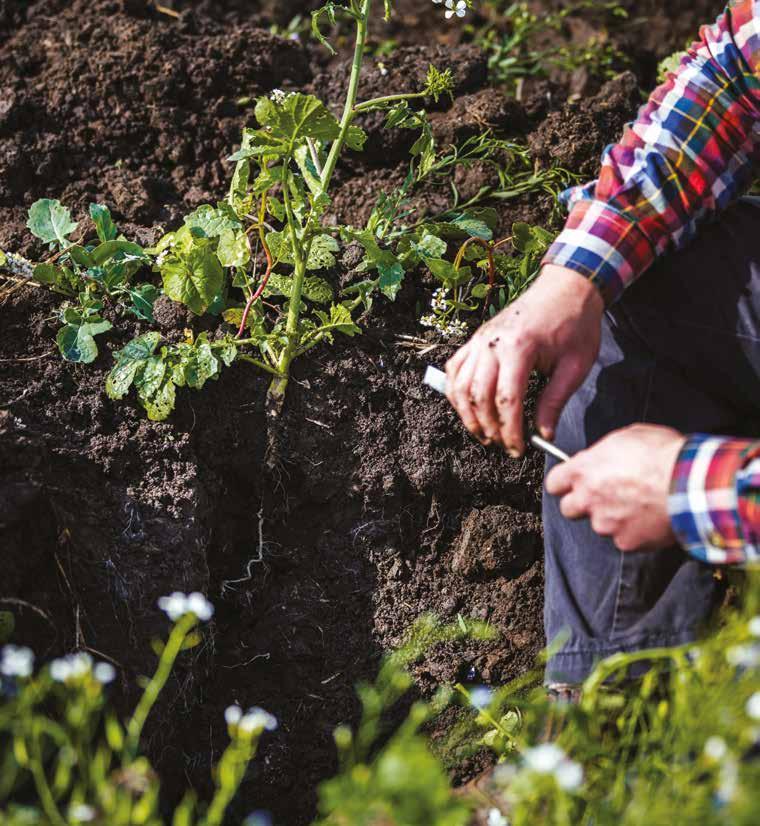
Topic-led research delivered via in-person and virt ual events, a dedicated online resource port al, and via direct support from our team of expert s in the areas of:
- potatoes - environment - soils
Get in touch today for more information about how we can support better productivity and profitability for you.

I sit at a desk festooned with notes of one hundred and one tasks to be completed by last week and memories of the last ten years jumping from the pages of ten annual reports marshalling my thoughts into some kind of order…
“Here we’ve been…”
It all began when I bumped into David Helliar outside our house at Longleat and asked whether he knew anything about Nuffield Farming! - he did, having just completed his 2012 NSch study travels and his farm was already showing the benefits. This chance conversation led to me applying for the part time (3 days a week stated the advert!)
Director’s role and, subsequently, gruelling interviews chaired by Stephen Watkins before attending my first Trustees’ Board meeting and Nuffield Farming Conference at Stratford-upon-Avon. From then on Poey and I were immersed in Nuffield Farming and experiencing a change of life…
Over the next ten years we changed the administration of the Trust and enhanced the service provided for Trustees to enable them to better discharge their responsibilities to Nuffield Farming. It was good to have the guidance of Stephen Watkins and Wallace Hendrie for those early years as Poey and I ‘learnt the ropes’ and got to know the Nuffield Farming annual cycle and all its many moving parts.
A top priority at this time was to put the Trust’s finances on a sounder footing. Many hours were spent visiting influential people and scholars able to provide good advice and potential ideas or leads to raising more funding. Fund raising should cover a broad range of types of sponsorships from comparatively small contributions in kind to large legacies; from commercial arrangements to donations as a memorial to a loved one. The personal approach by invitation proved so important. We began to make progress and during the first five
years averaged nearly £70,000 of donations annually. The role Julian Darling played in this was huge, especially at those key meetings where the possibility of larger donations was being explored and from him I learnt the importance of never mentioning a figure until asked! Over the years Nuffield Farming funds have grown from £850,000 to around £3,300,000. Every contribution is important and represents special generosity by the donor. Even so, it is the larger legacy, often into a restricted fund that gives a real ‘leg up’ to our funds. We have been fortunate, indeed, to receive large contributions, such as those from the John Oldacre Foundation, Jill Willow’s estate and Malcolm Isaac NSch.
However, support only comes to an organisation that deserves that support and is well recognised as such. Nuffield Farming is well supported but that has to be fostered and promoted. We have been fortunate to have benefitted from the services of Pinstone and, latterly, Reverberate P.R. Their professionalism, with the input from Trustees such as Julie Mate and Nic Snell has ensured that our activities are well publicised using all types of media outlets with meaningful stories majoring on the scholars’ travels and successes.
All this helps promote the Nuffield Farming Scholarships Trust to more potential scholars and encourages them to apply. Nevertheless, the majority of applicants continue to identify their contact with family, friend or acquaintances who are scholars themselves and the influence and encouragement they have received from them as the major reason for submitting an application. Our publicity,
including social media, certainly has an impact, but it is the personal contact which is most important. Poey and I have read some 760 applications, met 500 potential scholars at their interview and helped 240 Nuffield Farming Scholars on their journeys. Reassuringly, we regularly think that there are more applicants deserving support than we can possibly support.
Maybe the recruiting of new scholars is our most important role, nevertheless, this is closely followed by encouraging and supporting the alumni. Nuffield Farming is nothing without its active Scholars – old and new. I would have liked to have been able to develop the support provided to our Country, Regional and Study Groups more and might have been able to do so if the covid pandemic had not struck so soon after the arrival of Charlotte Merson as the new Alumni Officer. Nevertheless progress is being made in the guidance and administration of Groups. New Terms of Reference were agreed last year, along with our Health & Safety Policy. Groups are certainly active, for example, in 2012 nine articles were published in the annual report in 2022 and 2023 this has risen to double that number.
As an important backdrop Nuffield International has grown as an organisation over the years. There are now forty-eight Nuffield International Scholars listed in the directory and this is growing by about twelve each year. Of these 18 form the core of Nuffield Brazil as a new Nuffield Country in its own right. Scholarships have been awarded to individuals from all over the world including: Belgium, Chile, Germany, Japan, Poland, USA and South Africa. The Contemporary Scholars Conference will return to Brazil in 2024 and provide an important introduction for all new Scholars to the global Nuffield network available to them, both within their own year group and beyond. Nuffield Farming/ Nuffield U.K. has played a major part in the development of Nuffield International. Roger Mercer as Chairman guided it through its early years as an independent organisation and Chris Graf Grote has recently assumed this role. Specific purpose funds have been established by both Nuffield Australia and Nuffield Farming, to help support the growing organisation. So…
“Here we are…”
Over the years our Alumni has continued to grow. Recruiting is vibrant and the Selection Committee increasingly challenged by the number of applications received. Our Nuffield Farming Groups are active and ambitious with two very successful overseas tours being arranged this year by the Dairy and Poultry Groups. Our Trustees ably discharge their responsibilities to oversee the Trust and direct its operations. Our brand is well respected and our finances are strong – what can be wrong?...
I would encourage you to read the Finance Report carefully (see page 18) and to note, especially, the separate summary, along with the Chairman’s pertinent remarks:
“… Trustees are aware that the poor performance of investments during 2022-23, combined with continuing inflation and an annual operating deficit, may continue. The situation is being closely monitored with the recognition that the fundamental challenge of the next 18 months being that the Trust must demonstrate the ability to raise considerably more income or make substantial savings to its operations – or more likely a combination of the two”.
Over the years we have developed the Nuffield Farming Scholarships programme, enhancing it with more training, broader types of reports including video and included valuable additions. Our conferences are bigger and our recruiting more sophisticated with much more support provided to all applicants. All of this is very good news. It should be welcomed and commended. However, like so many growing organisations we find we cannot do everything we want to without more resources, more staff time and, here is the rub, more overheads. Hence the Chairman’s remarks and the emphasis on the importance of greater, even more effective fund raising in the coming months…. or else, economies will have to be made!
“Here we go…”
But enough realism, pessimism and gloom! Nuffield Farming is strong and growing. Solutions will be found and new opportunities developed. New initiatives and ideas will be
taken forwards for we live in exciting times characterised by agriculture, and all its many parts, having to adapt and innovate in order to adjust to global and national change. The study topics of our Nuffield Farming Scholars reflect this situation and we should be proud of the diversity, imagination and advanced thinking shown by them.
Please forgive me setting out a personal vision for Nuffield Farming going forwards. I believe we should be:
• Known, valued and respected throughout British Agriculture – more than now.
• Seen to be welcoming scholars from all backgrounds to join expanding scholarship programmes.
• Financially secure and well able to fund new ventures without restrictions.
• All founded on a vibrant, energetic and committed Nuffield Family.
The core of these goals is nothing new – the ambition is considerable. There is no doubt in my mind that Rupert Alers-Hankey and our loyal and committed Office Team – with appropriate reinforcement, will take them forward. (Rupert is already champing at the bit!) However, there will need to be strong leadership and governance to ensure that ALL Nuffield Farming are onside. I still carry the scars from early encounters with the ‘great and the good’ who challenged my appointment during my early months! Indeed, there may well be a place for more regular, if not formal, gatherings of the Alumni and, especially, our Past Chairmen who gave such good service to the Trust and can offer so much wisdom and wise counsel to current and future custodians.
Those of you who read my jottings of last year may remember my recommendations and aspirations to ensure that the succession of Directors was smooth and laid robust foundations for the future. Well, we have certainly achieved a lot in that direction. Rupert has been actively engaged in the day-to-day management of Nuffield Farming since the beginning of the year. He has (thank goodness!) taken on the planning for 2024 events – including a conference at which we
will, again, have 30-35 presenting scholars. However, my hope to continue to play a role as a member of the Office Team, able to take on mundane tasks and available to provide the benefit of ten years’ experience (when asked!!) seems unlikely to come about. Whatever my contact details are well known….
I must end with many, many very sincere ‘thank yous’. I am grateful for the support and guidance of all the Chairmen and Trustees I have served. It has been a pleasure to work with them and to soak up their ideas and guidance. The friendship and fellowship of all the Sponsors, Supporters and Nuffield Farming Scholars, especially those on their scholarship journey is, truly, what has made the job so worthwhile. Their successes, their stories and their achievements have been inspiring. However, most appreciation has to be saved for those closest to home. I could not have asked for more enthusiasm and commitment from all members of the Office Team over the years, but, especially from Claire Bragg (since 2013) Lindsay Woods (since 2014) Claire Laidler (since 2017) and Charlotte Merson (since 2019). Finally, of course, none of this would have been achieved without the continued, steadfast support of Poey who really has made all things happen behind the scenes…..
Go Well!
Mike Vacher


Mercer Farming, through the Mercer Family Charitable Foundation, is proud to support the Nuffield Farming Scholorship Trust in their 'Friends of Nuffield Farming' initiative
The Mercer family are fourth generation farmers, and believe in farming in a way that increases regeneration and biodiversity, all having a positive impact on the land and on the animals.
Packington pigs and chickens are given large, green and lush pastures to roam, and time to mature. This is not only best for the animals’ welfare, but it also results in first class meat. A fact recognised not only by their customers and numerous industry awards but also by celebrity chefs.
Packington Free Range is a leader when it comes to freerange meat and ethical farming. Their chicken and pork products can be found in butchers and farm shops nationwide, as well as via Ocado and their own website – where they deliver chicken all year round as well as free-range Cockerels at Christmas and Easter.
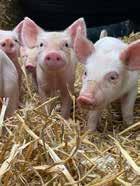
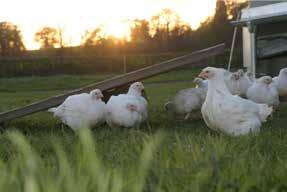
…..ThisarticleprovidesanupdateandexplanationofourlatestFinances–andsomepartsareretainedfrom previousversionstoprovideanongoingreference.
NFSTremainsfinanciallystrongwithhealthyreserves. However,thecurrentsituationinwhichinvestments areperformingpoorly,thereishigherinflationandanannualoperatingdeficit,maycontinue. Thesituation isbeingcloselymonitoredandtheTrusteesandDirectorfullyrecognisethatthefundamentalchallenge ofthenext18monthsistodemonstratetheabilitytoraiseconsiderablymoreincomeormakesubstantial savingstoouroperations–orpotentiallyacombinationofthetwo.…
Since 1947, when our scholarships were first awarded and funded by the Nuffield Foundation, the Nuffield Farming Scholarships Trust has assumed, firstly responsibility for scholarships costs (in 1956) and later all finances (in 1968). The organisation became a registered charity and company limited by guarantee in 2003 and since then has been run under the legally binding rules and regulations of these bodies. The Trustees are responsible for setting strategic objectives, ensuring that the Trust complies with its formal obligations and authorising the annual budget for the Director to implement. Over recent years the Trust has built up a healthy level of reserves for the short and long term. These are now coming into their own…
Currently, Nuffield Farming is fortunate to receive sponsorship for all scholarships awarded. Indeed, even with an increased number of awards, more organisations have promised support than the number of scholarships available – notwithstanding the geographical and specialist restrictions of some. However, these funds cannot cover all the overheads of running the Trust.
In general terms, annual donations fund a proportion of overheads (currently approximately 20%) with the balance being made up by general sponsorship along with investment income, other donations and a small amount from scholar sponsorships. In recent years, until 2018-19, this provided a small operating surplus in the order of 5% of normal income - after deduction of major donations. However, once again this year, additional costs have meant that an operating deficit equivalent to approximately 10% of normal income was incurred – although, again, slightly smaller than last year. More general sponsorship is now essential. This has become especially important as the 2022-23 statutory accounts show a negative net movement in funds for the first time in 10 years of -£116k – a trend that cannot be allowed to continue.
(From the Policy updated by Trustees in August 2023)
The strategic management of Trust’s finances are run according to the policy setting out the overarching Financial Objectives, Reserves Allocations and Investment Strategy for the Trust. The Financial Objectives are now to: maximise the return on investments, both in capital growth and income, within the agreed level of risk; provide stable and consistent levels of investment income for the Charity to pursue its charitable objectives and always maintain a cash or near cash reserve, the quantum to be recommended by the Finance Committee and approved by the Board of Trustees. The Reserves Policy divides the Charitable funds into three reserves:
Long Term Reserve. This reserve will be invested with the objective to accrue capital growth and provide income. Donations of capital in lump sums, such as legacies, will be invested in this fund which will comprise of unrestricted and restricted funds where the intention is to hold a lump sum for the long term with income used to provide scholarships. The net income, after the deduction of management fees, is to be returned to the charity’s Operating Bank account for use by the Trust to pursue its charitable objectives. Capital growth can also be utilised in two sets of circumstances:
• Under exceptional circumstances when income falls short of the needs of the Trust (or exceptional costs are incurred) to achieve its charitable objectives.
• Secondly, under normal circumstances where capital growth in the unrestricted Long Term reserve funds (and some restricted funds) have grown by more than the CPI inflation index plus 2% over a five year rolling period of growth, that growth may be applied to the charitable objectives at the discretion of Trustees.
Liquidity Reserve. A cash or near cash reserve on deposit with one or more of the fund managers. The sum to be determined by the Finance Committee and recommended to the Board of Trustees. The Board has authorised a minimum sum of £300,000 be held on deposit. Sums in excess of this minimum may be transferred to the Long Term Reserve at the discretion of the Finance Committee.
Operating Bank Account. This account receives investment income and is the operating bank account managed by the Director. This account is expected to operate between £nil and £200,000 in credit and also includes an operating deposit account.
The Board of Trustees want to see capital growth which is in excess of inflation over the long term and reliable and consistent investment income. The detailed management of investments will be the responsibility of the appointed professional managers, but representatives of the Finance Committee will meet the fund managers annually to review performance and plans which take account of:
Risk. The investment risks of volatility in capital values and reliable investment income are managed by the investment managers. However, the risk has been mitigated by holding cash on deposit to smooth the charity past difficult investment conditions and allow adjustment for unfavourable market circumstances.
Ethical investment. Both investment managers have ethical investment policies approved by the finance committee members. These policies do develop and change and are discussed during the annual meeting. The Finance Committee reports to the Board if it is felt that there is a disparity between the ethical strategy of the managers and the joint view of the committee.
Benchmark. The two managers use their own benchmarks and the Finance Committee makes its own comparison between the investment companies to assess their relative performance.
• Operating Surplus. In recent years, until 2018-19, Trustees have set a budget with an operating surplus in the order of
–including investment income. This has not been sustained as explained above.
• Unrealised Investment Gains/Losses. This is sometimes referred to as ‘investment growth’ (or decline) and for which there are no fixed targets. Rather the movement in funds reflects changes in the stock market with a negative figure indicating a reduction in value. The growth of investments in 2017-18 was less than we had become used to but returned to ‘normal’ in 2018-19. In 2019-20, however, we suffered a decline of -£133k, only for this to ‘bounce back’ in 2020-21. In 2021-22 it was £239k sufficient to maintain a positive ‘Net Movement in Funds’. In 2022-23 the Unrealised Investment Decline combined with the operating deficit resulted in a negative Net Movement in Funds.
• Donations to Restricted/Unrestricted Funds. The Trust continues to benefit from the generosity of charitable and private donors to establish ‘restricted funds’ to be used specifically for their scholarships. In the 2017-18 financial year major legacies were received totalling £91k. In 2018-19 financial year donations were received for a John Oldacre Restricted Fund of £1,100k as well as a further legacy from the Jill Willows Estate of £162k. In 2019-20 major donations totalling £522k were received or formally promised, but, in 2020-21 the amount was £55k and last year significantly less at £6k. In 2022-23 this rose to £58k.
• Net Movement in Funds. This figure shows the final, overall, increase or decrease in funds.
• Balance Carried Forward. This is the Net Worth of the Trust and reflects that of the previous year plus or minus the net movement in funds. Readers will appreciate that, whatever else has occurred, the effective doubling of the Trust’s worth over 3 years (2017 – 2020) and the continued steady growth until 2021-22 was good news! It has provided a ‘safety net’, albeit one that must be carefully nurtured.
• Investments. This is the total value of the short and long term reserves. These have grown considerably over recent years and the unrestricted funds or free reserves now total just over £1,500k which is approximately 47% of the investments total.
Overall, the Nuffield Farming finances continue to be reassuringly strong and reflect the generous support of our sponsors and benefactors. In the short term our reserves enable such losses as occurred in 2022-23 to be managed.
Previously, the continued operating deficit whilst disappointing was made viable largely due to the investment growth but also by low rates of inflation. Now, with the decline of investments compounded by higher inflation, the situation demands a more energetic response. Hopefully, the 2022-23 disappointing result will prove to be nothing more than a ‘speed bump’ in the Trust’s financial progress.
Nevertheless, it is reiterated once again, that although Trustees may routinely bear down on administrative costs, they have to recognise that increased levels of operational performance will need additional funding. New initiatives are almost inevitably going to need increased expenditure. This will only be possible if new sources of funds are identified.
Mike Vacher
We are excited to announce the Next-Gen Nuffield Scholarship, which will be aimed at young people aged 18-24 as part of our initiative to develop young talent. We know the challenges that young people face to establish themselves in our industry, and this scholarship will use the Nuffield Scholar network to link successful applicants directly to farmers.
Tom Rawson “Thisisauniqueopportunityfor youngpeopleatanearlystagetogetachance toengagewiththeNuffieldalumniandlearn fromtheirexperiences”.
As a first step, we will run a Next-Gen Nuffield Scholarship pilot, enabled by the Nuffield Dairy Group in 2024 and generously sponsored by the Elizabeth Creek Charitable Trust. Two young people (18 to 24 years old) from Northern Ireland with some previous dairy experience will be selected by the Northern Ireland Nuffield Farming Association to take part in a 30-day dairy sector study programme in the UK.
After an induction day in London, during which they will get to know Nuffield Farming and receive an overview of the UK dairy industry. Over the next month they will stay on farm with Nuffield Dairy Group members, join the Dairy Group tour in North Wales, and visit more than ten dairy farms. Throughout the study period, they will gain first-hand experience of a variety of dairy business models with a particular focus on dairy sector best practice and management.
Both young people will be assigned a mentor from the Dairy Group, who will continue to work
with them beyond their initial scholarship. Both Next-Gen Scholarship recipients will also have the opportunity to share their experiences at the 2024 Nuffield Farming Conference, which will be held in Belfast. With learnings from the pilot, the programme will be refined and offered to up to six young people each year. The dairy group will lead in year 2 and the programme will be rolled out for Arable, Beef and Sheep, Business, Horticulture, Pig, Poultry, Regenerative Agriculture, Reputation and Public Outreach study groups. The programme will be kept flexible to meet demand. The Next-Gen Nuffield Scholarship will be actively marketed through Young Farmers, farming media and educational colleges and universities.
Next-Gen Nuffield Scholars will be made associate members of Nuffield Farming, encouraged to attend our networking events, including farm walks, regional and study group events, talks, tours and the Annual Conference. They will be fostered and mentored by their respective Nuffield Farming Study groups, with the aim of progressing to one day become a Nuffield Farming Scholar.
Are you a passionate agricultural professional, eager to shape the future of agriculture and make a positive impact on the industry? We invite you to join us on an exciting career journey!
Mole Valley Farmers is proud to be a ‘Friend of Nuffield’, we share the same passion as the Nuffield Farming Scholarships Trust – to create positive change in agriculture by developing future leaders like you.
Joining Mole Valley Farmers means becoming part of the UK’s leading agricultural supplier, owned by farmers for the benefit of farmers. We are committed to offering a complete suite of in-store, on-farm and online services, all while inspiring our employees to drive innovation and foster growth within the agricultural industry and the wider rural community. A career with us goes beyond the ordinary, agriculture is on the brink of monumental change, and we are at the forefront of this transformation. We are committed to collaborating with farmers,
growers and industry experts to shape the future of British agriculture. Your fresh ideas, energy and enthusiasm can make a significant impact on the challenges facing the industry today.
As a Mole Valley Farmers team member, you will receive excellent technical training, personal development opportunities, a competitive salary, staff discounts, a generous holiday allowance, life assurance, and access to an employee assistance scheme that provides mental and financial support.
Take the first step towards a rewarding career in agriculture. Join Mole Valley Farmers and be part of a team that drives change, embraces innovation, and shares a passion for the future of British agriculture. Contact us today to explore career opportunities or visit moleonline.com/careers. Let’s create a sustainable and prosperous future together.
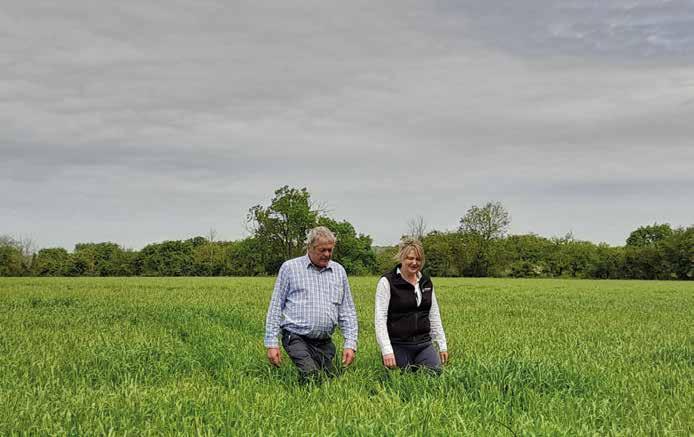

The Nuffield Mentoring programme continues to go from strength to strength, continuing its growth with all of the 2022 Scholars electing to take advantage of a Mentor. Mentor and mentee meetings have been taking place across the country, and the programme continues to grow and develop with ongoing CPD planned for this year’s 2023 Annual Conference in Exeter, alongside an online follow up session.
We now have over 45 mentors within the Nuffield Mentoring Programme, and the hope is this continues to grow and develop with new scholars and ongoing CPD sessions, including a half day catch up at this year’s conference in Exeter.
Scholars Jo Speed (2008) and Owen Atkinson (2010) ran a full day’s training for 16 new Nuffield mentors, held at the 2022 Nuffield Farming Annual Conference in Cardiff. The training covered a wide range of practical skills and techniques to help mentors develop and grow their coaching and mentoring skills including coaching models such as the life audit, questioning techniques and listening as well as techniques to build trust and rapport with mentees. The training included much discussion and lively debate as well as two walk and talk sessions, looking at techniques to facilitate discussion including the life audit, where mentors shared conversation and practiced this tool focussing on what was going well; what isn’t going so well and 3 things they might focus on to change in the next three months.
The concept of Mentoring in the Nuffield context, is that newly appointed Scholars choose a Scholar of their choice from our database, as their Mentor. As a result of the ongoing training programme founded by Julie Mate and Wyn Owen the annual training programme, and ongoing CPD helps new and existing mentors build on core skills to support current year group scholars, as well as growing their own mentoring and coaching skills.
I would encourage Nuffield alumni to continue to engage with the mentoring programme as it offers vast benefits to both mentors and mentees.
We are always looking for new mentors. So, if you would like to support future Scholars in this way, whilst also developing your mentoring and coaching skills, please contact Jo Speed (jo.speed@yahoo.com) or Charlotte (charlotte@nuffieldscholar.org).
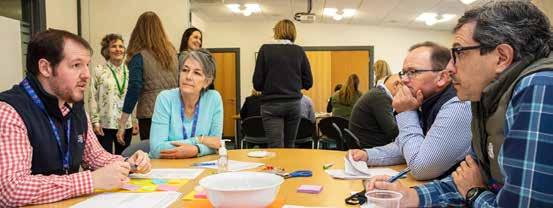


- an unofficial aide mémoire
This note is provided on the direction of the Trustees as an aide mémoire of the governance of the Trust. It should not be considered an authoritative document, although, it is hoped that it will provide a helpful ready reference.
The ‘Nuffield Farming Scholarships Trust’ (NFST) is a registered charity (No. 1098519) and a company limited by guarantee (No. 04787639). All its activities are governed by the Memorandum and Articles of Association dated 4th June 2003 as amended by special resolutions dated 21st November 2014 and 23rd November 2022. The Trustee Board controls the Trust and is responsible for overseeing its activities on behalf of the Members to whom it reports at general meetings, with an annual general meeting being held annually. The Trustee Board must meet at least twice a year and has terms of reference to cover its activities and those of its three subcommittees: the NFST Finance, Communications and Nominations Committees. Separate working groups may be formed from time to time to progress specific projects. The Trust is promoted and fostered by a network of countrywide regional and study groups.
The Memorandum is the document which governs the relationship between the company and the outside world and sets out, in particular, the core objects of the Trust, eligibility for a scholarship, and the powers which may be exercised to promote its objects. The Articles describe how the Trust is run, governed and owned. These: define membership; set out how general meetings will be run; describe the organisation, proceedings and powers of
the Trustee Board; set the parameters for the Selection Committee and scholars’ obligations; and outline the administration of the Trust. The full Memorandum and Articles of Association are available from the NFST Office or via the website.
All activities of the Trust must be towards promotion of its Objects which are: “…to promote agricultural, horticultural, forestry and countryside management education in England, Wales, Scotland or Northern Ireland and abroad and to advance the standard of farming (including the food supply chain, horticulture, forestry and countryside management and associated topics) in England, Wales, Scotland or Northern Ireland, including but without limitation, by the provision of Scholarships to persons who fulfil the conditions set out in clause 4 below to enable them to study the practices and techniques employed anywhere in the world.”
A Member of the Trust is a Nuffield Scholar, an Honorary Nuffield Scholar or a member of the Trustee Board or the Selection Committee, who pays at least the Qualifying Donation to the Charity (subject to the discretion of the Trustee Board to waive this requirement) or is a Recognised Sponsor who pays at least the Qualifying Sponsorship to the Charity; or a Recognised Sponsor/Sponsor’s Representative.
The Trustee Board is formed by 6 – 13 elected individuals of whom at least 75% must be Nuffield Scholars. This may be increased to no more than 15 by co-opting additional members until the next AGM. Trustees retire (excluding Chair and Vice Chair) as at the AGM when they have served 3 years when they are eligible for re-election for a further 3 year term until they have served for six years, excluding any period served as a Returning Scholar Trustee.
Presently (as at November 2023)the Trustee Board is formed by: 10 Nuffield Scholars including the Chair and Vice Chair; 2 Returning Scholar Trustees representing the most recently completed year groups (2018 and 2019) 1 External Trustee and 1 Co-opted Trustee. The Nuffield Scholar and External Trustees are elected/ re-elected at the AGM, the Returning Scholar Trustees are initially elected by their year groups and formally confirmed at the AGM. The Chair and Vice Chair each serve for two years in that office unless the AGM decides that there are exceptional circumstances which justify one additional year. Their retirement in accordance with the six year rule is postponed whilst in office.
The Trustee Board has the powers to:
• appoint additional Trustees up to the maximum of 15 including those co-opted until the next AGM;
• appoint and remove the Director;
• nominate the Chair and Vice Chair from the Nuffield Scholars on the Board;
• recommend Trustee Board Members for reelection.
and make other administrative arrangements including forming sub-committees, making standing orders, rules, procedures and arrangements to promote the good governance of the Trust and its wider success. The Trustee Board currently meets four times each year.
The Selection Committee is overseen by the Trustee Board and consists of the Chair and Vice Chair of the Trust and three others decided by the Trustees. Currently, the others consist of two external and one Nuffield Scholar members and their appointment is endorsed at the AGM. Members serve for a maximum of two terms of three years. Applications for scholarships are submitted electronically by 31st July each year. The Selection Committee meets to shortlist applicants for interview in October. Before their interview it is normal for the applicants to have the opportunity to meet with representatives of their Country or Regional Group to rehearse.
The Trustee Board has currently established three committees /sub-committees:
• Communications Committee. To consider all matters relating to communication with scholars and to the world outside the Trust on the work and purpose of the Trust to enhance its performance and reputation, and to advise and make recommendations to the Trustee Board. It currently meets four times each year before the corresponding Trustee Board meeting.
• Finance Committee. To advise the Trustee Board on matters relating to finance and financial procedures. It regularly reviews financial policy, reserves and investment policies, monitors in year financial progress and recommends an annual budget. It currently meets four times each year before the corresponding Trustee Board meeting and is led by the Vice Chair.
• Nominations Committee. To propose nominations to the Trustee Board of those to be recommended to the AGM to fill vacancies or appointments on the Trustee Board. It is currently formed by the Chair, Vice Chair and Chair of the Communications Committee and meets once each year prior to the AGM.
Mike
VacherThe winner of the 2022 Bullock Award another outstanding example of someone who has used their Nuffield Scholarship as a springboard to success in the decade since. Not only does this person oversee a successful business at home but has clearly used their experience to benefit the wider industry, becoming known on the speaking circuit, the printed page and even on your television screen.
Many members of the general public have visited the farm due to its participation in the LEAF Open Farm Sunday initiative, and this affable ambassador for the benefits of regenerative agriculture is also beamed into classrooms as a Farmer Time presenter.
He realised more than a decade ago that it was vital that the farming industry is in the business of securing more than next year’s harvest.
He wants to push agriculture down a truly sustainable path that will see food production secured for the long term, identifying in his scholarship journey that excessive cultivations and short crop rotations are a key threat to the prosperity of the arable sector.
Since then, in his role as farm manager on a Cotswold estate, he has put many changes into practice and is continuing to experiment to find new ways to allow crops and livestock to flourish with the lowest artificial inputs possible.
If this approach had not been vindicated before – although I believe it was – then the events of the last 12 months have shown beyond doubt the wisdom of a secure food supply that relies as little as possible on fragile global supply chains.
Ladies and gentlemen, this is not his first award. Last year he was recognised with the 2021 Farmers Weekly Environmental Champion of the Year award and this year he has scooped the BBC Food and Farming Award’s Future of Farming Award.
But I am pleased now to announce that the judges had no hesitation in awarding the 2022 Steven and Gill Bullock award to Jake Freestone!
Stephen Fell NSch

Teresa Meadows 2020 NSch receiving the Shield for the best presentation by a Presenting Scholar during the 2022 Conference. Her presentation was entitled ‘Increasingtheuptakeofintegratedpest managementinUKarablefarming.’
From left: Chairman Wyn Owen, HRH The Duke of Gloucester, Teresa Meadows, then Chair Chris Graf Grote and judges Ben Briggs, Farmers Guardian and Jo Speed, Trustee.

Dr Jenna Ross OBE NSch became the first winner of the inaugural Nuffield Farming Scholarships Trust’s ‘Greener Future Award’ for her work developing sustainable methods for fighting slugs. This award was generously supported by LEAF in memory of Caroline Drummond NSch.


It has been another lovely year with Nuffield Farming and I would like to take this opportunity to thank all who have supported both Nuffield and myself this year by hosting and running events and speaking to potential Scholars. The year started strongly back in January with an open evening where Teresa Meadows kindly agreed to be the guest speaker and shared her Nuffield experiences with potential Scholars and then chaired the Q&A session. Following last year’s success, we repeated the opening of the application portal on the day of the open evening and were pleased to see a high number of initial registrations. I then repeated the drop-in sessions for applicants giving them an opportunity to hear more about both the application process and the scholarship journey.
The Trustees are delighted to report receipt of an unprecedented number of completed applications in 2023, with initial scrutiny by selectors also indicating an extremely high standard of candidates. Huge credit is due to all Scholars, Nuffield groups, Trustees and other industry stakeholders who have in any way encouraged or supported potential applicants and of course our alumni officer and all the Nuffield office team. I thoroughly relish the anticipation and the challenge of interviewing so many very capable applicants in early October
Wyn Owen, Nuffield Farming Chair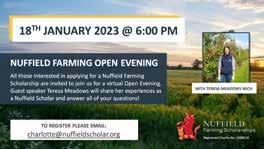

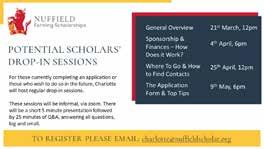
The 2023 Scholars experienced an inciteful, thought-provoking and intense few days for their Pre CSC in London in March. We were joined by superb speakers including James Thompson (Dyson Farming), Sarah Bell and Robbie Moore MP NSch. The Scholars then flew to Vancouver for their CSC.
We hosted a leg of the April GFP in London; and although the group had just one day in the UK, we still managed a very interesting and informative time with visits to the Houses of
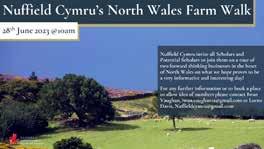

Parliament with Robbie Moore, the NFU offices in London and an afternoon with Richard Counsell NSch and his team learning about ‘hedging’. Thank you once again to all who made this trip so successful.
The Regional groups have been so strong this year, both in terms of events and supporting applicants. I would particularly like to highlight the West Midlands who under the guidance of Rob Burtonshaw NSch (Regional Chair) have managed to increase the number of applicants from an average of two over the last six years to eleven applying this year! Rob achieved this by running multiple events in 2022 and the first half of 2023 and keeping open channels of communication with all interested potentials. The South West group, led by Richard Counsell NSch also received an outstanding number of top-quality applicants, all of whom were very grateful to Richard and the South West team for running such an informative and inciteful event in June.
In terms of events, we have been treated to farm walks, international tours and receptions at agricultural shows, there is a huge amount of effort that goes into each event and again I would like to thank all involved.
Health and Safety was one of the key focus areas for all events this year; we ensured there was a risk assessment and copies of


public liability insurance for each event. This is something that we will of course be repeating in future years for all Nuffield events.
In August we started to work with The Reporters’ Academy (https://www. thereportersacademy.com/) who will be providing training and editing support for all of the Scholar videos. The first of the videos will be released shortly and I am sure that you will be as blown away by them as I have! The Scholars have put a lot of time and effort into the videos and they are a great insight into their travels and findings.
At the 2023 Conference we are going to be treated to 35 Scholar presentations; Covid caused many delays but Scholars have shown so much determination and resilience to complete their work: It has been a pleasure to support them all and I would like to take the opportunity to wish them luck for the Conference and look forward to reading the reports.
I am sure we can expect an equally busy 2024 and I am looking forward to the Next-Gen applications going live and supporting the younger Scholars through their journey and of course working with both the new 2024 Scholars and our current Scholars who will be presenting in Belfast next November.


The last year has seen the Nuffield Farming office return to normal proceedings, with the additional pressure of managing multiple years of Scholar cohorts all at once! This has meant lots of great activity, as well as looking for fresh ways to tell Nuffield’s story.

Once again, we have enjoyed extensive press coverage this year both regionally and nationally, as well as across individual sector publications. Highlights include profiles of Scholars Alistair Trickett and Ed Towers in Farmers Guardian, conference coverage in Farmers Weekly and Farmers Guardian, plus a special #NuffCon22 episode on Farmers Guardian’s podcast, and the announcement of OBE awards to Dr. Zoe Leach (Davies) and Dr. Navaratnam Partheeban.
Our Scholars have continued to contribute insights and stories for our dedicated Nuffield section in Direct Driller, and Scholar reports have received more than 9,770 views and 1,630 downloads from the Nuffield Resources section of The Farming Forum.
This year we have again seen growth across our social media channels, particularly on LinkedIn and Instagram – with a 55% increase in our LinkedIn followers and a 30% increase in followers on Instagram. The new weekly “Report of the Week” feature has also been successful across our social channels as we showcase the extensive library of Scholar reports.
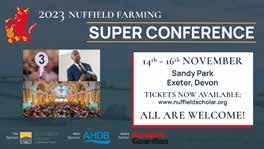
On the back of this growth, and based on feedback from applicants and Nuffield staff, we’re delighted that social media and press coverage also played a role in achieving a record number of Scholarship applications for the 2024 cohort.
The 2022 Nuffield Farming Conference in Cardiff was undoubtedly a huge success, and we’re building on this running up to the 2023 “Super Conference” in Exeter. With 35 Scholars set to present, we are working hard to ensure the conference receives the attention it deserves both online and in the press.
We are especially proud to have launched the new Ultimate Guide to Nuffield. Available in both print and online, this document provides a complete overview of the Nuffield Farming Scholarships Trust for our Scholars, potential applicants, supporters and the wider industry. Covering everything from applications to the Scholarship journey, life after a Scholarship to how to support the Trust, it is the perfect resource for anyone who wants to understand more about who we are.
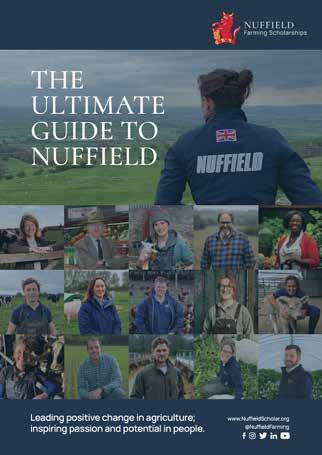
The Ultimate Guide to Nuffield provides a “one-stop shop” to showcase the Trust’s activity as well as illustrate the benefits and opportunities available to Scholars. We also hope the Guide empowers existing Scholars to recruit new applicants with the knowledge and awareness of today’s Nuffield Farming experience.

The Ultimate Guide to Nuffield can viewed on the homepage of our website, nuffieldscholar. org, at bit.ly/UltimateGuideNuffield or by using the QR code on this page – please share it with anyone who has an interest in our organisation.
The last year in numbers
• 2,058 UK Scholar report downloads from www.NuffieldScholar.org
• 42,479 website users
• 9,543 views on YouTube
• 12,100 X (previously known as Twitter) followers
• 88,000 unique impressions on LinkedIn
Trustees are continually working to encourage Nuffield Scholars to continue to engage with Nuffield, long after they have presented at conference and published their reports. This may be through attendance at the annual Nuffield conference; however for many others it is by connecting with Nuffield through their regional, sectoral or year group. One year group who have stuck together effectively for decades is the 1983 Scholars’ group, a very esteemed and prestigious assembly which include no less than three past Nuffield Farming chairs. We asked four of them some questions around this - the responses are noted below
1. What you value most about your year group?
• The fellowship of like-minded people and the contacts that they can offer.
• We have different backgrounds and interests but are bound by our strong ties to Nuffield and deep roots in agriculture. The first year group to meet in Wye as a group and then go on to Brussels forged a strong bond.
• As the first group to go to Wye and Brussels and maybe as a result of my whisky cork throwing and the following hangover, we became a very close bonded group who enjoy each other’s company.
• Our year group was originally a very good representation of many facets of our industry. A number of us were at a crossroads (business or career) and Nuffield was as much to sort life / business direction as to focus on the subject of study.
2. What factors do you think keeps your year group together?
• Enjoying each other’s company and maintaining access to various aspects of agriculture in different areas
• We all get on very well together, as do the wives/partners and we know each other’s
businesses and have encountered similar challenges along the 40 years. We are disciplined about a rota to organise the next reunion, and without that there is a danger of drift
• Most of us have become very good friends through Nuffield and have visited each other’s home individually or as the group, whom we call the Dream team. We still keep up the annual get together now in many parts of UK
• The factors that keep us together include a drive for constant and incremental improvement, personally and in business. A willingness to share information in a climate of trust is also important.
3. Your funniest Nuffield memory:
• James Black teaching us to throw the whisky cork away as soon as we opened the bottle!
• Our Director, Captain John Stewart, marching a hung-over and slightly dishevelled group wearing their Nuffield ties, through the streets of Brussels with his long suffering wife, Eileen, bringing up the rear.
• The custom in America is for the host to introduce me to his partner and express which one she is with my record being introduced to someone’s fifth wife.
• Clearly irritated at our non-appearance outside the hotel in Brussels, Capt. Stewart lamented that in his Marine Commando leading days he would have marched us up Snowdon and back, cold showered, breakfasted and on parade on time.
4. The most special thing about Nuffield:
• The contacts - I don’t believe I would have enjoyed half the privileged positions I have held without Nuffield.
• The most special thing about Nuffield was the world that it opened up to us which encouraged us to be leaders in agriculture, in a whole variety of fields.
• Once a Nuffield always a Nuffield, the experiences continue even my Scholarship. Through Nuffield; I have attended several world conferences and and visited China, Brazil, Australia, and Canada.
• Camaraderie and willingness of scholars to share very personal issues. Also it made me overcome my fear of flying after three flights in one day going from Canada to Texas finishing in a very small plane indeed!
5. The challenge for Nuffield Farming going forward:
• Nuffield has one massive advantage over other most organisations; it will never grow old. Its reason to exist is to provide younger people with scholarships and hence maintain the relevance of Nuffield to all age groups. This fundamental must be protected.
• The original roots of Nuffield stemmed from the need to put agriculture on its feet after WWII and particularly to
develop leaders in agriculture. Identifying potential Scholars and leaders within agriculture, who don’t necessarily have the interview skills of academics and professionals, is the big challenge for the Trust.
• Sincere endeavour, the generosity of our sponsors, a regular supply of genuine applicants, plus the status Nuffield accords - should guarantee the success and future of Nuffield Scholarships.
• The challenge is to identify and select the scholar that will remain a Nuffield graduate for life. The selection process needs to somehow take account of the commitment a potential scholar has made before applying.
WiththankstocommentsfromJohnAlvis, JamesBlack,StephenFellandWynneJones
The Beckett Group’s 2023 annual meeting in July was hosted by James and Amy Drummond in Northumberland, a beautiful part of the country. Many of the visits demonstrated how good farmers are at diversifying and thinking outside the box.
The weekend started at The Tempus, Charlton Hall Estate. The Doxford Group renovated old farm buildings in 2015 to create the Doxford Barns wedding venue. This led to them purchasing the adjacent Charlton Hall as a second wedding venue in 2017. This year, following a further £7m investment, a new boutique hotel, restaurant and bar had opened.
On Saturday the Scholars visited Silvermoor, specialising in high quality forage, haylage and treats for the equine industry. The idea was started by Ralph, who at the time was running a contracting business from the family farm. His mother had several horses and he was given the task of producing their haylage. He had the idea to sell to other horse owners, so decided to wrap his haylage bales in 20kg purple bags to stand out on the shelves of the local farmer’s merchants among all the green wrap. They still produce haylage, and now have a wide range of horse treats. They grow and process all the grass used in their product ranges.
Next the Scholars visited John Manners Ltd, a leading supplier of second hand combine parts along with a haulage business. The group were amazed at their stock of combines, all ages and state of repair, about 250 in one area. Quite a sight to see! Mr Manners is also a farmer and has a holiday let business on the Northumberland coast.
The Bosk at Branton was next. Originally a farming family they diversified into holiday lettings, buying and building high quality holiday cottages as well as installing an indoor swimming pool for guests use. In 2019 their son built an impressive function room and restaurant with bed and breakfast rooms, it’s also let out for weddings.
After lunch a tour through the Ingram Valley showed the remote side of the County and how farmers are showing how they can turn this wilderness to their advantage. They visited a father and son team who farm beef, sheep and deer. They run Safari Tours, taking tourists around their enterprises on a Gator and up into the hills to appreciate the amazing views and landscape, with stories along the way. This was followed by a visit to a local farmer who is on an AHDB monitor farm, telling us of his journey in making improvements to his beef and sheep enterprises, to increase efficiency and production. They are looking at drone technology as a secondary means of checking sheep.
On Sunday after the AGM the group looked around the host’s farm starting with his sheep enterprise, where data collection is all important for improving the flock, as well as trialling herbal leys that are drought resistant.
James Drummond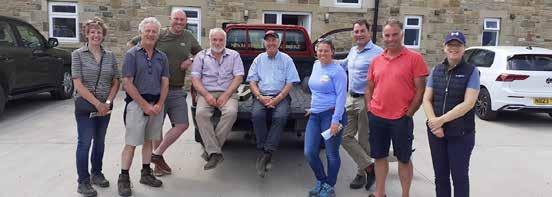
This year started with a zoom meeting to establish what exactly the East Midland Scholars wanted from a regional group. We had good feedback and subsequently organised a combined meeting and visit of interest for current as well as potential scholars.
25 people visited Farmeco Community Care in Nottinghamshire for an enjoyable evening looking around the different activities based at Farmeco. A wide range of activities were viewed and discussed, from worm farming to agroforestry including rural health care projects. Recent Scholars James MacCartney and Alice Jones gave an insight into their travels and how they coped undertaking a travel scholarship during covid. This stimulated lots of questions from potential and older Scholars.
Wyn Owen, NFST Chairman, gave an overview of what was happening at Nuffield at board level, and David Gardner, Trustee, outlined the sponsorship opportunities with ‘Friends of Nuffield’.
We were very pleased to see 9 applications going forward and 5 obtaining interviews,
which was a great improvement for the region. We intend to support all those who applied, both those chosen and those who might need support to re-apply.
The regional group attended Flintham and District Ploughing match on September 28th. We ran an education and careers marquee with others including local Colleges, Universities, Notts YFC, Schools and local business to promote careers and further lifelong education. The Duchess of Edinburgh was guest of honour and met all concerned.
We look to build on this year and hope to encourage the regional scholars to support further developments with events and suggestions to engage and include diversity within our area.
David Rose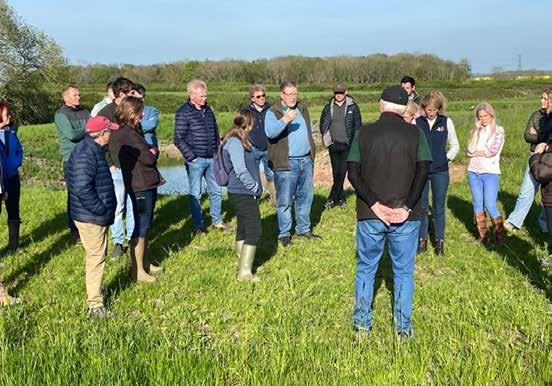
The Nuffield Southwest group met at The Pig near Bath on the 16th June with a record turnout of scholars past and present.
The day was designed to hear from a wide variety of existing scholars and to encourage potential scholars to apply by providing a better understanding of what’s involved and the impact it can have. To kick off the afternoon we heard from Rupert Alers-Hankey, Director Designate, on the exciting initiatives being planned across the organisation before Richard Counsell 2016 NSch (Regional Chair) gave a brief overview of the impact of Nuffield on his career.
After a delicious lunch in the sunshine, it was time for current and recent scholars to share their experiences and answer any

questions from the audience. Liz Cresswell, Jen Hunter, Kendra Hall and Duncan Williams did a fantastic job of walking the audience through their wide ranging studies and gave some practical and useful advice for others to consider as they look to follow in their footsteps. After cake and coffee to make sure no-one was going home hungry the group continued a lively discussion on all aspects of pursuing a scholarship and generally enjoyed catching up with some familiar faces from across the region. A very enjoyable event, with more farm tours to follow later in the year.
Richard Counsell
Yet again it’s been a busy and eventful calendar for Nuffield Cymru over the last 12 months. The Nuffield Year kicked off with the Annual Nuffield Conference held in City Hall, Cardiff. It was fantastic to show what our nation had to offer and we hope you enjoyed it as much as we did!
In late May, Nuffield Cymru organised a day of farm tours near Corwen, North Wales. A successful day was enjoyed by many scholars along with a host of potential applicants which was very pleasing to see and was enjoyed by all.
In the Morning we visited the Rhug Estate Farm and were given an interested and detailed tour by new Farm manager Emyr Wyn Owen. He explained how the Estate is a diverse Organic field to plate farming operation totalling 6500ac. Since the current
Lord Newborough took over in 1998 into a forward-thinking enterprise which looks to maximise its assets through value added retail, renewable energy and modern Organic agricultural production. This provides employment to 110 people, supporting a diverse range of skills and interests. We look forward to hearing of the progress of their new projects over the years to come.
In the afternoon we visited Phil and Sarah Hughes and Family at Hendwr, Cowen. This again is a diverse family business running
1500 ewes and 225 Angus x holsteins and acts as a supplier for M&S, whilst also running a caravan park. It was also engaging and fascinating to see Phil’s work in growing and developing the AD Plant and more recently developing a new Ekogea slurry dewatering system, allowing nutrients (N + P) to be separated and carried away as a solid form.
The Royal Welsh Show soon came around in Late July, and may I congratulate Aled Rhys Jones Nsch on a fantastic first show as Chief Executive of the RWAS. Nuffield Cymru held an informal drinks reception at the International Pavilion on the Show Ground on the Tuesday afternoon. With many Scholars and potential Scholars present it was a great

afternoon that Nuffield Cymru will look to host at the show on a regular occurrence.
Diolchyn fawr
During this year, the Northern Region ran two successful events, kicked off by a farm walk kindly hosted by Hannah Fraser (2023 scholar) and her husband Alex at their farm near Barnsley.
The event was well attended and provided current and potential scholars with an exciting opportunity to hear about the innovative farming systems Hannah and Alex have implemented, as well as the challenges they faced and overcame to achieve their system, followed by a farm walk and a BBQ kindly hosted by the Fraser family. The evening also heard presentations from Charlotte Merson, followed by Nuffield Scholars Sarah Penrose (2021), Chris Harrap (2019) and Stephen Briggs (2011), sharing their Nuffield experiences and journeys, information on the application process, the GFP and travel experiences, as well as their journeys and careers since completing their scholarships. The event proved to be a great networking opportunity for both existing scholars, friends and potential applicants. Many thanks to Sarah Penrose for organising this event, and to all who helped make this successful event happen.
Our annual Nuffield Reception also took place at the 2023 Great Yorkshire Show in July this year, following a generous invitation to share an Addington Fund reception kindly hoisted by Strutt and Parker on their stand. Many thanks to Nuffield Scholar Bill Young for his kind invitation. This years’ event saw a good attendance from Future Farmers of Yorkshire
supported by the Yorkshire Agriculture Society (YAS); Nuffield alumni and potential scholars meeting at the pavilion. Many thanks to Elizabeth Hudson and the Yorkshire Agricultural Society for their continued help and continued support for Nuffield Farming, as well as to Charlotte Merson who organised the event behind the scenes. The event was very well attended, and attendees enjoyed a glass of Pimm’s and a cream scone, whilst taking the opportunity to network. Plans are underway for further events in the northwest, Yorkshire and the northeast for 2024.
Jo Speed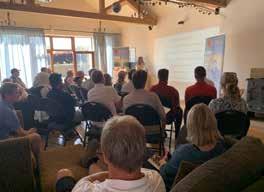
Angus Davison and his team hosted the Nuffield Horticultural Group at Haygrove Farm, near Ledbury in May. The previous Hort Group visited 20 years ago and the changes since were very apparent. Angus’ enthusiasm for his business, production skills, trial work and management ethos were all there for us to see and discuss. We looked at different systems for growing cherries under tunnels, different types of tunnels and the individual needs of different fruit crops being grown and produced in them.
We walked through the arboretum that Angus had planted with many varieties of oak, through the staff accommodation to the “Party Tunnel” where we enjoyed a welcome drink with strawberries and other delicious homegrown fruits. Angus explained his policy regarding staff (over 1000 staff are employed), the management structure and his management style. He employs a very personal and positive attitude, developing and giving opportunities to all staff in all the 30 different countries that his business operates in. Haygrove is split into manufacturing and selling tunnels or growing and supplying soft fruits. Over 80% of the fruit growing is now in South Africa. Most of harvesting staff are returnees and he also rewards staff from his production unit in South Africa with the opportunity to work in the UK giving a win win situation for the staff and for Haygrove.
After a stimulating morning, we transferred to a beautifully landscaped Haygrove site at appropriately named Strawberry Hill, where we enjoyed an open air lunch in the Amphitheatre. Prepared by a wonderful Bulgarian man who commenced working for Angus as a fruit picker, then came back with his wife and have developed the café and facilities for the many staff.
After lunch break, we had a Haygrove Hortiplanet System presentation by Rachel Todd. This IT system has been developed “by growers for growers” tracking and target setting of carbon, water, waste and annual biodiversity for input into LEAF and other audits. Haygrove became carbon neutral in 2020!
We then visited another site where they were constructing an immensely tall prototype polythene tunnel. This will be purely for the propagation of strawberry runners. This cathedral like tunnel was designed
by Haygrove’s design team in Mexico and is designed for climate change with more storms and higher temperatures. A lively discussion developed about the design and how it would perform on this relatively exposed hilltop site.
We were certainly shown how Haygrove and Angus place an emphasis on “making a difference” by measuring success across a Triple Bottom Line of Planet, People and Profit! As a private company that Angus founded in 1988, he believes that it is the responsibility of privately owned businesses to lead the way in tackling climate change and address some of the world’s most pressing issues. He feels that only privately owned businesses can react speedily to change and certainly much faster than large multinationals and governments. We certainly saw this on our visit to Haygrove and we are indebted to Angus for all his time, his hospitality, his openness and enthusiasm. To Hannah and Rachel a big thank you and to Tim Crossman NSch for getting the Horticultural Group organised.
After such a stimulating visit Juno McKee NSch has very kindly offered to organise some visits in Kent including NIAB (East Malling) in the spring of 2024
Margaret Herbert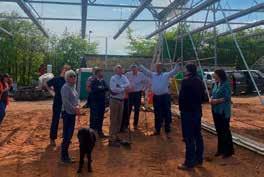
It has been a very successful year for the Central Region, with 12 applications for this year’s Nuffield Scholarships. There has been a lot of interest earlier on in the year and we have had 3 candidates selected for interview. We didn’t get a farm walk in this summer; however, the Central Region Farmers Trust held a successful farm walk in June for past, present and prospective Scholars at Crowmarsh Battle Barns, Oxfordshire, with thanks to Philip Chamberlain for hosting. This is my last year as Chairman for the Central
Region, I have really enjoyed giving back to Nuffield, assisting prospective Scholars through the application process, organising the 2021 conference and maintaining the links with existing scholars in the Central Region. I am pleased that Chris Padfield (2015 NSch) is taking on the role as Central Region Chairman after Conference and I am sure he will do a sterling job.
Patrick HookOnce again, the Dairy Study Group are pleased to report on another successful and very enjoyable study tour. This year was a first for the group to make it to The Netherlands. However, getting there and home again, was akin to “The Wacky Races” with planes, trains and automobiles all in use due to delayed and cancelled Easyjet flights.
Huge credit must go this year’s organiser Kees Hemminga, a Dutch scholar, who had previously joined us on the Cornwall tour in 2019. The key focus of this year’s tour was, how the Dutch dairy industry is dealing with environmental legislation and sustainability as well as labour efficiency. Past, present and prospective scholars, were treated to a fantastic range of very informative and interesting visits. Thanks must also go to all our hosts, for their honesty and hospitality.
The tour kicked off with a fascinating visit to Djuke van der Maat (Nuffield Director NL) to get a background on agriculture in NL and see her thriving fruit enterprise and farm shop. FrieslandCampina gave the group a great insight to their 125 year old Coop, generating a revenue of 14.1 billion euro, with a focus on adding value, across its sites in 31 different countries.
Nuffield Scholars – Rick & Judith de Vor, milk 110 cows on a polder created in the 1500’s which is 2 meters below sea level. Their focus is on educating the general public about agriculture in a positive way so that both farmers and city dwellers can live in social harmony, whilst caring for the environment.
Other highlights included a visit to the Lely factory, followed by a visit to one of their farms. We were able to see the first hand how much their various robots can reduce manual work and how the ‘Discovery’ barn scraper can work with the ‘Sphere’ to reduce ammonia emissions by up to 70%.
However, the most ingenuity was demonstrated on our final visit, to a camel dairy farm, with 25 animals in milk. The milk was sold for 10 euro/litre, while their urine which also had
The 2024 tour will be based in North Wales and Cheshire and will take place from 10th -13th June. New faces are always welcome!
Trevor Alcorn 2023 Chairman
Announcing the new Nuffield Reputation & Public Outreach Group: Agrowingnumberof Nuffieldscholarsarestudyinghowtoaddressthefracturedrelationshipsbetweenfarming andthepublic.
We saw an opportunity to make use of this collective knowledge – and now we’re delighted to announce a new addition to the Nuffield family: the Reputation & Public Outreach Group.
Launched in June, it aims to improve how the outside world sees the UK farming industry. This is because those of us in the group believe that while the world around us continues to change rapidly, UK farming can change with it to be both relevant and viable – whether as food supplier, energy generator, educator, leisure provider, custodian of the environment, or inclusive and exciting employer.
Some of the activities the group have considered undertaking include:
•Supporting other Nuffield groups and the wider Nuffield network in tackling their reputational and outreach issues
•Developing positions on critical reputational issues facing the industry
•Influencing policy and political opinion based on a unique combination of practice and evidence
We have already started one project, which we hope to tell you more about at the Conference this year. All we can say at the moment is it’s needed, it’s daring, and it’s coming your way soon! So watch this space and get involved when you get the chance –we will welcome your support.
In the meantime, if you are interested in hearing more about the group or would like to join, please contact Amy Jackson at amy@oxtale.co.uk
Picture: Group member Anna Bowen NSch is studying ethically rearing dairy calves on cows; she’s aware that cow-calf separation is of growing concern to the public, and may need to be addressed proactively to avoid reputation damage.
Amy Jackson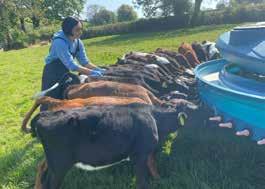
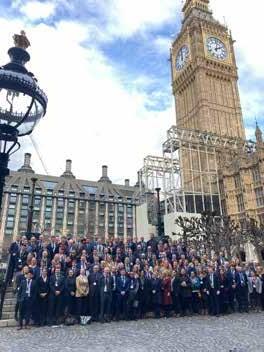
Once again, the West Midland branch has been active this year with a couple of events and a record amount of new scholar applications.
Last winter, The Warwickshire Rural Hub and the Kenilworth Agricultural Society joined with us to put on a night of talks by scholars. I must extend my thanks to Joe Franklin (Nsch 2011) and Charlie Steer (Nsch 2019) for travelling up (and down) to speak. Jo and Charlie entertained the audience with their Nuffield story – the highs as well as the lows. Jo talked about starting her sheep business including the new sheep diary and how they combine this with the arable rotation. Charlie talked about his role advancing the Grosvenor Estate’s triple bottom line. The talks were very well received and the plan is to repeat the event next year.
We also had as summer visited to Caplor Farm, were Gareth Williams (NSch 1994) told his story from baling to renewable energy with plenty in between. Gareth’s own energy and willingness to try something new shone through and all left very impressed. It was a very fitting way to celebrate the 100 years of the Williams family being at Caplor Farm.
As I write we have been actively helping potential scholars with their applications. Interest is up this year and not only do we have a far greater number applying but they enthusiasm for Nuffield is very high. Hopefully we can have a flood of new scholars from the region.
I should also express my thanks to Ed Barnston NSch for his efforts as Vice Chair this year and to Julie Mate NSch for her assistance in the Mock interviews.
Rob Burtonshaw
Introducing the People Group, a space where Nuffield Alumni with a shared passion for community, people, and leadership can come together. We’re excited to unite the knowledge and engagement of the alumni network.
Our plan is simple -we will hold gatherings three times a year in various regions across the country, recognising that not everyone can make it every time. These events will be more than just meetings; they’ll feature overnight stays, fun activities, interesting visits, and engaging speakers. Our goal is to not only connect with fellow scholars but also with the places and people we encounter.
Spending time with fellow scholars is always rewarding, igniting our curiosity and drive. Let’s build a group that’s brimming with
energy and enthusiasm, making the most of our alumni network.
Join us for our introductory video call on November 21st at 12:30. Simply reach out to Helen Wyman at helen.wyman@outlook. com to get your invitation. Together, we’ll shape the People Group into a vibrant community that celebrates our shared interests and the connections we’ve formed through Nuffield scholarships.
Helen WymanNuffield Scotland winter meeting and AGM took the form of a dinner at Dunblane Hydro, with a fun and interesting evening. FW Awards 2021 Diversification Farmer of the Year winners, Alison and Fergus Younger of Old Leckie farm entertained us with their views on building a sustainable business from a small farm, direct-selling and work-life balance.
Ali Cook 2022 NSch and Vic Ballantyne 2022 NSch shared some of their travel experiences and their current thinking as their study topics distilled towards a conclusion. Both Scholars have packed a lot of thinking into their projects and I really look forward to hearing them present at the 2023 conference. It has been a privilege to follow their journey through the Nuffield Scotland group.
Our Highland Show reception is a great event, make sure you are around on the Friday evening if you are at the show next year. The Marks and Spencer team provided ample hospitality to oil the wheels of networking and the timing of the event gives a ringside view of the heavy-horse turnouts. The setting, hospitality and camaraderie of Scholars old & new, weel-kent, far-flung and potential makes it a highlight of the year.
Current Scholars, Byron Braithwaite, Tom Clark, Alistair McBain and Claire Taylor updated us on their travel plans and gave us some feedback from CSC. And attending the Golden Shears from Nuffield New Zealand, Roger and Barbie Barton gave a little international insight for the audience which included some potential scholars who we hope to see again.
Our summer trip took us to the far South West tip of Scotland where we came across lots of great grass, Black Baldie cattle, coping with Avian Influenza, zero-waste systems and the
circular use of renewable energy, business structure and succession, on-farm use of genomics, staffing solutions, a tour around a lifeboat – and, in good Nuffield style, a fullhouse at last-orders in the Portpatrick Hotel.
Neil McGowan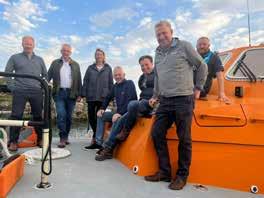

Following the November 2022 Nuffield conference in Cardiff and the Triennial both of which were fantastic opportunities for communication and collaboration, the Nuffield pig group decided to focus on one event in 2023 with the aim of building member numbers.
With the kind offer of Steve and Meryl Ward to host the event at Uncle Henry’s in Lincolnshire we are focussing on attracting new Pig Scholars to apply in 2024. The event will take place on October 12th and current Nuffield and prospective scholars are more than welcome to join.
This year continues to be a challenging time for pig farmers with new legislative hurdles and increased feed costs and raw material scarcity still being felt it is no wonder many companies have moved away from pork production. Within the Nuffield pig group we hope to be able to discuss ways to weather these storms, create collaboration and through the wider Nuffield network look to inform policy makers to help British farmers maintain profitability.
If you are interested in joining the Pig Group, please forward your contact details
to Charlotte (Nuffield Office) or Heidi Hall (details below so that you can be added to our mailing list. If you could also provide a mobile number that would be great as we hope to set up a Pig WhatsApp Group to try and improve ease of communication.
Heidi heidi.hall@anpario.com06.09.2023

In the spring, Nuffield Regional Chairs enjoyed an excellent presentation from Jenna Ross about how she and Nuffield Scotland have structured their leadership team to encourage more, and better quality applicants, and to engage with Nuffield Alumni more regularly.
Encouraged by their success, and very aware that I have few, if any, of the skills needed to emulate them, I have been busy recruiting others to help – and ultimately – take over from me.
Consequently, I am delighted to welcome and introduce our new committee for Anglia Region: Teresa Meadows is Vice-Chair and Chair Elect. Emily Aitchison joins us as secretary; and Jamie Lockhart and Toby Simpson make up the other two members of our five-person committee.
We have held one (Zoom) meeting so far and already I am humbled and inspired by the knowledge, enthusiasm and can-do attitude
of them all. I think 2024 is going to be the start of something very special. We are planning a social event and intend to meet up at one or more of our regional agricultural shows, where both Scholars and potential scholars can come along to meet each other.
In other news we held mock interviews jointly with East Midlands Region for 9 potential scholars. All were of a very high quality and we look forward to hearing who has been successful in the real thing (results due in the next few days, as I type).
Here’s to 2024 and I hope to meet many of you at some point next year.
Tom Chapman, Anglia ChairThis year the Nuffield Golf Society has developed with new partners.
The first game was in Nottinghamshire at Radcliffe on Trent. Nuffield put forward a strong team to compete with local farmers as well as a sporting all-star team captained by former cricketer Chris Broad. The Nuffield team captained by John Strawson put up a great performance having a very enjoyable day.
We try to organise a regional tour each year, this year we were lucky to be invited to Ireland by a wonderful team of Irish Scholars, Michael Brady, Ciara O`Halloran and Johnny Butterly. I have always enjoyed the company of Irish Scholars and I miss their involvement within Nuffield UK, this trip highlighted the need for greater unity.
The trip was for golfers and non-golfers alike, the tour was based around southern Ireland where we visited a folk festival, the Irish Stud, and some wonderful Irish Scholars.
David Kerr’s dairy farm demonstrated that good biodiversity helps profitability and Ray O Fohulu Hometree charity was amazing. Pat Collins is Grass Farmer of the Year and Brian McCarthy both growing with innovation on land and roof tops!
Fantastic hospitality and generosity from everyone we met in Ireland climaxed with a wonderful night out in Dublin with our host Johnny Butterly and a spectacular game of golf at Portmarnock!
Next year’s golf away trip is planned to go back to Scotland to link with the Highland Show.
Nuffield’s Golf Society has this year teamed up with the Farmers Club Golf Society. Nuffield members played in the Farmers Club John Allison Memorial Day at Stratford on Avon, as
well as at Royal St George, Blackwell, Worksop and Coxmoor. This is proving very successful, and we look to continue to build on this relationship and encourage anyone interested to join us. For more information about the Golf Society email: David@farmeco.co.uk
David Rose
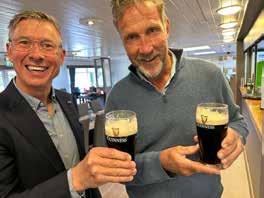
New scholars: We welcome Sylwia Sobolewska - Feed efficiency and targeted genetic selection as the key for sustainable performance and profitability in laying hens, and George Roach - There is a buzz around insect protein in the broiler industry. Does the idea have legs?
Autumn Tour: 14 scholars travelled to Israel in November 2022. Some highlights were a swim in the Dead Sea and a visit to a kibbutz, but it was particularly interesting to learn about embryo sexing. A tour of Plasson factory where drinker and feeder parts are manufactured. We visited innovative arid land farming operations around the Dead Sea growing salad vegetables and fruit.

This year’s study tour has 18 of us flying to Brazil on 12th October for a week and our thanks go to Steve Pritchard for taking on the role of organiser.
Farmers Club dinner: On March 21st 2023, we had our annual Farmers Club dinner with a very interesting discussion led by Amy Jackson of Oxtail on “Poultry Farmers – Is it Love, hate or Tolerate” Amy is a Nuffield Scholar herself, with 25 years’ experience in agricultural communication.
Spring weekend: The Poultry Group 42nd AGM was hosted by James and Laura Corbett in Wiltshire. A fascinating weekend visiting Ramsbury Estate and Distillery, Avebury Stones and Manor, the Marlborough Downs Space for Nature and parts of Laura’s businesses including her White Park cattle and the Gourmet Goat Farm. The whole event was blessed by the weather and our thanks go to James and Laura for a wonderful event.
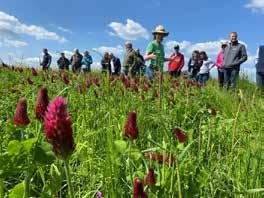
LauraCorbettdiscussinggrasslandmanagement
For the 2024 Spring Weekend, Stephen Fell has stepped in at comparatively late notice to host the group starting with a visit to the home farm in Yorkshire and thence to Northumberland. The event will be in April to allow Stephen time to prepare for The 2024 Chelsea Flower show.
Congratulations to our Vice Chair Karen Campbell on the award for “Outstanding contribution to the Scottish Poultry Industry”. The top award at the 25th anniversary of the Poultry Club of Scotland.
And to Aled Griffiths for a Lifetime Achievement Award at the National Egg and Poultry awards in September 2022.
Also to Steve Pritchard for a Lifetime contribution to the Industry Award by the Pullet Rearers, Hatchery and Breeders Association and another by the South West Layers Association.
Simon CarltonPoultry Group Secretary
The Northern Ireland regional group kicked off the year with a visit to the headquarters of Fane Valley, a large farmer co-operative whose enterprises include feed compounding, livestock ID and a chain of agricultural stores, along with a successful oat milling business and a relatively recently acquired duck meat enterprise. Fane Valley CEO Trevor Lockhart gave the Northern Ireland Scholars a talk on the co-operatives current ventures. This was followed by a tour of their logistics hub.
Afterwards the group held its Annual General Meeting. Gregg Sommerville stepped down from the Chair with Ciaran Hamill being appointed as the new Chair and Trevor Alcorn as Vice-Chair.
In April the group held a farm walk and barbecue for prospective scholars at the farm of Greg Sommerville. Gregg outlined how he had put his Nuffield topic of secondary dairy units into effect. Fourteen potential scholars attended the event which was attended by Nuffield UK Chair Wynn Owen.
In May the group held its annual reception in the President’s Pavilion at the Balmoral Show courtesy of the Royal Ulster Agricultural Society. Sarah Penrose was the guest
speaker. The event was also attended by David Gardiner and Nuffield UK Director Designate Rupert Alers-Hankey.
The Northern Ireland Scholars Group look forward to welcoming you to the 2024 UK Conference which they will be hosting in Belfast.
Jason Rankin
All Business Groups met in 2023. In February the No3 group met in Chester courtesy of both Charlie Steer and Ed Barnston. Plenty to wrestle over, as we sat in the board room of Grosvenor Estates overlooking the dairy. From mega projects to micro businesses, each presentation was met with equal measures of wisdom and bon ami; amazing for only the second gathering of this group. Despite very different background, personality, and circumstances, the group seems collectively insightful, and I look forward enormously to the ongoing journey.
In March the No1 group met in Hereford courtesy of Heather and Phil Gorringe. Heather is the come-back-kid and anyone wanting to study resilience need look no further. Sold her flower business, restructured Wiggly Wigglers, and bought an apartment building all in the year. Heathers latest diversification is the converted function room which made (and makes) an excellent venue. This is the groups 18th gathering so friendships have been forged over the years. Indeed the annual meeting is only the tip of the iceberg as most as most of the group contact/support/advice continued throughout the year using social media and this year trips to Crete and Morocco.
In July the No2 group met in Herts courtesy of Jo Franklin and Rob Hodgkins (and Evie, Goerge and Maggie) as we took over their house. Living with stress is maybe a Nuffield default but Jo and Rob are by any measure ‘pushing that envelope’. Building businesses from scratch, acquiring new skills sets and managing a new team … let’s just say I’m glad they have youth on their side. I hope the groups visit proved a temporary, if not respite, distraction from the whirlwind of their lives. Many of this group are in a growing phase, from rock concerts to safaris to creating new industry sectors and it’s an awe-inspiring to facilitate.


Martin Gott and his partner Nicola run a small family-run ewe’s cheese dairy based in the southmost part of Cumbria’s picturesque Lake District focussing on producing a relatively small amount of cheese of the highest quality. Their aim is to provide interesting and unusual flavours and offer people something they are unlikely to have tasted before. Martin travelled extensively across Europe to study the production of artisan cheeses.
Globally Raw milk cheeses are sold at a significant premium over their pasteurised counterparts and are increasingly perceived as high quality aspirational products. Unfortunately very few cheeses in the UK made with raw milk achieve a significant premium over their similarly scaled and farm made pasteurised competitors. The costs of producing raw milk for cheesemaking is higher but offers opportunity for some farmers for a variety of reasons, but, it needs a premium for it to be sustainable in the long term. Access to high value markets is necessary to achieve the full value of high value cheeses.
The opportunity exists for some farms to create unique value for their regions and communities by producing high value cheeses with or without Raw Milk. The greatest opportunity exists where the scale, location or desired management practises of the farm make it difficult or uneconomic to supply established markets for liquid milk. The opportunity also exists where unique attributes of the farm, its people, or unique management practises have developed an engaged but remote following, for example, farms with significant reach through social media, tourism, cultural or even environmental attributes.
Unfortunately, there is a lack of technical knowledge, skills and training in dairy processing and this is stifling innovation and opportunity in the UK. This could be overcome, but to be effective needs training to be delivered regionally and also, importantly, it should be practically based. It also needs to be delivered consistently to allow for further skills development.
Whilst the opportunity exists in emerging markets, of course, the UK, Europe and the USA present the largest, most affluent and most sophisticated
consumer markets for high value cheeses. Tariff free and low-cost access to these markets is essential for our highest value cheeses. Lack of regional collaboration, consistent marketing and logistical support has historically limited opportunities for smaller remote cheesemakers in the UK, this could be addressed by greater collaboration within the industry both by producers and the wider supply chain. Similarly, geographically inconsistent interpretation of regulations within the UK is also a significant barrier to new entrants and innovation, an engaged, supportive but above all risk-based approach to regulation and enforcement is necessary for the development of high value Cheeses.
Across all dairy systems it is my experience that the value of milk was highest when it was in close proximity to an efficient and productive processing capacity. what that looks like should be reflective of the wider landscape and wider farming objectives.
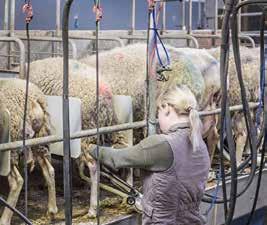
The Alan and Anne Beckett Award is for an entrepreneur or innovator who is a hands-on operator in the agricultural, horticultural or allied rural industries. It is a privately-funded UK Nuffield Farming Scholarship which has been running since 1996. Today the Beckett Scholars are collectively active in virtually every field in the wider agricultural scene with several diversified enterprises thrown in for good measure.

Alan himself was awarded a Nuffield Scholarship in 1957 and Anne was made an Hon. Scholar in 2007
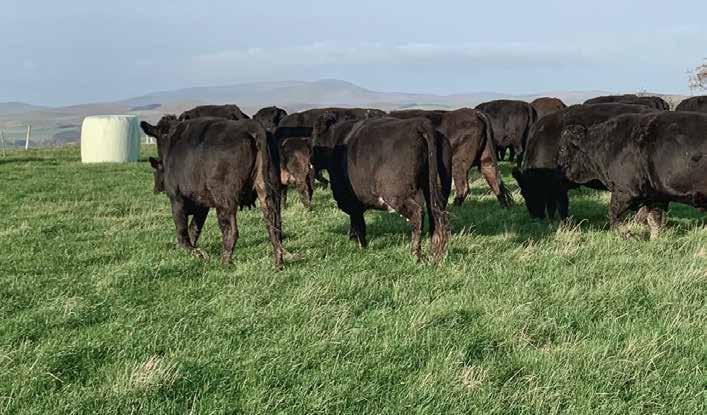

University and College Farms are indispensable to the UK’s agricultural teaching and research landscape. They serve as platforms for educating the next generation, facilitating research and promoting innovation in farming practices.
These farms not only provide students with hands-on experience, equipping them with the skills needed in the future but also offer an opportunity to produce insights into sustainable and efficient farming systems. The loss of agricultural colleges and the closure of experimental farms not only shows the importance of protecting the farms that we still have but also perhaps shows the opportunity that they have to help the broader sector both now and in the future.
University/college farms have similar challenges with perhaps the most fundamental to answer the question, ‘what is a university/ college farm for?’. Different institutions have different answers to the question depending on whether their focus is education or research, or a combination of the two. But all face the challenge of financial sustainability and how to balance the commercial realities of operating a farm while trying to deliver quality education and research.
There is no right or wrong answer to the question but there are a number of consistent themes of best practice that successful universities and colleges with farms demonstrate. Some are familiar to every farming business including having a strategic plan, monitoring performance, being adaptive to change and good governance/ management. But others such as having a strong advocate for the farm may be unfamiliar to those outside education establishments.
Demonstrating the importance of the farms within a university or college is important, particularly where they aren’t the main focus of an institution. A strong advocate for the farm is essential, they can secure support, finance and recognition that is in some cases beyond the manager of the farm. The farm’s identity inside and outside the institution is a key factor,
reputations count and having the right systems, plans and people in place is vital. However, staff retention can be a problem particularly where internal procedures are overly bureaucratic or conflict with or try to replicate good farming practises and systems that are already in place.
One of the most important factors in the success of university/college farms is their ability to provide a facility to deliver teaching and research. That might be in terms of farming systems or equipment or staffing. But its importance cannot be overstated and creating the right environment within the farm for the wider institution to utilise is probably the most important factor for a university/college farm. Universities/colleges with farms also provide an excellent opportunity to link researchers with farmers and industry and offer an opportunity to disseminate research findings. In some countries this link is built into policy and funded but in the UK its driven by project or person.
Given the similar issues university/college farms face and the ability they have to help UK Agriculture face its future challenges there is an opportunity for greater collaboration and some strategic capacity building in the sector. This should perhaps be part of wider co-ordination in the UK research/demonstration farm environment and link in with government policy and funding.
The long term success of university/college farms will translate into good education, good research and a positive impact on farm. A combination of the efforts of institutions, supported by clear thinking and backing from the wider industry and government will all be part of delivering excellence.
My Nuffield study on "Achieving Excellence in University and College Farms: Implementing Best Practices from Home and Abroad." Was kindly supported by the John Oldacre Foundation.
The study has given me an opportunity to explore how other institutions operate, what the people who use the farms need and some clarity on how we can best support these valuable assets in the future.
Thank you for the opportunity and starting a journey I hope to continue.
JamesStanden, 2019NuffieldScholar
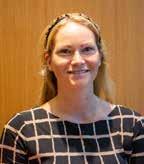
In today’s ever-evolving agricultural landscape, the critical intersection of plant breeding and crop inputs has emerged as a frontier for achieving sustainability, yield productivity, and resilience. However whilst plant breeding has always been used in modern agriculture, I am unsure how well it is understood by farmers, with the UK still having a very high dependency on crop protection products. And with crop protection products getting increasingly harder to register, we will have to place a bigger responsibility on plant breeding to maintain and possibly enhance crop yields and plant resilience.
The aim of this project was to become aware of the current modern day plant breeding technologies, and the differences that lie between UK and Global capabilities. Global plant breeding has evolved significantly over the years, driven by advances in technology, changing agricultural needs, and the increasing awareness of environmental and sustainability issues.
My Nuffield scholarship enabled me to look at global practises, understanding marker-assisted breeding, AI technology, global collaboration and bio technology/gene-editing for example. It gave me the opportunity to travel to South America, Australia, Europe, Denmark and United Kingdom. Virtually I visited USA and Canada. It was a brilliant way of interacting with farmers, research scientists, politicians and businesses.
It gave me insight into nutrient-efficient wheat varieties, enhanced tomato varieties and even banana disease control – having the potential to dramatically help with revolutionizing world hunger in an ever-changing climate.
During the period of my Nuffield scholarship, the UK opened its doors to the global practises of Genetic Engineering through the plant breeding bill, passed through parliament this year. This brought my scholarship closer to home and actually for me, more relevant and easier to see a commercial world where UK farmers might be able to tap into this potential. This however will not come without its risks and challenges, and so I have also taken the time to explore these.
I really hope that my Nuffield topic will encourage farmers to look at plant breeding with great
respect in the UK, as a future of change for yield and sustainability. I hope that my topic showcases the significant effort that goes in to securing the best varieties for the UK market and the immense potential for transforming modern UK agriculture.
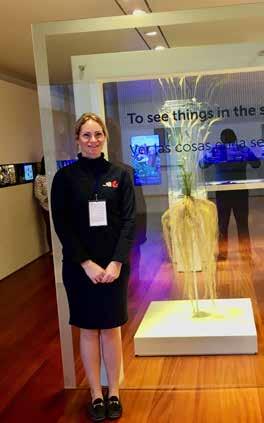
CENTRAL REGION FARMERS TRUST
Charity number 107943
THE TRUSTEES ARE PLEASED TO SUPPORT THE NUFFIELD FARMING SCHOLARSHIP TRUST
CENTRAL REGION FARMERS TRUST
THE TRUST HAS SUPPORTED FIFTEEN SCHOLARS RECENTLY FROM ITS REGION OF GLOUCESTERSHIRE, WILTSHIRE, BERKSHIRE, BUCKINGHAMSHIRE AND OXFORDSHIRE
Charity number 107943
FOR FURTHER INFORMATION PLEASE CONTACT THE SECRETARY
THE TRUSTEES ARE PLEASED TO SUPPORT THE NUFFIELD FARMING SCHOLARSHIP TRUST
JANE CURRILL
30 LETCH HILL DRIVE, BOURTON-ON-THE-WATER, CHELTENHAM
GLOUCESTERSHIRE GL54 2DQ
TEL: 07778 640537
E-MAIL: crfarmerstrust@gmail.com
THE TRUST HAS SUPPORTED THIRTEEN SCHOLARS RECENTLY FROM ITS REGION OF GLOUCESTERSHIRE, WILTSHIRE, BERKSHIRE, BUCKINGHAMSHIRE AND OXFORDSHIRE
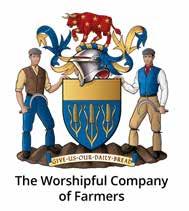
together, they deliver the strategic plan of the Company, whilst enjoying the fellowship and traditions of the 80th Livery Company of the City of London.
well as an understanding of the strategic issues and opportunities in their own businesses.
FOR FURTHER INFORMATION
PLEASE CONTACT THE SECRETARY
JANE CURRILL
This includes a very full programme of events and activities, spanning everything from the Lord Mayor’s Show, The Annual Banquet, The Agricultural Lecture and Dinner, quarterly lunches where the emphasis is on fellowship but with the added benefit of interesting and thoughtprovoking speakers to the Lord Mayor’s Pancake Race in the Guildhall Yard.
Challenge of Rural Leadership: This two-week residential course includes intensive discussion sessions, media training and exposure to world class speakers The aim is to develop the self-confidence, business acumen, leadership and communication skills of the delegates.
Business Growth Programme:
The Worshipful Company of Farmers is the City of London Livery Company dedicated to the positive promotion, better understanding, management and development of UK agriculture. Its principal charitable purpose is agricultural education, delivered through its portfolio of highly respected courses (below) and the provision of training grants, bursaries and educational awards to inspire, drive and recognise excellence.
Following the Grant of Livery in 1952 the Company has grown steadily in membership, stature and reach. Most of the Company’s 450-odd Liverymen are actively involved in agriculture or the allied industries and professions. Working
TEL: 07778 640537
E-MAIL: janecurrill160@btinternet.com
Company teams take part in numerous Inter-Livery activities, including shooting, ski-ing and tennis competitions. It is a member of the Inter-Livery Food Group that jointly runs and promotes the annual City Food Lecture at the Guildhall, while its military affiliations demonstrate its close association with all 3 of the Services.
The Company works closely with Surrey Docks Farm, providing financial support and help ‘in kind’ to this important charity which builds awareness and understanding of farming amongst a difficult-to-reach, inner-city audience.
Our industry-leading courses include:
Advanced Course in Agricultural Business Management: A two-week, residential course designed to help delegates develop analytical techniques, management and leadership skills, as
Designed specifically to help ownermanagers, the Programme provides delegates with a unique opportunity to step back from the day-to-day demands of running their businesses to develop a comprehensive and robust strategy and a plan for the future.
Master of Business Administration: The Company supports both the oneyear, full-time and the two-year, part-time MBA programmes at Cranfield.
For further details, see our website: farmerslivery.org.uk, or contact the Clerk: clerk@farmerslivery.org.uk


This report addresses the multifaceted challenges faced by family businesses in the agricultural sector. Amid the pressures to ensure survival, produce sustainable food, adhere to regulations, and mitigate climate change impacts, the future of farming businesses is under scrutiny. This report aims to explore the future landscape of farming businesses, their evolving priorities, and how lessons from successful family businesses in other industries can guide adaptation and success. The study delves into three core dimensions : the family, the business and the ownership.
Farming businesses can be likened to a ‘not so perfect’ cake, baked perhaps with ‘too many cooks’. When good times allow for plenty of cream you can cover up a multitude of sins, but when times turn hard, there is less cream to smooth over the cracks, and it comes down to the family to perfect their recipe for success. In the face of significant policy changes and the reduction of farm subsidies, the unity, innovation, and dynamism of farming families as both business partners and family members will be tested to the limit. Is it time to consider a new recipe?
While acknowledging the importance of financial management and production costs, this report goes beyond traditional metrics. It underscores the significance of achieving family greatness and shares insights from thriving global family businesses. Central to success is the cultivation of family relationships, collaborative decisionmaking, and future planning together—a departure from conventional agricultural education.
Recognizing that family dynamics underpin prosperity, the report emphasizes the role
of trust built through open, honest and fair communication. Drawing from the best family businesses, a common thread emerges—the family charter or constitution. This living document outlines the “Why” behind the family business, integrating history, values, and the founder’s vision. It provides a framework for decision-making, roles, responsibilities, finances, and conflict resolution.
Ultimately, the report encourages open dialogue to develop and formalize the existing, often implicit, family charter. It propels family businesses to address fundamental questions: Do they wish to remain a united family in business, and if so, how will they collaborate effectively?
In conclusion, the report highlights the complex landscape that family farming businesses navigate. By focusing on family unity, forwardlooking strategies, and the principles of successful family businesses, wrapped up in a Family Constitution, farming families can adapt, thrive and continue their legacy in an everchanging environment.






























Eighteen years ago Martin Thatcher, fourth generation cider maker, was awarded a coveted Nuffield Farming Scholarship. The insight he gained helped transform the family business to what it is today.
Thatchers are proud to support the Nuffield Farming Scholarship Trust helping others unlock their potential.

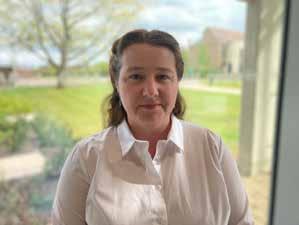
The aim of my scholarship was to understand if an ambitious, yet realistic, green growth strategy for UK horticulture could be developed. A strategy with the ambition to support future-focused economic growth in the sector, whilst ensuring the sustainable use of natural capital and ecosystem services.
As an industry, our ultimate goal must be to quickly arrive at, and be operating at, our ‘end point’, which is embodied in environmentally and financially sustainable, efficient and profitable crop production systems. To achieve this aim, my study focussed on three key areas that are interdependent in the food production systems of the future:
1. Achieving climate-neutral crop production – Examination of ‘responsible innovation’: removal of dependency on fossil fuels; reduce energy demand by increasing energy efficiency; and opportunities for carbon capture, usage and storage.
2. Optimised growing – Integration of complex biological systems with advanced ‘clean’ technologies and bioengineering for optimal crop performance, including learning from organic approaches for future conventional production with reduced access to crop chemistry.
3. Integration of Circular Economy thinking –Identification of the opportunities to build Circular Economy thinking into horticultural crop production systems using case studies.
Throughout my study, two critical questions arose and became the focal point of my research:
“What does ‘responsible’ crop production look like?” - How are we using, or developing new solutions to improve our systems? Are we growing the right crops?
“Is the development of a green growth agenda even possible?” – How can the UK horticulture sector grow? How can we look at Horticulture through a wider lens? Are there emerging opportunities that we are missing?
This study presents my findings and thoughts on the future prospects for our sector. The development of this green growth strategy focuses on innovation and the creation of new products, supply chains and partnerships. It can help inform future horticultural business ambitions, identify new opportunities, and direct strategic research and innovation priority areas for the horticultural sector.
Are supported by a trust fund established to encourage potential scholars to research opportunities and initiatives “beyond the farmgate”.
Whether it be reaching out directly to the consumer or working with others to exploit opportunities in the wider food chain there is much to be seen and learned by studying both in the UK and across the globe.
Potential scholars looking for more information should contact Nuffield Scholar Duncan Rawson
drawson@effp.com
The Worshipful Company of Fruiterers are delighted to support the Nuffield Farming Scholarships Trust and our leaders of the future.
In support of excellence throughout the Fruit industry, the Worshipful Company of Fruiterers have a number of generous annual awards available, further details can be found at:
www.fruiterers.org.uk
The Fruiterers have existed for over 700 years supporting the fruit, and wider produce, industry of the UK.
In addition to our investment in Nuffield scholars we have a number of awards each year focused on research and education that benefit the sector and in addition we also award prizes for outstanding student endeavour including our prestigious David Hohnen award.


Frost can hugely affect a vineyard and other fruits grown in cool climate areas. The UK seems to be under more threat than we once were with rising temperatures in early spring. Leaving the vines, first shoots after winter dormancy, vulnerable to April spring frosts. Vines that suffer frosts greatly reduce their ability to produce fruit. The damaged to a grape vine can affect the vines for years to come, depending on the temperature, duration and number of frost events in any one spring.
The aim of my project was to contact and talk to growers form other cool climate areas that have suffered from frosts and find out how they protect their own vineyards. My objectives were to not only learn about physically blocking frost. But to find out how vine nutrition and soil care could also mitigate the severity of frozen temperatures.
The countries I was able to travel to in 2020 was New Zealand both North and South Island for 3 weeks, and Tasmania for 2 weeks. Unfortunately, I couldn’t finish my travels to China and Kazakhstan due to Covid. I was hoping to visit cool climate frost protection methods run in smaller less known regions. Instead, once back to the UK I started to experiment with my own vineyard with different frost protection methods and practises that are available to the UK. I was able to visit large cool climate wine regions and learn from the growers what works for them.
The outcome of my studies didn’t end with one final answer. A vineyards situation is the first of many factors that will have a huge impact on frost protection. The aspect of the land changes the types of physical frost protection available. And the quality of the soil also plays an important factor.
With the future of English Viticulture only increasing in acreage each year with warmer summers and increasing light days. Grape vines for wine production is on the increase. What I was hoping to discover was an effective, affordable, and sustainable solution to frost protection. Which would then open opportunities of some fantastic land suitable for growing excellent grapes, which at the moment is vulnerable to frost.

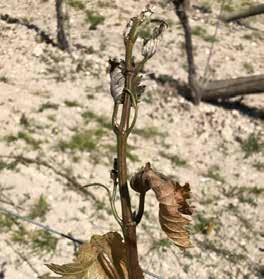

My Nuffield Scholarship is on the topic of Frost protection in cool climate viticulture and post frost vine care was kindly sponsored by The John Oldacre Foundation. This generous support allowed me to travel to New Zealand and Tasmania as well as to study extensively in the UK. This allowed me to compare a range of approaches to frost protection in a variety of farms not just viticulture. With this knowledge I have been able to implement a frost protection program for my own vineyard.
Fred Langdale 2020 Scholar.


Regenerative agriculture (RA) has captured the attention of major food and farming companies –a term that encompasses various sustainable farming practices, some as ancient as agriculture itself. This study offers lessons from a supply chain perspective, exploring its adoption and efforts to propel it into the mainstream.
The first section showcases the diverse ways in which RA is perceived and its relevance in the broader sustainability landscape. The second section focuses on scaling-up: how can companies create an environment where it is desirable for farmers to invest time and money in regenerative farming. Responding to the ambitious goals cited for a RA future, the final section highlights often-overlooked themes, including social justice and equity, crop diversity, agroforestry, nutrition, and debates over landuse and livestock.
1. Collaborative efforts setting ambitious, shared goals for RA are valuable – as goals help to drive our behaviours and culture.
2. RA holds potential to inspire profound, collective action, bolstering farm and supply chain resilience while aiding carbon drawdown and nature recovery. Substantial investments and a systems approach are required to avoid it becoming a lukewarm movement, progressing too slowly to effectively respond to climate risk.
3. Not all embrace RA; scepticism and concerns exist across different camps, making it an unsuitable framing for some farmers.
4. Companies championing RA are at varying stages of their journey, exhibiting disparate levels of ambition, resulting in a somewhat fragmented landscape.
5. Narrow perspectives of RA, focused only on a few practices, risk undermining more expansive regenerative ambitions, envisioned by many organisations and people.
1. While pilot projects are valuable, emphasis should shift to mainstreaming RA through new business and financing models.
2. Programmes must prioritise the needs of farmers, involve co-creation and engage with the nuances of change and risk – especially as initial costs can be high, with delayed returns.
3. Farmer support requires a triad of technical assistance, cultural acceptability, and financial incentives to de-risk practice changes.
4. On-farm interactions between farmers and buyers are valuable to build trust and understanding; intermediaries can help facilitate this for large companies.
5. Effective measurement is delicate and complex, with limited uniformity across companies, despite efforts to align approaches. Certification programmes also exist and can be valuable for fostering trust.
6. Many carbon offset schemes have integrity risks and a limited view of RA; they should not be relied upon to scale-up RA practices.
7. Consumers should be engaged, but expecting buying habits to drive a RA revolution is complacent; value chains should share any additional costs.
8. Collaboration is necessary across the supply chain and between competitors. A plethora of mainly NGO-led collaborations exist and navigating these is critical.
In summary, the RA movement has huge potential as a transformative force in agriculture. While many are actively pursuing its ambitious goals, the journey is deeply complex and should not be underestimated. It demands unlikely collaborations, new responsibilities, innovative business models and open mindsets.








We source from over 23,000 British & Irish farmers and we’re investing millions to help set farms up for a more sustainable future.


A little change that will have a positive impact on British and Irish farming.















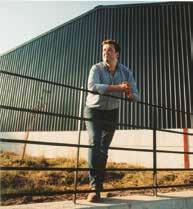






Livestock production and meat consumption has been under intense scrutiny in recent years, being labelled as a major contributor to climate change and associated with negative impacts on human health. This has led to the development of a plant-based meat alternative industry which has been hailed as a major solution to climate change and improved human health, particularly in 2019-2020 when this study began. This studies original aim was to investigate the production of traditional protein and the new alternative protein technologies and find which product would dominate our plates in the future.

Since then, however the world has changed, with a global pandemic and conflict interrupting food supply, affecting the general public’s perceptions of food. Globally the share price of some of these major meat alternative companies have fallen dramatically as their products have so far failed to penetrate markets as expected. However, we are still seeing a change in consumer habits and as a livestock industry we need to adapt to changing consumer demands in how we produce red meat and market the products.
The study focused on identifying consumer concerns which include welfare, environment, cost, and product quality, and what we as an industry should do to respond to these concerns to ensure our products stay on the table. Each country has different expectations of what they want from red meat in particular flavour and how they expect the animals to be reared.
The study saw travel to Australia, Ireland, and the United States alongside many other countries
virtually during the pandemic, including the Netherlands, New Zealand, Switzerland, Sweden, and Germany. Travel to major beef exporting nations who focus on consumer demand ensures customer satisfaction and has allowed business growth. Interviews were also carried out with many environmental and animal welfare NGOs to better understand wider concerns and recommendations for red meat production. For a successful future, the UK red meat industry must take account of changing demands and react and build a resilient supply-chain focused on animal welfare, environmentally friendly products with an aim to reducing climate impact while also improving wider biodiversity and water quality. The study recommends the need to focus on meat eating quality to ensure customers have a positive experience with our products every time they consume them. The United States and Australia have both implemented technologies to reward producers for beef with improved eating quality characteristics and this study recommends that a similar approach should be taken in the UK. The report also recommends that each producer should review their business to identify and capitalise on their strengths, to produce beef in a way that is resilient to extremes and produce products that consumers demand.
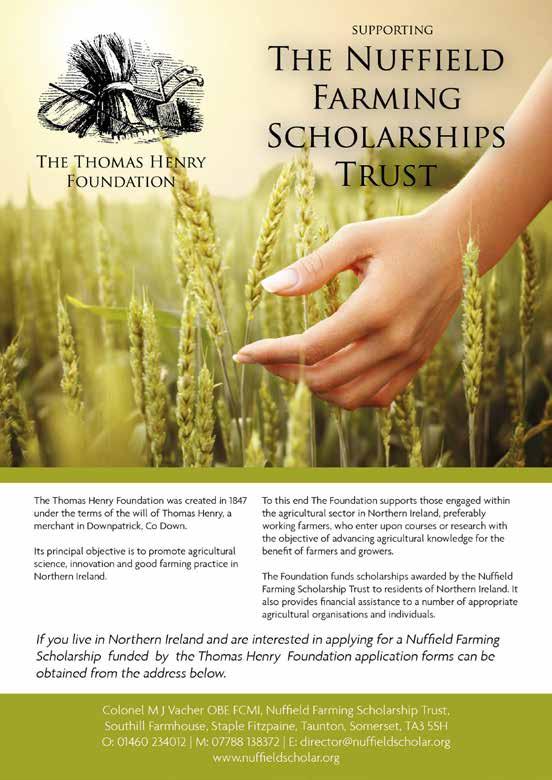

Red meat production is coming under increased pressure economical, ecologically and ethically. The use of our land is changing and this is particularly the case in the uplands where investors come from outside of primary meat production. These investors are buying up marginal land for the storage and trading of carbon, biodiversity net gain and rewilding. This is driving land values up from the agricultural productive value. All of this at a time when the climate is changing and the industry is going through its biggest shift of agricultural policy in generations. There is going to be a lot of change and challenges ahead for farming businesses.
Although levels of farm support is decreasing rapidly, farmers are being asked to provide much more than just food. The so called ‘public goods’ clean air, water quality, biodiversity, a stable climate and resilience to flooding. The ecosystem function is key to meeting all of these key ecological long term goals and providing an environment that healthily animals can be raised to provide nutrient dense food.
The aim of this study is to:
• Define the monetarily value of natural capital and how to capture it
• Find out whether it is possible to operate a profitable farming business whilst meeting key environmental goals
• Look at the effects of increasing the natural capital and the outcome of this on the day to day running of an upland livestock farm.
Through this Nuffield Scholarship, I was able to travel to different countries to understand how different farming systems adapted to meet their demands of food production alongside the need to improve ecosystem function.
I found that although I visited many different farming businesses in various sectors, a lot of the challenges faced are very similar. Comparing the wine grower in Chile to a cattle farmer in Cumbria isn’t an obvious comparison but when you consider soil heath, moisture retention, plant biodiversity and nutrient cycling, all these
factors affected every farm I visited in one way or another. It is very refreshing that throughout my studies I met so many like-minded farmers who share the same passion to farm with the environment at the heart of the farming systems. The growing regenerative farming movement is a prime example of this.
It is very difficult to put a total value on your land from a natural capital point of view. Now we have new industries opening in the ‘wild west’ of carbon trading and biodiversity credits. Lots of companies are using many different matrix’s all looking to cash in on the assets stored in our soils, woodland, wildflower meadows and hedgerows.
Through time, as more detailed baseline studies and data is collected and repeated over a period of at least ten years, businesses will then be in a position to generate an income stream from their natural capital.
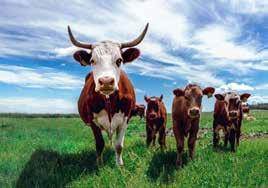

Our experts track and analyse the attitudes and behaviours of consumers towards food and farming, helping the entire supply chain create a world-leading domestic and international food industry. This also helps us to bring more value to your levy when protecting and promoting the world-class production standards of British farming and its products across issues that matter most to consumers.
To find out more, visit
ahdb.org.uk/retail-and-consumer-insight

The reputation of food and farming is centred around:
• Animal health and welfare
• Environmental impact
• Human health and nutrition
The Company of the Staple can trace its ancestry back to 1359 when the King of England gave unequivocal control of the export trade in Staple Commodities to the Company of the Merchants of the Staple of England.
In 1619 a new set of ordinances was drawn up to reflect the Company’s role in the wool broking business, and during the 17th and 18th centuries the company organised and managed the supply of wool to the great clothing industries of Europe. By 1928 the Company was no more than a dining club with a small charitable arm.
The Company is now based in Yorkshire, with many of the Freemen coming from the textile and farming industries. It meets twice a year for the St George’s and Michaelmas feasts at the Merchant Adventurers’ or Merchant Taylors’ Hall in York.
The Company awards Bursaries every year and is pleased to sponsor a Nuffield Scholar with a preference for a scholar in the livestock, and in particular the sheep and wool sectors.
www.merchantsofthestapleofengland.co.uk

I set out to research new trends and opportunities that farmers interested in entering or expanding within the drinks sector can adopt. I wanted to discover the next big trend, the new ‘craft gin’ craze. I wanted to inform farmers of new trends, allowing them to take advantage of the enormous opportunity to diversify into drink production.
My topic was wide-ranging, and after my initial research, I have focused on drinks that can be produced with sustainable ingredients that encourage biodiversity and the move towards a regenerative farming future. To do this, I travelled to California, France, Italy, the UK, and Georgia to look at both large and small drinks producers and learn from macro to micro businesses.
It is a time of significant change in agricultural production in the UK, which can be seen as frightening or a great opportunity. Now is the time to seize that opportunity, with a range of grants available for value-added production. Now is the time to bring production back onto the farm. Drinks provide great scope for scalable businesses and allow added value to what would otherwise be commodity crops. The value of the UK alcoholic drinks market reached just under £50 billion in 2022, up 6% from £46 billion in 2021.
‘Farm to Fork’ has been a widely recognised concept, with its own strategy at the heart of the European Green Deal, aiming to make food systems fair, healthy, and environmentally friendly. Eating local produce is a powerful movement for the foodie community. However, ‘Farm to Glass’ is not a defined concept, and I have been asked many times what exactly it is.
I believe ‘Farm to Glass’ is the ability to connect a farmer to a beverage. It doesn’t need to be a circular system of growing ingredients and making a product on the farm. However, there needs to be clear transparency between the farmer and local distiller, winemaker, or brewer. Furthermore, ‘Farm to Glass’ enables and empowers farmers to get a fair rather
than commodity price. There is the chance to sell locally or export which brings jobs to the local community, keeping people involved in agriculture and creating ancillary employment.
Predicting future trends in the drinks industry has been challenging; during my study, I realised that creating or being part of a ‘trend’ does not necessarily equate to long-term success. Trends run their course, you must find something you are passionate about producing, that has a niche characteristic for longevity in the market. If you produce a high-quality product with integrity, you will always be able to sell it. I have not found the golden ticket tipple but learned many lessons. The overarching trend I have discovered is sustainable production is the future; sustainability will be a lasting a trend as it a necessity.
“For decades, across the world, heritage and traditions were drying and biodiversity was in decline. There is a new generation of producers all determined to make drinks that belong to a more diverse and deeper story.”
Dan Saladino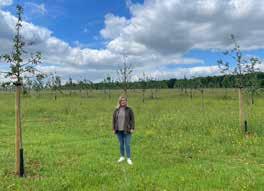
The Alan and Anne Beckett Award is for an entrepreneur or innovator who is a hands-on operator in the agricultural, horticultural or allied rural industries. It is a privately-funded UK Nuffield Farming Scholarship which has been running since 1996. Today the Beckett Scholars are collectively active in virtually every field in the wider agricultural scene with several diversified enterprises thrown in for good measure.

Alan himself was awarded a Nuffield Scholarship in 1957 and Anne was made an Hon. Scholar in 2007


Forage production (whether grazed or conserved) is an essential cornerstone of any dairy business. Climate change is an inevitability, and for many UK farms this will mean more extreme weather events, with warmer, wetter Winters and hotter, dryer Summers. This threatens to challenge the de-facto methods of forage production in the UK dairy industry; perennial ryegrass leys supplemented with maize/wholecrop cereals.
To understand how UK farmers can adapt, I visited dairying regions slightly closer to the equator; France, Australia and New Zealand. The following observations were made:
In many dryer regions (Victoria, Tasmania, Canterbury Plains), irrigation is deemed necessary for dairy businesses to thrive. Where practical, the economic case for irrigation of forage crops may become more justified in the UK, as is commonplace in France, Australia and New Zealand.
Alternative crops, better able to cope with lack of frequent moisture, will be part of the solution; most of these are already relatively well known, and include deeper rooting grasses (cocksfoot, fescues), herbs (chicory, plantain) and legumes (lucerne, red clover). Grazing management of these is different to perennial ryegrass, for example longer rotations and higher residuals.
Warmer, wetter Winters present an opportunity to grow valuable cover crops, for example between maize crops, which can offer additional tonnes of dry matter, alongside other benefits (e.g. reducing nutrient leaching; improving soil structure; outwintering; and increasing organic matter).
However, solutions will require more than a change to the seeds we sow, and how we grow them; dairy systems will evolve to mitigate risks, as seen in other nations with more extreme climates. Dairy farms are likely to diverge into the following two specialisms:
• All-year-round confinement systems, where cows are fully housed and fed a total mixed ration; feed can be grown and ensiled in the “good times”, or substituted with imported feedstuffs. Capital spend is higher, so milk yields are higher (10,000+ litres) to compensate for higher depreciation, finance and fixed costs.
• Block calving, grazing-based systems, with a calving pattern to best-match the grass
growth potential of the area; i.e. Spring calving for wetter areas, Autumn calving for drier summers. Yield is lower, but so are overall costs, leaving similar potential for profit. These systems “let the cow do the work”.
Given that I run a grass-based system, this study has gravitated towards grazing systems. I deem these to be more sustainable, as they have a lower embodied carbon cost; are better able to cope with volatile milk price; and as ruminants evolved to graze, are potentially better able to provide ecosystem benefits if managed sympathetically.
In addition, benefits of the following (non-croprelated) approaches have been observed:
• Planting more trees/hedges
• Breeding smaller/more efficient cows
• Enhancement of soil health and organic matter through a range of measures, including:
o Reduced tillage
o Deeper rooting crops
o High-intensity, short-duration grazing of large covers (“mob-grazing”)
Fundamentally, farming systems become more resilient when they work in harmony with nature, and we would be wise to evolve our businesses to suit.


An opportunity to develop your knowledge of the dairy industry, generate new ideas and share your findings.
The Trehane Trust offers annual awards, through participation in the Nuffield Farming Scholarship programme, to individuals who want to study and research a particular aspect of the dairy industry.
The remit is broad. Applicants are invited to study areas from milk production to processing and product development. It covers all related areas such as health and environmental concerns, consumer trends and marketing, and policies affecting the dairy chain.
More than 80 Scholars have benefited from Trehane scholarships. Their studies, which have been of great benefit to the individual and to the industry, have taken them across the world to North and South America, Japan, New Zealand, Australia, Europe and Scandinavia.
Each Trehane Scholar is provided with travel and subsistence costs for eight weeks – undertaken in one block or as smaller blocks.
The closing date for applications is 31 July each year.
Successful candidates will normally be aged between 24 and 45 and living in the UK.
More information on the Trehane awards is available from Diana Allen, Trust Chair on 07971 119128 or diana@qnm.ltd.uk
Previous reports and application forms can be downloaded from the Nuffield website www.nuffieldscholar.org

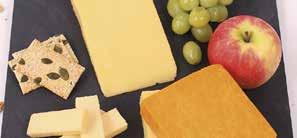

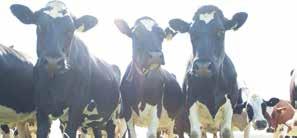

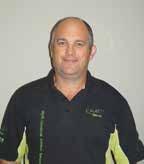
EID can improve animal welfare, detect disease outbreaks early, and optimise diets for increased production in farming businesses.
Traceability is crucial for animal welfare and food safety. EID in sheep and cattle passports helps accurately record their movements, ensuring complete traceability. This enables quick identification of potential health risks or disease outbreaks to ensure safe consumption. It also helps the UK market its livestock products worldwide as high-quality and safe. Without traceability, it would limit the UK’s ability to export products and decrease farmers’ profitability.
It is challenging to assess the cost-benefit of using EID for farmers at the farm level. Although mandatory for sheep in the UK, only a small percentage of UK sheep and beef farmers use EID for individual animal or flock/herd-level data recording. Even when EID is used, most farms only collect data on their animals once or twice a year. Farmers worldwide agree that when EID became mandatory, it pushed them to use it to help them understand their livestock businesses. However, better integration of data between government gateways, livestock markets, slaughterhouses, and all the different on-farm software programs used on farms is necessary to provide an easier way to generate useable reports for farmers to understand and compare their business year on year and against industry KPIs. In trials in Australia, they have seen a cost-benefit of using EID with every $1 invested, and they saw up to a $7 return on investment. In the UK, a trial by SRUC has seen a £3 per ewe benefit by using the technology.
Farmers need independent support to understand and integrate software and hardware across different platforms, as well as training and ongoing support for accurate and easy operation of their equipment and software. Currently, in the UK, Government capital grants support the purchase of EID hardware but not software. Farmers are purchasing equipment
with limited support on how to get the most out of the equipment. The UK government, as well as software companies, need to support farmers with ongoing training to get the most out of their investments. There is a global lack of farmer training, and this is something most farmers are looking for. From people going on farms to help capture important and accurate data to simple training, how do I connect the equipment to a phone or computer to report a movement?
To overcome integration and data management challenges and promote sustainable agriculture practices, it is essential to collaborate between farmers, industry stakeholders, and technology providers on how EID data can enhance farmers’ abilities to manage their livestock effectively and efficiently. However, collaboration and knowledge-sharing among farmers, industry stakeholders, and technology providers are essential to realise these benefits fully.
EID offers lots of opportunities. The key to using it effectively is not making it too complicated and using the technology to the level you can see a benefit and return from beyond what is required for simple identification purposes.
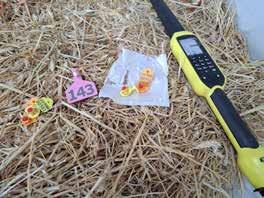
During my Nuffield Scholarship, I evaluated the potential cost benefits of electronic data recording for UK sheep and beef farms.
The John Oldacre Foundation kindly sponsored my research, which allowed me to travel to various countries, including New Zealand, Australia, Tasmania, Norway, Ireland, and the UK. This provided me with the opportunity to observe the practices of both larger and small-scale livestock units. I studied the different technologies being used and how data was being collected from the farm level to open the door to export produce to other countries.
MATTHEW BLYTH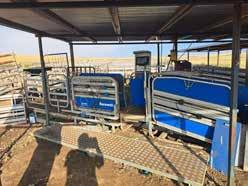



Dairy farming’s social licence- its “right” to be practiced- is challenged by the issues of surplus calf management and cow calf separation. Although the UK industry has effectively banned the euthanasia of healthy calves there remain difficulties in integrating dairy beef and bull calves into the red meat supply chain. While the industry has put significant effort into the bull calf issue, there is a growing public concern about the widespread practice of separating cows and calves. These social licence challenges may be dairy specific, but all industries that involve animals are being forced to acknowledge and address their own unique issues, which provides opportunities for cross- sector and cross- industry learning.
This study looked at the opportunities for dairy farms to transition to cow- calf contact systems through visiting farms and research stations. The farms ranged from micro-dairies selling their own branded produce to larger scale businesses selling milk direct to a processor for no added value. Some practiced dam rearing, others had foster systems, and the dairy management itself included robots, conventional parlours, and once a day, 2 in 3, twice a day, and robot milking.
Visiting these farms showed that CCC farming can be viable across different systems, but it needs careful consideration of management and necessary investment. Further research is needed both in an academic and a farm setting.
CCC is not a silver bullet solution to dairy’s social licence challenge. There will still be practices flagged as problematic and the industry will need to constantly adapt and improve to survive. Furthermore, CCC farming cannot rely on the practice alone to give it social licence and high welfare status; there has to be a focus on maintaining good core standards of dairy farming.
Surprising though it may seem, there are significant parallels between dairy farming’s social licence challenges and those faced by the racing industry. Dairy can learn from racing the importance of being proactive in marketing animals exiting the sector through taking financial and cultural ownership of the issue.
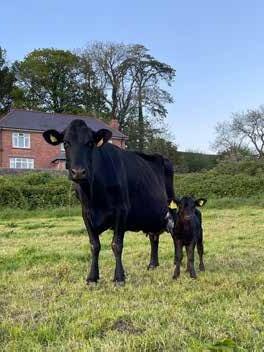

Elizabeth Creak was born in Slough in 1926. She attended McGill University in Canada before working for Allen Lane at Penguin Books in both the UK and latterly America, where she helped to establish their new venture. She returned to the UK to eventually work with her uncle, Clyde Higgs, who by then had built up a thriving two thousand acre dairy farm in Warwickshire. Prior to this, Clyde had also developed a four thousand acre farm in the foothills of Mount Kilamanjaro and held a number of other positions including: Managing Director of English Farms in Wiltshire; Agricultural correspondent of the BBC and Council Member of the Royal Agricultural Society. Clyde was a highly innovative and enterprising farmer who was well known for challenging the status quo and cross-fertilizing best practices among farmers in the UK and around the world. His practical approach and constant quest for efficiency, gained at the family’s electric motor business, helped him to significantly increase output across his farms. He clearly recognized a similar passion and ability in Elizabeth and mentored her to become his successor.
In 1963 Elizabeth inherited Clyde’s farm in Warwickshire and ran it with great success for a number of years. She was a highly capable and well respected farmer and brought many creative ideas to the world of farming. She eventually sold the bulk of the business, but maintained a substantial acreage around Stratford. Elizabeth’s business acumen, determination and integrity were the reasons she was invited on to the boards of many local charitable organizations including the Royal Agricultural Society, the Stoneleigh Abbey Trust and the Stratford Society. She was the first female chairman of the Warwickshire branch of the NFU and in 1998 she became the first woman to hold the office of High Sheriff of Warwickshire. She was also a keen supporter of local craftsmen, artists and the theatre.
Elizabeth passed away in October 2013 and left the bulk of her estate to the Elizabeth Creak Charitable Trust. Elizabeth created the Trust to provide ‘Clyde Higgs Scholarships’ in agriculture; support and encourage new blood in farming and finance projects to help farmers survive and ultimately thrive in their challenging modern environment.

Red deer (Cervus elaphus) have only been farmed as recognised today since the 1970’s . Commencing in the UK and in New Zealand around the same time, New Zealand is now widely regarded as the industry leader. Within the last 50 years deer have been confined but have undergone only limited genetic selection for improved productivity and domesticity (semi domesticated).

Deer within a farming system may only be a few generations away from their wild relatives compared to other farmed livestock which has been farmed for hundreds of years. Farmed deer, therefore, are essentially wild animals habituated to the farm environment. Deer still act, behave and cycle as their wild relatives do. This clearly contrasts dramatically with farmed ungulates such as sheep, goats and cattle, which have undergone profound physiological, morphological and behavioural changes over a long time of domestication. This presents farming deer intensively with many challenges of managing wild natural behaviours inside a domesticated farming system. Red deer are free roaming grazing/browsing, social animals by nature preferring family groups that are hierarchal in structure.
A question is whether deer should be farmed at all currently when the general move is away from intensification to extensification and considering economics and the competition, certainly on the UK farmed venison market from a Wild venison products and also considering public perceptions.
How ever if deer are going to be continued to be farmed this study looks at some of the key times in the year when the animal’s natural behaviour has the greatest influence on management and productivity, namely calving, weaning and mating. Winter housing is a fourth key time.
With limited research on farmed red deer especially at housing and the lack of commercial deer farming outside of the UK and New Zealand, there was a need to look at deer farming systems, other livestock systems and nonfarmed species to draw conclusions to better manage a semi domesticated species.
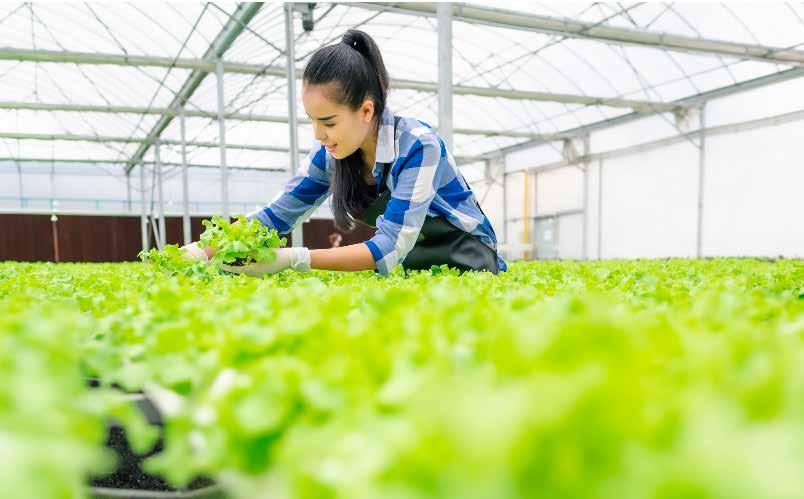

Are proud to have supported the Nuffield Farming Scholarships Trust, for over 40 years, with the sponsorship of an award, which is now awarded on a tri-annual basis.
The Studley College Trust was set up when the College closed in 1969 to encourage, assist and develop education and research in land based subjects, by financially assisting young people who wish to pursue a career in one of these areas.
For further information, please see out website: www.studleytrust.co.uk or email studleyct@btinternet.com

A constraint to the potential growth and long-term sustainability of global aquaculture in the coming decades, is the availability and sustainability of aquafeed. Aquafeed ingredients may account for up to 90% of the environmental impacts and carbon footprint of farmed fish production (Little et al., 2018). In the last few years, many UK retailers and seafood companies have set ambitious carbon emissions targets as well as having broad responsible sourcing policies which include seafood. Scottish Salmon is the UK’s largest food export and a popular domestic product (Seafish, 2021). In addition, UK consumers enjoy a range of imported farmed fish species e.g., farmed prawns, seabass and pangasius. These species rely on feed made up of a range of globally sourced ingredients which contributes to the carbon and environmental footprint of the end product.
This project aimed to explore the environmental impacts of traditional and ‘alternative’ aquafeed ingredients and identify opportunities for retailers and seafood supply chains to support more sustainable feed ingredient production and use.
As part of the Nuffield study tour, six countries were visited: Brazil, Norway, Singapore, Thailand, USA and the UK. Visits and meetings were carried out with a range of aquaculture feed stakeholders including feed ingredient producers, feed manufacturers, fish farmers, researchers, seafood processors, seafood companies and retailers; a sample also participated in in-depth interviews.
• Through the study tour, examples of aquaculture feed sustainability initiatives were observed which may mitigate some of the environmental impacts of aquaculture feed production.
• Aquafeed data collection and certification was largely focused on ‘known risks’ i.e., environmental impacts of marine ingredients and soy.
• Stakeholders suggested that feed companies are currently leading work on feed sustainability.
• Limitations to working more on feed sustainability was largely lack of information and data regarding feed production and sustainability challenges.
• Finding sustainable alternative ingredients was agreed to be the main priority for future aquafeed sustainability.
Retailers and suppliers can support more sustainable aquaculture feed through:
1. Managing risks e.g., using data and certification; responsible sourcing policies
2. Supporting improvement efforts e.g., supply chain engagement, advocacy, and investment
Although there are some existing data and certification tools available to the supply chain, supply chains should advocate for improved traceability and transparency of feed ingredients to allow better understanding of feed ingredient production and associated environmental and social risks.
An opportunity to support best practice and drive sustainability could be the creation of an independent holistic risk assessment tools focused on feed ingredients and in a format readily accessible to non-feed experts. More clear and consistent asks from aquaculture supply chains could encourage feed companies to prioritise feed sustainability when formulating feed. Collaboratively addressing responsible sourcing of aquaculture feed ingredients could support the long-term sustainability and availability of feed ingredients for the aquaculture sector.

The Richard Lawes Foundation was created as a result of the success of the businesses of Volac and Pritchitt Foods. The innovation of these companies generated profits by identifying undervalued raw materials and converting them into valuable end products using food science.
The Foundation’s trustees would like to support Nuffield scholars on a general basis.
We would be particularly interested in scholars who would like to work on a project which involves some of the following characteristics:
Market / consumer facing interest
Technical innovation
Food and health
Future sustainability
Crop technology
Entrepreneurship
Trustees have backgrounds in crop science, food processing, retail and food service marketing and general business management. We would be keen to help scholars develop their skills in any of these areas.
The Richard Lawes Foundation is delighted to support Nuffield Farming Scholars

WHY CAN’T FARMERS BE LEADERS? HOW GETTING TO KNOW YOURSELF, YOUR TEAM AND YOUR COMMUNITY CAN MAKE A FARM A GREAT PLACE TO WORK
WORSHIPFUL COMPANY OF FARMERS WITH SAVILLS
CHRIS MANLEY 2021 NUFFIELD SCHOLARWithout significantly better leadership on farms we will fail to achieve global food security, irreversibly damage our environment and lose our culture and connection with the land. The benefits of leadership have been well studied and communicated, however there has been limited focus in agriculture and food sectors by comparison.

Growing up on a livestock farm in East Devon, I learnt the value of hard work and how setbacks can be the catalyst for growth, living by the motto, “Dream it. Believe it. Achieve it.” My Nuffield journey has been an incredible opportunity to learn and give back to the farming community. I visited 12 Countries, across 4 Continents; North and South America, Africa and Europe. This was also a chance for self-reflection and to see things from another perspective, gaining a greater awareness of the diverse cultures that are shaping the world today.
I concluded that leadership is, ‘knowing yourself and others to a point where people are willingly influenced towards a common goal.’ Many leaders do not acknowledge the link between the working atmosphere of a business and its performance; financially almost a third can be attributed to this. The most impactful statement I heard on my entire journey was from RAF Air Chief Marshal Sir Michael Graydon, GCB, CBE, who believes that, ‘when you treat people as human beings that is leadership; without this it’s just management.’
I discovered how it is important to take personal leadership of a healthy body and mind to be the authentic and best version of ourselves. These are foundations for leadership without authority; the ability to influence and guide others towards a common goal or purpose without holding a formal position of power or control. This also means that knowing who you are and why you are farming gives you the awareness of the type of people that you’d like to work with. If we create an environment where farms are great places to work and have a meaningful relationship with the community, you actually increase the chances of success.
Now is the time for farmers to place leadership on the same level as technical proficiency in order to ensure a sustainable future, rather than letting others make the decisions and do the talking. The regenerative agriculture movement is an excellent example of a grass roots farming initiative that is leading positive change; let’s use this momentum to champion the culture of Agriculture.
Start today by getting to know yourself, your team and your community and build a strong relationship with each of them.

The Worshipful Company of Farmers is the City of London Livery Company dedicated to the positive promotion, better understanding, management and development of UK agriculture. Its principal charitable purpose is agricultural education, delivered through its portfolio of highly respected courses (below) and the provision of training grants, bursaries and educational awards to inspire, drive and recognise excellence.
Following the Grant of Livery in 1952 the Company has grown steadily in membership, stature and reach. Most of the Company’s 450odd Liverymen are actively involved in agriculture or the allied industries and professions. Working together, they deliver the strategic plan of the Company, whilst enjoying the fellowship and traditions of the 80th Livery Company of the City of London.
This includes a very full programme of events and activities, spanning everything from the Lord Mayor’s Show, The Annual Banquet, The Agricultural Lecture and Dinner, quarterly lunches where the emphasis is on fellowship but with the added benefit of interesting and thoughtprovoking speakers to the Lord Mayor’s Pancake Race in the Guildhall Yard.
Company teams take part in numerous InterLivery activities, including shooting, ski-ing and tennis competitions. It is a member of the InterLivery Food Group that jointly runs and promotes the annual City Food Lecture at the Guildhall, while its military affiliations demonstrate its close association with all 3 of the Services.
The Company works closely with Surrey Docks Farm, providing financial support and help ‘in kind’ to this important charity which builds awareness
and understanding of farming amongst a difficultto-reach, inner-city audience.
Our industry-leading courses include:
Advanced Course in Agricultural Business Management: A two-week, residential course designed to help delegates develop analytical techniques, management and leadership skills, as well as an understanding of the strategic issues and opportunities in their own businesses.
Challenge of Rural Leadership: This two-week residential course includes intensive discussion sessions, media training and exposure to world class speakers The aim is to develop the selfconfidence, business acumen, leadership and communication skills of the delegates.
Business Growth Programme: Designed specifically to help owner-managers, the Programme provides delegates with a unique opportunity to step back from the day-to-day demands of running their businesses to develop a comprehensive and robust strategy and a plan for the future.
Master of Business Administration: The Company supports both the one-year, full-time and the two-year, part-time MBA programmes at Cranfield.
For further details, see our website: farmerslivery.org.uk, or contact the Clerk: clerk@farmerslivery.org.uk


Half of global food production relies on synthetic fertiliser manufactured from natural gas and other natural resources. Together manure and synthetic fertilisers contribute greater CO2 equivalent greenhouse gas emissions than global aviation and shipping combined. Furthermore, inefficient use results in air and water pollution, resulting in damage to ecosystems and human health.
This study was undertaken to grasp how dairy farmers could reduce or eliminate synthetic fertiliser use, while maintaining production and stocking rates, the role of regenerative agriculture, diverse forage mixes and soil health. Research was directed at the USA, home of the term “regenerative agriculture” and northern Europe where high land prices have led to intensive family farms with maximised animal density in a climate similar to the UK.
It’s clear that the one size fits all approach will not be appropriate but solutions can be achieved by striving for a circular economy.
Farmers need to:
• Use regenerative techniques;
• Fully conserve and utilise nutrients contained in farm manures;
• Grow plants that excel at harvesting nutrients either from the air or healthy soil;
• Take regular base lines of soil nutrients through soil testing;
• Balance nutrient flows onto and off farm through nutrient accounting;
• Export and import the correct nutrients for optimum farm performance.
There is a myriad of technology currently existing or in research into organic waste processing, both on farms and at centralised locations. For example:
• Anaerobic digestion;
• Ammonia emission capture modules;
• Algae bioreactors;
• Biological additives;
• Slurry solids separation.
Use of these technologies could balance phosphorus, reduce on-farm fugitive methane and ammonia emissions, produce ammonium sulphate or ammonium nitrate, dewater slurry and return clean water to a watercourse, not forgetting green energy.
Taking ownership of agriculture’s ecological footprint is essential to remove the environmental quota that now exists. The technologies mentioned are complex and out of the capital reach of most farms. A centralised system could offer all the benefits without the cost and management of ownership, leaving farmers to concentrate on regenerative techniques. In the past, mixed farms balanced nutrients between enterprises and had a circular economy on farm. Economics has driven farms to specialise, agriculture simply needs to return to this mixed circular farm model, but on a country wide basis. Synthetic fertiliser produced greenly, and used correctly, are part of dairy farming’s future.



It’s no secret that commercial UK sheep and beef farms are hampered by high external inputs and labour costs. Coupled with declining government financial support, increased cost of production and market unknowns, there has never been a better time to reassess our animals and systems.

Winter is the most costly time of the year due to high feed requirements. This couldn’t be truer than in the Scottish Highlands and Islands. With our long, growthy summer days and longer, dark, wet winters, managing the extremes of our pasture growth curve is challenging. Having robust and resilient animals is key to meeting this challenge.
For decades we have known that good Body Condition Score (BCS) is essential in cows and ewes at key times in the year. Recommendations exist for how to condition score and what score is desired. Simplified, BCS is the physical or visual scoring of fat and muscle across the lower back of an animal.
Good BCS is directly linked with better animal health, increased fertility and reduced feed requirements. These three things alone are enough to merit some more attention on the subject.
Not all animals are created equally and some are able to both put on and hold condition more easily than others – traditionally known as ‘easy fleshing’ animals. Significant worldwide research into the genetic component of BCS puts the trait at around 23% heritability. In practical terms this means genetic gain can be made relatively easily through recording and selection.
I visited commercial and pedigree cattle and sheep producers in Canada, Australia, New Zealand, Iceland and the UK. Those who had taken on board the message of actively selecting for body condition reported a number of both production and animal welfare benefits.
BCS can obviously be manipulated by environmental nutrition and it is therefore a trait that is easily masked by preferential or excessive feeding. It was, almost universally, acknowledged by those I visited that the pedigree industry have not done enough to provide commercial farmers with bulls and rams fit for commercial environments. Though, equally, commercial farmers don’t do themselves any favours by supporting the status quo rather than demanding more from breeders. It is essential that breeding stock are subjected to some nutritional and environmental pressure if they are to identify those with the genetic ability to hold condition.
Those I visited reported that this trait became most evident during tough periods - either difficult winters or droughts. Though even in a normal season the genetic propensity to hold condition still presents plenty of opportunities, including increased stocking rates.
With this knowledge in mind and an eye on continuing research using new technology and information, it is apparent that there exists significant opportunity within the beef and sheep sectors to build herds and flocks fit for the future by prioritising body condition as part of the selection process.
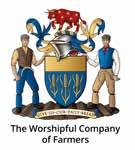
The Worshipful Company of Farmers is the City of London Livery Company dedicated to the positive promotion, better understanding, management and development of UK agriculture. Its principal charitable purpose is agricultural education, delivered through its portfolio of highly respected courses (below) and the provision of training grants, bursaries and educational awards to inspire, drive and recognise excellence.
Following the Grant of Livery in 1952 the Company has grown steadily in membership, stature and reach. Most of the Company’s 450odd Liverymen are actively involved in agriculture or the allied industries and professions. Working together, they deliver the strategic plan of the Company, whilst enjoying the fellowship and traditions of the 80th Livery Company of the City of London.
This includes a very full programme of events and activities, spanning everything from the Lord Mayor’s Show, The Annual Banquet, The Agricultural Lecture and Dinner, quarterly lunches where the emphasis is on fellowship but with the added benefit of interesting and thoughtprovoking speakers to the Lord Mayor’s Pancake Race in the Guildhall Yard.
Company teams take part in numerous InterLivery activities, including shooting, ski-ing and tennis competitions. It is a member of the InterLivery Food Group that jointly runs and promotes the annual City Food Lecture at the Guildhall, while its military affiliations demonstrate its close

association with all 3 of the Services.
The Company works closely with Surrey Docks Farm, providing financial support and help ‘in kind’ to this important charity which builds awareness and understanding of farming amongst a difficultto-reach, inner-city audience.
Our industry-leading courses include:
Advanced Course in Agricultural Business Management: A two-week, residential course designed to help delegates develop analytical techniques, management and leadership skills, as well as an understanding of the strategic issues and opportunities in their own businesses.
Challenge of Rural Leadership: This two-week residential course includes intensive discussion sessions, media training and exposure to world class speakers The aim is to develop the selfconfidence, business acumen, leadership and communication skills of the delegates.
Business Growth Programme: Designed specifically to help owner-managers, the Programme provides delegates with a unique opportunity to step back from the day-to-day demands of running their businesses to develop a comprehensive and robust strategy and a plan for the future.
Master of Business Administration: The Company supports both the one-year, full-time and the two-year, part-time MBA programmes at Cranfield.
For further details, see our website: farmerslivery.org.uk, or contact the Clerk: clerk@farmerslivery.org.uk


As the global population increases, the demand for meat and animal products is growing, leading to a greater need for protein in both human and animal diets. Soya is a key solution for the growing global protein demand but the entire process of cultivating, processing, and transporting soya-based feed contributes to significant carbon emissions. Edible insects offer an alternative protein source suitable for both humans and animals. Insects require less space, water, and emit fewer greenhouse gases.
My Nuffield study tackles the central question: “Can we profitably farm carbon-neutral insects?”
My research journey has revealed that producing insects for food and feed is constrained by limitations in scale, high costs, and inconsistent quality. Improvements like automation, enhanced insect genetics, and optimized diets are crucial for advancing insect farming. Understanding insect diseases and pests is also vital.
After exploring various farms globally, I’ve found that carbon-neutral insect farming is possible when waste unsuitable for animal consumption becomes insect food. However, using valuable resources intended for animals or humans for insect farming is inefficient and costly. Many insect farms use soya-based livestock feed as a substrate for insects, which contradicts the goal of reducing soya in animal feed. Utilizing livestock manure as insect food could be a strategic alternative, subject to careful risk assessment. Blending waste as a substrate for insects and integrating renewable energy can establish carbon-neutral insect farming as a viable option.
In the UK, supermarkets and feed producers alike are exploring soy alternatives in livestock diets. Both feed mills and livestock producers seek consistent, sustainable ingredients without soya. Currently, soya costs approximately £350 per tonne. For insect ingredients to compete, offering comparable protein content as soya (50%) at around £350 per tonne is crucial. However, insect meal’s present price hovers around £3500 per tonne. The cost price of insect products is the key barrier to success.
Prominent companies like AgriProtein, Enterra, and Ÿnsect have encountered profitability challenges or closures despite substantial investments. With rising living costs and changing spending patterns, the demand for costly and unfamiliar insect-based foods and feeds might stay limited.
In conclusion, Africa offers significant prospects for insect farming, serving as animal feed and human food sources. Overcoming challenges through ongoing research and innovation could position insect farming as a pivotal player in constructing sustainable and nutritious food systems.
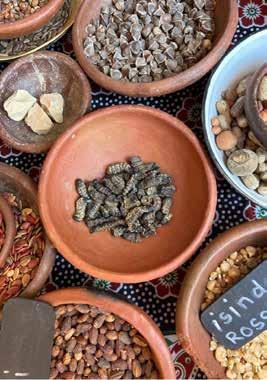
The Richard Lawes Foundation was created as a result of the success of the businesses of Volac and Pritchitt Foods. The innovation of these companies generated profits by identifying undervalued raw materials and converting them into valuable end products using food science.
The Foundation’s trustees would like to support Nuffield scholars on a general basis.
We would be particularly interested in scholars who would like to work on a project which involves some of the following characteristics:
Market / consumer facing interest
Technical innovation
Food and health
Future sustainability
Crop technology
Entrepreneurship
Trustees have backgrounds in crop science, food processing, retail and food service marketing and general business management. We would be keen to help scholars develop their skills in any of these areas.
The Richard Lawes Foundation is delighted to support Nuffield Farming Scholars

This report looks at living the farming ladder, and it is biased toward first generation farmers because this is me! However, I hope it will be useful for all generations of farmers and help them to build more sustainable businesses.

The farming ladder must be more in line with a business lifespan bell curve, and businesses in the UK farming industry must run and be profitable like any other. For farmers, there is so much passion and emotion tied up in the business, which is a brilliant asset and strength, but this mustn’t cloud any financial decisions.
As a child I was envious of the farmers’ sons and daughters who could start with an established business. However, it very soon became apparent that the first generation farmer (who in many cases is an entrepreneur) is actually the one with a massive advantage because they can act and make decisions like a more typical business owner. They aren’t tied to one location, so they can more easily take advantage of opportunities, not just in the UK but also worldwide, which are becoming more and more accessible through global networking and the internet.
Because so many businesses stagnate or become nonviable at maturity, I wanted to explore a blueprint for a long-term sustainable
business that future generations could use to grow their passion. I travelled to Scotland, Netherlands, Italy, Zimbabwe, Denver (USA), Australia, France, and the UK, meeting with first generation farmers as well as a diverse group of agricultural and non-agricultural businesses. We discussed a variety of what were sometimes emotional topics - with conversations quite often going into the early hours of the morningand common attributes within these businesses became clear:
• As with everything in life it comes back to people and building strong business relationships and reputations within the industry.
• Marketing is essential and in other businesses, the number one priority is to know your market. This somehow isn’t on a farm’s radar, nor is it in many agricultural curriculums.
• Access to capital can be a major stumbling block, but we are seeing ‘green shoots’ of wider availability through banks like “Oxbury” and “Funding Circle”.
• Before climbing any farming ladder, farmers must spend time reviewing their personal and business goals and aspirations in life writing these down is non-negotiable. They can be adjusted once growth takes place, but you must have a plan. This will help with the physical side, but also and probably more importantly the mental side. Behind any success there has been exceptionally hard work in the early stages before exponential growth occurs.

An opportunity to develop your knowledge of the dairy industry, generate new ideas and share your findings.
The Trehane Trust offers annual awards, through participation in the Nuffield Farming Scholarship programme, to individuals who want to study and research a particular aspect of the dairy industry.
The remit is broad. Applicants are invited to study areas from milk production to processing and product development. It covers all related areas such as health and environmental concerns, consumer trends and marketing, and policies affecting the dairy chain.
More than 80 Scholars have benefited from Trehane scholarships. Their studies, which have been of great benefit to the individual and to the industry, have taken them across the world to North and South America, Japan, New Zealand, Australia, Europe and Scandinavia.
Each Trehane Scholar is provided with travel and subsistence costs for eight weeks – undertaken in one block or as smaller blocks.
The closing date for applications is 31 July each year.
Successful candidates will normally be aged between 24 and 45 and living in the UK.
More information on the Trehane awards is available from Diana Allen, Trust Chair on 07971 119128 or diana@qnm.ltd.uk
Previous reports and application forms can be downloaded from the Nuffield website www.nuffieldscholar.org





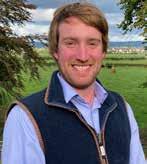
Dairy farms are having more issues than ever sourcing labour. The biggest issue observed in my travels was attracting milking technicians into the industry. As the UK moves more towards the US model of fewer farms of a greater size, this problem is only going to be exacerbated here in the UK.
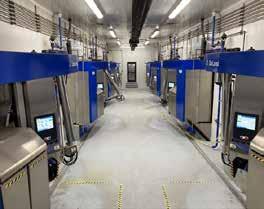
The aims of this study were threefold:
1. Is robotics a viable option for large dairy farms?
2. Are they a financially viable option?
3. If so, what is best practice when designing layouts and utilising robotics?
During my study I visited the USA, Canada, Chile, Argentina, the Netherlands, and Germany. All countries are either at the forefront of robotics or major players in large scale dairying.
Operating box stall robots result in an increase in milk yield of between 3% and 10%, depending on the previous system. Evidence from these farms shows a reduction in replacement rate of up to 5%. Both these efficiency savings combined with a labour saving of up to 40% on large farms result in a net financial gain after robotic implementation.
Many different layouts and configurations exist for box stall robots. The most efficient system
observed on my travels was a “milk first” guided traffic system. Where cows are “guided” around the system by the removal and presentation of certain inputs at certain times. These systems appear to result in lower pellet usage within the robot, a lower rate of fetch cows and allow a greater number of cows per robot due to preselection of certain cows.
Robot depreciation has in the past been a factor in the lack of uptake of the technology. However, there is a strong second-hand market for robots and diverse ways of financing exist to keep costs under control. Maintenance and servicing are key to extending the life of robots, with many reported as exceeding 10 years in operation. Other robotic technologies such as feed pushers and manure collectors are more difficult to financially justify. They also still struggle to handle sand laden manure which is often present on large dairy farms. Fully robotic rotary development appears to have stalled, with a greater emphasis now on utilising robotic arms on conventional rotary parlours.
The conclusions I have drawn from my study are that utilising robotics on a large scale is financially viable due to an increase in milk yield, a decrease in staffing costs and a reduction in replacement rate. To ensure optimal functionality, the equipment must be maintained and serviced to a high standard. Farmers should be thinking as to how robots will integrate into their businesses in the future, even if they do not plan to use them initially.
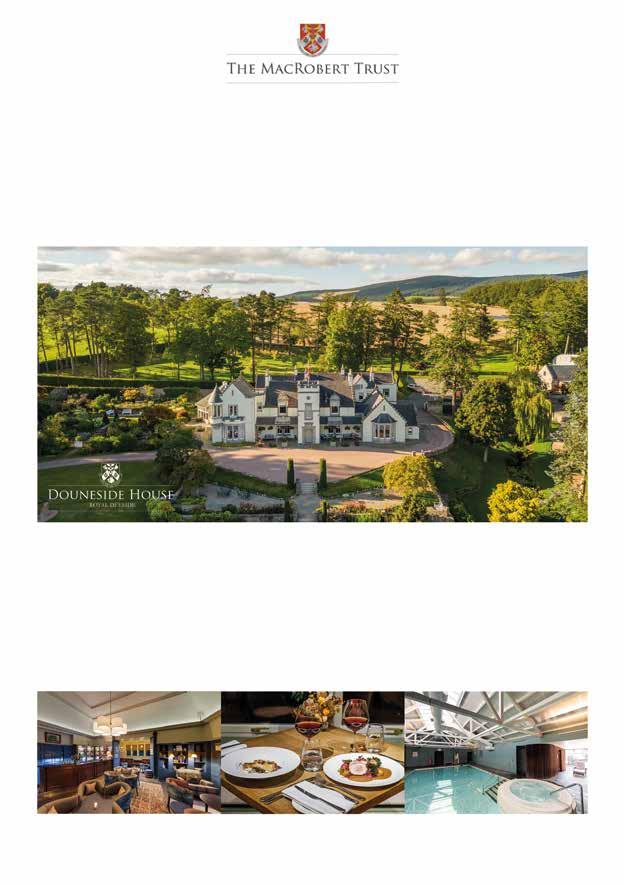

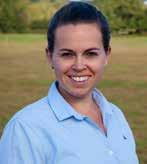
At a time when the livestock industry is under huge pressure to be sustainable and efficient, preventing disease is of critical importance to ensure that cattle are as healthy and productive as possible.
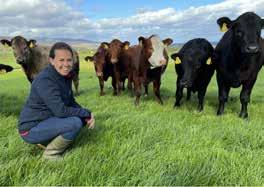
There are a wide variety of cattle health schemes used to prevent, control and eradicate disease in beef and dairy operations, which have been applied with varying degrees of success. The UK is no exception; there are many different schemes and yet several preventable cattle diseases and health conditions remain endemic. This study was undertaken to explore cattle health schemes in different countries and in different livestock systems. It aims to identify the key ingredients which underpin success and could be applied to the UK situation.
Well-established cattle health schemes exist in several European countries. However, they cannot be relied upon as the only means by which to determine herd health status. Success in controlling livestock health has also been achieved where formal programmes are lacking. A cohesive strategy involving regulation is required in order to achieve disease control nationally but good states of health and welfare can be achieved at a farm level in the absence of wider support. Ensuring that the basics of animal health are met – suitable environment,
adequate nutrition and preventative measures –are fundamental in reducing the impact of cattle disease.
Controlling disease is only one of many pressures faced by the livestock industry. An understanding of the bigger picture can help to implement holistic solutions, integrating animal health as part of a wider system. Frameworks can help to provide a roadmap for controlling disease but an adaptive, flexible process will help to facilitate successful outcomes; ‘one size’ does not always ‘fit all’ and excessive bureaucracy can be counter-productive. Regular communication can help to expedite success and collaboration is aided where partnerships exist. This is more readily achieved in smaller, more consolidated cattle industries, so collaboration towards shared goals is even more essential for the UK.
The use of data and technology are creating solutions for animal health at a rapid pace and cattle health schemes will need to evolve to reflect this. They provide excellent opportunities to both improve and demonstrate improvements to cattle health, building transparency and trust in protein production which is needed for farming’s social licence.
We are privileged to have the resources and expertise to implement cattle health schemes in the UK, and to reap the benefits. The ingredients for success are available to us, but we cannot rest on our laurels. A concerted effort is needed to push forward in implementing robust, successful cattle health schemes as a key strategic driver for producing some of the world’s best cattle health and welfare.
THE TRUSTEES ARE PLEASED TO SUPPORT THE NUFFIELD FARMING SCHOLARSHIP TRUST
THE TRUSTEES ARE PLEASED TO SUPPORT THE NUFFIELD FARMING SCHOLARSHIP TRUST
THE TRUST HAS SUPPORTED FIFTEEN SCHOLARS RECENTLY FROM ITS REGION OF
THE TRUST HAS SUPPORTED THIRTEEN SCHOLARS RECENTLY FROM ITS REGION OF GLOUCESTERSHIRE,
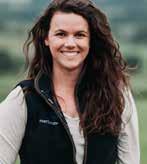
The UK farming industry is experiencing increased scrutiny from the general public, who are growing more concerned about issues such as animal welfare and the environmental impact of agricultural activity. The British public generally trust farmers, see them as experts and believe they care about their animals and the environment. However, a growing number of consumers are seeking food products that align with their values and want more information about how their food is raised.
Transparency is needed across sectors and systems, especially in intensive systems that are less understood and more likely to face criticism. Numerous voices in the UK have called for improved transparency at farm level. However, it is understandable that some may be hesitant to open their gates to the public out of fear or lack of resources. Nevertheless, if the gates stay firmly shut, the animal agriculture industry risks appearing secretive. And if the industry stays quiet when faced with tough questions, others will gladly fill the void with their own narratives.
Livestock agriculture is at serious risk of losing its ‘social license to operate’. The trust that most of the public have in the industry to produce food ethically is not guaranteed long-term. There are some standard practices (like cowcalf separation) that are seen by some as an inevitable threat to this. Gone are the days of guaranteed markets – shoppers now have (at least what they see as) equivalent alternatives to meat, dairy and fibre, and there’s a good chance that these will continue to improve in quality and become more accessible in the future.
This report is an overview of my learnings from dozens of visits, hours of conversation and several thousand miles of travel as I met with a diverse group of researchers, industry groups, communications and marketing experts, journalists, entrepreneurs and, of course, farmers. A few common threads emerged among people and organisations who have taken steps to open up to the public in one way or another:
1. Dedication to authenticity and honesty by showing the “warts and all” of food production or undertaking a philosophy of “Radical Openness”.
2. Devoting resources to understanding and listening to the public, developing longterm strategy, measuring trust and other outcomes, and meeting targeted audiences where they already are.
3. A commitment to sharing values, not facts, when engaging with audiences and abandoning the idea that we must ‘educate the public’.
4. The value of (and need for) wider industry support of and investment in those willing to engage.
It is imperative that all of British agriculture – not just livestock farmers - embrace these principles as a first step toward protecting our social license to operate. If done effectively and authentically, we can add value to British produce and ensure that our industry can evolve in step with society, securing its future for generations to come.

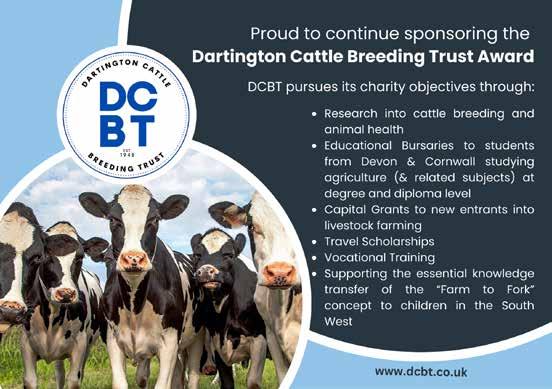

Our experts track and analyse the attitudes and behaviours of consumers towards food and farming, helping the entire supply chain create a world-leading domestic and international food industry.
This also helps us to bring more value to your levy when protecting and promoting the world-class production standards of British farming and its products across issues that matter most to consumers.
To find out more, visit ahdb.org.uk/retail-and-consumer-insight
The reputation of food and farming is centred around:
• Animal health and welfare
• Environmental impact
• Human health and nutrition

It’s never been more important for beef cattle systems to be able to demonstrate that they can be environmentally sustainable, high welfare, productive parts of the food supply chain. Greater awareness of the environmental challenges that society faces has lead to a surge in environmentally/regeneratively focused farming systems. “Grass-fed” Beef production is a big part of this movement in agriculture and we will need the right cattle genetics for these systems to thrive.
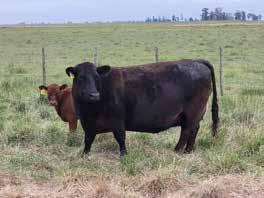
This report will outline the issues we face in suckler cow (Cow-Calf) production systems and what we need from our cattle in order for these businesses to be economically and environmentally sustainable. Many of the selection methods that are used in the industry are based around grain fed production systems and so it is important to assess if they are appropriate for production systems that don’t rely on high energy feed.
However, it is not clear that conventional selection methods are serving the wider industry let alone “Grass-fed” producers. Despite many years of selection for performance in beef systems the profitability of suckler cow (cow calf) operations in the UK and wider world is decreasing and in many cases non existent. The national UK suckler cow herd is decreasing in number. The number of cesareans is increasing and the national average calving interval is 420 days and rising when we should be aiming
for 365 days. Average weaning weight has not increased in 30 years in the USA, despite selection for growth over that time. It seems that outside the confines of the feed efficiency trials and the Pedigree Bull sales the selection methods being applied are not working for the everyday farmer.
Visiting cattle producers selecting for profitability and sustainability in Argentina, Uruguay, Uganda, Scotland, Wales and England and talking to ranchers in Canada and the United States of America it is clear that there are many ways to select for performance outside the currently favoured approaches. There is significant potential to take on some of these methods to improve the performance and profitability of cattle in grass-fed systems. There is no doubt that many of these selection methods are effective at changing cattle towards the goals that are selected for. In fact, it may be that the selection methods are not the problem after all.
By looking in detail at how we select cattle it is easy to miss the big picture. This report will explore how WHAT we select for can be far more important than how we select for it. A more holistic approach to selection goals that includes economic, social, environmental and welfare considerations will lead to cattle that work better for the environment, for profitability of family farms and the welfare of the animals themselves. Essentially, selecting cattle fit for purpose in the 21st Century.

The Worshipful Company of Butchers has been associated with the meat trade for over 1000 years and is pleased that currently over 90 percent of its members have some connection with the industry. The three great tenets of the Company are charity, education and fellowship.
The Worshipful Company of Butchers has been associated with the meat trade for over 1000 years and is pleased that currently over 90 percent of its members have some connection with the industry. The three great tenets of the Company are charity, education and fellowship.
The Company is an active sponsor of Nuffield Scholars and enjoys a good relationship with the Trust
The Company is an active sponsor of Nuffield Scholars and enjoys a good relationship with the Trust
For further information, please contact:
For further information, please contact:
Major General Jeff Mason
Major General Jeff Mason
Worshipful Company of Butchers
Worshipful Company of Butchers
Butchers’ Hall
Butchers’ Hall
87 Bartholomew Close
London EC1A 7EB
87 Bartholomew Close
London EC1A 7EB
Tel: 0203 931 8350
Email: clerk@butchershall.com
Tel: 0203 931 8350
Email: clerk@butchershall.com
The Hall is also available to book for events - please email 87bartsclose@bovingdons.co.uk or telephone 0203 478 9440 for enquiries.
The Hall is also available to book for events - please email butchershall@lifeskitchen.com or telephone 0207 248 1163 for enquiries.

Farmers face increasing challenges, including rising costs, climate change and growing environmental regulations. Clearly, agriculture requires change, especially for farmers inside environmentally sensitive catchments. Is carbon farming the answer, and if so, how do we incentivise it?
The emerging soil carbon market (SCM) has generated much enthusiasm. Companies pay farmers to adopt practices that remove atmospheric carbon into the soil (carbon farming), offsetting the company’s emissions. On one hand it seems like a win-win- increasing soil carbon could help farmers cope with future challenges by improving farm productivity, environmental performance and climate resilience while mitigating emissions. On the other hand, it seems fraught with challenges around greenwash, with people often calling it the ‘wild west’. Several projects in Europe and North America provided hope these challenges could be addressed. I investigated how by interviewing a range of stakeholders involved in these overseas projects.
In reality, these projects weren’t really addressing these challenges and exhibited issues regarding additionality and permanence. Most farmers had adopted all or most of the accredited carbon farming practices in the past, rather than adopting new practices, indicating minimal additional carbon storage. Substantially higher carbon pricing is likely needed to drive material change. Otherwise, companies gain credit for farmers’ existing actions - a form of greenwashing that farmers risk getting embroiled in.
So, can you farm carbon? Yes, adopting carbon farming practices could demonstrably boosts soil carbon with myriad benefits. But the scale of its potential climate impact remains debated. Therefore, climate change mitigation is currently best seen as a potential co-benefit, not the
primary focus of carbon farming. Do SCMs hold the key to unlocking widescale adoption of carbon farming and associated advantages?
SCMs are nascent, they may play a modest future role if integrity and carbon pricing improve. Currently though, risks seem to outweigh opportunities for farmers. However, risks can be mitigated by pursuing non-offset carbon markets like insetting, which have fewer restrictions.
In summary, SMCs are not the panacea I once thought for agricultural transformation. But they may contribute future solutions alongside regulation, policy, and innovation (regenprenurship). Sustainable farming requires diverse solutions and co-ordinated efforts.

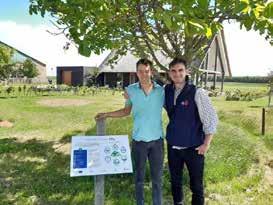
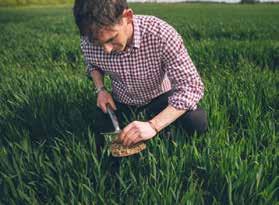


Soil carbon markets… silver bullet or red herring?
Generously supported by my sponsor the John Oldacre Foundation, I’ve been lucky enough to travel around Europe, the US and Canada to assess the potential of soil carbon markets to incentivise the adoption of carbon farming.
This is a hot topic in the industry. I’ve engaged with stakeholders involved in soil carbon markets (farmers, academics, brokers, market & policy experts, advocates and sceptics) to understand the risks and opportunities for farmers, and how the current challenges of soil carbon markets are being overcome.
Thank you once again for the generous support of the John Oldacre Foundation

Carbon footprints are presented within the contemporary media, commercial entities and frequently by government agencies as a proximate measure for sustainability.
Footprints are based on the science of Life Cycle Analysis (LCA), a footprint seeks to convey information about a specific environmental criteria, in a simple form, accessible to the public and non-technical stakeholders.
In the dairy sector, due to highly complex biological production systems, multiple outputs, use of coproducts and relatively abstract components such as indirect land use change, there is significant opportunity for methodological divergence when calculating carbon footprints of milk.
Layered on top of this are debates around accounting for soil carbon sequestration, the application of carbon offsetting as well as the carbon equivalence of short-lived greenhouse gasses.
Fundamentally carbon footprints represent a metric of efficiency, describing the ‘carbon input’ required to produce a standardised unit of output.
Pertaining to the dairy sector, the key factor above all others that drives the carbon footprint of milk is feed efficiency. Given this, it is unsurprising that the correlation between the carbon footprint and profitability is strong.
High output, confinement dairy systems almost without exception feed higher levels of concentrate to cows making the ration more digestible and leading to higher milk output. Generally, this results in a lower carbon footprint per litre of milk when compared to more extensive grazing systems.
When asked to define sustainability within the dairy sector, expert stakeholders, largely converged of a set of overarching themes that should characterise a resilient and sustainable dairy sector.
These themes describe a self-perpetuating industry, that can continue in perpetuity, without eroding the natural or social capital upon which the industry, and wider communities, depend upon to function.
Natural capital has been described and defined as encompassing soil health, clean water and biodiversity. Livestock systems can play an integral role in restoring and maintaining natural capital, but what is perceived as the highly intensive nature of dairy farming frequently presents barriers to this and presents risk of environmental damage.
Excessive nutrient surpluses generated by high intensity farming, present an elevated risk of eutrophication, water pollution and biodiversity loss. Driven by the pursuit of efficiency, agriculture has seen a seismic and ever accelerating shift towards larger, higher yielding, more specialised farming systems with greater dependency on non-renewable resources, purchased inputs and capital assets.
Through capital interest, depreciation and asset costs these systems carry increasing levels of fixed costs, driving the necessity to maximise output even at very low marginal profitability and frequently at very low marginal efficiency.
In a world with growing demand for food, but with limited land and resources, it is imperative that the productivity of existing farmland is maximised. However, this must be done in a way that preserves the integrity of the land for future generations.
The use of metrics that incentivise the trading of nutrient efficiency for carbon efficiency while increasing the risk of environmental damage and drive dependency upon arable output, is of limited value.
Defining Sustainability is a question almost rhetorical in nature. It pertains to an almost spiritual relationship between people, animals and the land, unique to each locality, born of the climate, the geography and the culture. Where local tradition and religion once set the boundaries for these relationships, global institutions grapple with the granularity of these issues.
With respect to Agriculture, the use of carbon foot printing as a primary gauge of sustainability, has profound limitations.
While efficiency and sustainability may not be concepts diametrically opposed, the two should not be conflated.

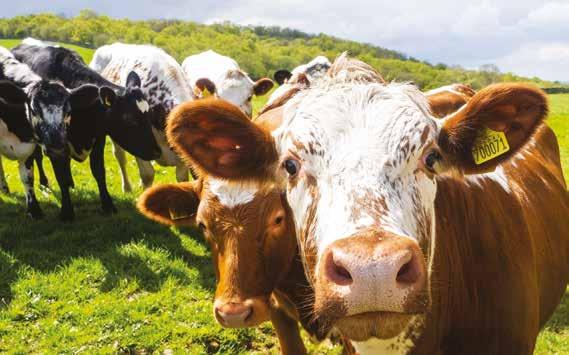

Historically, many sheep and beef graziers in the UK have used set-stocking as their primary grazing strategy, often to good effect. However there are a multitude of grazing systems, each which offer pros and cons depending on operational objectives. One of these grazing strategies is mob grazing.
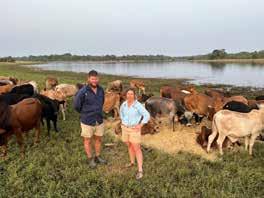
Non-selective, ultra-high intensity livestock grazing - also defined as mob grazing - creates a disturbance event to promote soil health, kickstart biological change and can offer substantial improvements in overall animal health and overall biodiversity.
This method of grazing involves grazing a large concentration of livestock on a very small area for a short period of time, often using electric fencing to mimic pray/predator behaviour. Each parcel of land is often grazed only two or three times a year, allowing for long rest and recovery periods. These long rest periods allow forages to become mature before grazing rather than being grazed in their vegetative state. This allows for root reserves to build and solar energy to be transferred through photosynthesis into the ground, in turn building energy reserves and improving overall soil health.
High-intensity grazing forces animals to nonselectively graze, eating all species available rather than concentrating on the lusher, sugar-
rich options. Anything left over is trampled and, alongside the organic matter being expelled by the grazed animals, this leads to increased nutrients and dry matter being introduced back into the soil, improving soil aggregation and improving factors like water holding capacity as well as allowing soil fauna to flourish.
While champions of mob grazing would confidently state this method increases soil organic matter, reduces weeds and improves overall animal health, shifting to this method often demands more labour, a shift in infrastructure requirements such as water and fencing and challenges when it comes to finishing certain species. It can, in some cases, present challenges on how to finish some animals solely off grass due to grazing mixed quality forages rather than when they are in their vegetative state, in particular lambs.
Multi-species mob grazing works on the premise that each livestock species utilise different types of forage accordingly. Cattle, for example, cope well with long grass grazing, whilst sheep prefer shorter species. Goats on the other hand are browsers and like more shrubby species. However, running these species together as one herd creates challenges in terms of infrastructure requirements.
It is obvious that there are clear benefits to mob-grazing for animals, the soil and the wider ecological environment. However, it is very context specific as to the goals of each operation to what extent it can be used on every farm for every species.

Elizabeth Creak was born in Slough in 1926. She attended McGill University in Canada before working for Allen Lane at Penguin Books in both the UK and latterly America, where she helped to establish their new venture. She returned to the UK to eventually work with her uncle, Clyde Higgs, who by then had built up a thriving two thousand acre dairy farm in Warwickshire. Prior to this, Clyde had also developed a four thousand acre farm in the foothills of Mount Kilamanjaro and held a number of other positions including: Managing Director of English Farms in Wiltshire; Agricultural correspondent of the BBC and Council Member of the Royal Agricultural Society. Clyde was a highly innovative and enterprising farmer who was well known for challenging the status quo and cross-fertilizing best practices among farmers in the UK and around the world. His practical approach and constant quest for efficiency, gained at the family’s electric motor business, helped him to significantly increase output across his farms. He clearly recognized a similar passion and ability in Elizabeth and mentored her to become his successor.
In 1963 Elizabeth inherited Clyde’s farm in Warwickshire and ran it with great success for a number of years. She was a highly capable and well respected farmer and brought many creative ideas to the world of farming. She eventually sold the bulk of the business, but maintained a substantial acreage around Stratford. Elizabeth’s business acumen, determination and integrity were the reasons she was invited on to the boards of many local charitable organizations including the Royal Agricultural Society, the Stoneleigh Abbey Trust and the Stratford Society. She was the first female chairman of the Warwickshire branch of the NFU and in 1998 she became the first woman to hold the office of High Sheriff of Warwickshire. She was also a keen supporter of local craftsmen, artists and the theatre.
Elizabeth passed away in October 2013 and left the bulk of her estate to the Elizabeth Creak Charitable Trust. Elizabeth created the Trust to provide ‘Clyde Higgs Scholarships’ in agriculture; support and encourage new blood in farming and finance projects to help farmers survive and ultimately thrive in their challenging modern environment.

Potatoes are the third most important food crop globally. Grower numbers are dwindling in the UK and cropped area is down nearly 30% since 2017. As farmers become more conscious of their soil health, potatoes are often the first crop dropped from their rotation. Rising input costs and extreme weather events are also hampering the UK potato sector with poor returns being common in recent years on many farms. These problems are only going to be reduced, if a clear way forward can be shown that potatoes don’t have to be the adversary of a farmer looking after their soil.
This study was carried out to establish how growers are implementing regenerative principles into the cultivation of potatoes, explore how these principles can be applied to UK soils and climate and to create a plan for potato growers to reduce artificial inputs whilst still growing high yielding crops.
To do this I travelled to farms displaying the most innovative systems focused on regenerating soil in Canada, the USA, Australia, New Zealand and then Belgium and France, countries with a maritime climate much like our own.
Growing high yielding crops whilst improving soil health can be done in many ways. However, the most successful farms all tend to follow the five principles of regenerative agriculture: minimise soil disturbance, diversity through the rotation, keeping the soil surface covered, maintain living roots and integrating livestock. Despite some of these principles not lending themselves to potato production as a stand-alone principle, when carried out in unison great results can be achieved. Increasing numbers of arable farmers are seeing the benefits of following regenerative principles and potato growers will do the same, if they apply the same within the context of their potato enterprise.
Simple actions such as a well-established cover crop in place of fallow ground and reduced cultivations throughout the crop rotation will leads to improved soil structure, thus subsequently reducing cultivation needs for the potato crop. Introduction of livestock and a more diverse rotation will enhance the health of soil further by giving soil biology the ingredients it needs to thrive. Long term commitment to such strategies can then lead to great reductions in fertiliser and pesticide use can be seen. Not only will soils begin to function better, but they will also rebound better from the major disturbance events of establishment and harvest of the potato crop.
In conclusion, this report demonstrates the viability of main crop potatoes being grown in a regenerative system. By integrating regenerative principles such as minimal soil disturbance and maintaining living roots multiple benefits can be achieved and thus improved soil health and greater soil and crop resilience. While challenges during the transition to a regenerative system will be encountered, the long term benefits on both soil and farming profit margins can be substantial.
The Alan and Anne Beckett Award is for an entrepreneur or innovator who is a hands-on operator in the agricultural, horticultural or allied rural industries. It is a privately-funded UK Nuffield Farming Scholarship which has been running since 1996. Today the Beckett Scholars are collectively active in virtually every field in the wider agricultural scene with several diversified enterprises thrown in for good measure.

Alan himself was awarded a Nuffield Scholarship in 1957 and Anne was made an Hon. Scholar in 2007


Farmers are more focused and incentivised to improve soil health than ever before; cover cropping is far more common now than 20 years ago; It’s pertinent to look at the practicalities of this and explore what wider opportunities arise as a result.

The public and private sectors are looking at farmers to sequester carbon in soils and reduce agricultural emissions in the climate battle. At the same time, farmers face ever more challenging growing conditions with more erratic weather patterns, simultaneously navigating unstable commodity prices and high agricultural inflation. By improving the function of the soil, farmers can help build resilience against these challenges while creating wider farm business opportunities which can add diverse income streams and generate employment opportunities.
Cover crops are the keystone to the biological, chemical, and physical function of the soil; a living root will physically structure, biologically feed, and chemically alter the soil around it. Cover crops form part of a more extensive system of soil health which farmers must look at in the context of their own soils and climate. Understanding the carbon and nitrogen cycles in the soil will help farmers manage their cover crops, residues, and inputs. While helping increase the soil’s organic matter and associated benefits.
To succeed in the adoption of cover cropping, farmers need to set clear, achievable objectives. These objectives will help when considering the cover crop’s functionality, diversity, and density. The function will inform the species selection, establishment, management, termination, and following crop performance. Cover crop diversity will provide a plethora of above and below-ground residue that will feed a multitude of microbes and help cycle soil nutrients. Plant density will influence the function in several ways, from weed suppression and water management to CO₂ cycling.
Cover crops provide the opportunity to not only add cover but layer the soil with new enterprises and diverse income streams—improving not only public engagement but farm business resilience. All of this should be viewed in the context of a farmer’s own soil, climate, and business, as this will vary significantly, and what works for someone might not always be the solution for all.








We source from over 23,000 British & Irish farmers and we’re investing millions to help set farms up for a more sustainable future.


A little change that will have a positive impact on British and Irish farming.





















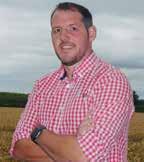
UK agriculture is at the forefront of one of the biggest global challenges in meeting Net Zero by 2050. Net Zero is a state in which greenhouse gases being emitted into the atmosphere are offset by removal out of the atmosphere. UK agriculture is responsible for an estimated 45 million tonnes of carbon dioxide equivalence per annum, which equates to 10% of total UK greenhouse gas emissions. Agriculture is however well placed as an industry to offset emissions through sequestering carbon in soils, in the form of organic matter. With climate change impacts being felt in the form of extreme weather patterns, the other aspect to consider is ensuring UK farms are resilient, both financially and environmentally. Does regenerative farming provide a solution for UK farmers to meet Net Zero, whilst remaining profitable, enhancing the local environment and feeding a growing population?
This study was undertaken to identify the main contributing factors of greenhouse gas emissions in UK agriculture and find solutions to mitigate their impact. One of the concerns for UK agriculture is that heavy polluting industries see the sequestration potential of farms as a tool they can utilise on their own path to Net Zero. This includes the purchase of prime agricultural land for planting trees, renewable energy generation, such as solar and for purchasing carbon credits from farmers. For productive agriculture to remain on UK shores, whilst meeting Net Zero, this study focused on regenerative farming as a system to sequester carbon in the form of soil organic matter, whilst reducing emissions associated with arable production.
The initial area of interest was the USA and Canada to visit broadacre cropping farms that have been practicing regenerative farming techniques such as no-till establishment and cover cropping for decades. This was an important factor to evaluate the long-term effects of regenerative practices and learn from their experience, both positive and negative. The focus then shifted to regenerative practices in France and Scandinavia to ensure relevance to the UK in terms of soil types, cropping and climatic conditions. The outcome in visiting
these countries was to gain an understanding of the innovative practices that can be implemented on UK farms to meet Net Zero in a holistic manner.
Meeting Net Zero won’t be achieved via a single solution or idea but through incremental gains and an industry wide effort. For farmers, it’s important to understand a carbon balance on their individual business, to give clarity and direction for changes to be implemented. When fully integrated into a system-based approach, regenerative agriculture offers methods of mitigating these emissions on a path to Net Zero. When setting Net Zero as a target for a business, we should not lose sight of other considerations, including environmental, economic and social benefits.









We source from over 23,000 British & Irish farmers and we’re investing millions to help set farms up for a more sustainable future.


A little change that will have a positive impact on British and Irish farming.






















The growth of poultry production within the agricultural industry has led to large amounts of manure being produced. The problem now arising is how best to dispose of the product effectively reducing its impact on the environment, this being the focus of this report.
Industry environmental pressure is ever increasing leading to increased legislations being created. This in turn creates a response that drives innovation to find solutions. These Legislations also outline best practices with certain management techniques for example, closed periods of time the manure can be spread on the land as well as reduced application rates and the location of a heap.
This study was undertaken to see what other opportunities were available. The utilisation of poultry manure as a biproduct and the need to develop methods best suited to the industry requirement. Poultry manure is a valuable resource, not only as a nutrient rich organic fertiliser but it can also be used as a fuel source in energy production.
Proven concepts are now becoming more common for using the manure for energy production either through a litter burner or used in an anaerobic digester. There are new technologies also in development that could offer further opportunities, such as small-scale anaerobic digestion plants with further nutrient stripping technology and composters that use a bio catalyst to speed up the composting process.
In my study I looked at a range of alternative solutions for handling and processing poultry manure offering possible solutions to which could not only add value to a business but reduce the need for heaps of manure within fields and relieve the pressure of water and soil contamination.
I visited countries where I had sourced possible solutions and novel ideas. These ranged from drying, pelleting composting and litter burning and anaerobic digestion. These methods all require different levels of investment as well as rewards. Many of these technologies can carry a large capital investment, this may be uneconomical for a small-scale producer, so I wanted to find a scalable solution.
In summary there are many challenges and opportunities available to handling poultry manure. I have seen innovation used across different businesses each with a different requirement. There is no one solution. Some of these technologies would require a skillset that may not suit all poultry producers. This would influence their decision on which direction to undertake to benefit their business.
In my report I wanted to identify a solution to benefit the poultry industry not only in my own home business but to share my findings and summary from my own study.
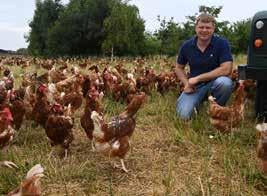
The British Egg Marketing Board (BEMB) Research & Education Trust was formed in 1971 from the residual funds of the former British Egg Marketing Board. Its remit was the “improvement and advancement of that branch of agriculture which is concerned with the production of hen or duck eggs in the United Kingdom…”
The Trustees have furthered those objectives by sponsoring PhD Students, supporting other appropriate scientific research work and, in particular, funding a Nuffield Scholar almost each year since 1974 to study a subject related to egg production or marketing.
These same Scholars have formed themselves into the Nuffield Poultry Group and it is estimated that more than 80% of the poultry industry of the UK is represented within its ranks. The Group itself meets at least three times a year and organises its own study tours in different parts of the world for its Scholar members.
The BEMB Trustees consider the financing of Nuffield Farming Scholarships an excellent use of funds and would encourage UK egg industry potential Scholars to take up this unique opportunity.
For more information about the BEMB Research & Education Trust email alibone@bembtrust.org.uk or go to www.bembtrust.org.uk
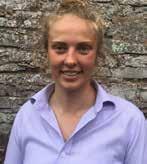
RWAS & WORSHIPFUL COMPANY OF FARMERS & SAVILLS
Endoparasites have co-evolved with sheep but modern, intensive management techniques have increased their negative impact on productivity. Anthelmintics have been historically over-used, resulting in our current problems. The situation is concerning because anthelmintic resistance has the potential to stop sheep farming in the UK; however there are management changes that can be made to not only prevent anthelmintic resistance, but even reverse it.
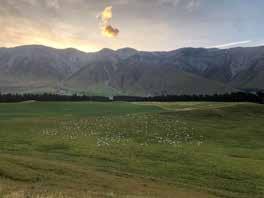
Across the globe farmers and researchers are employing different ways to tackle this problem, from breeding beneficial genetic traits into their sheep to using appropriate rotational grazing and testing and implementing refugia, among many others. This report aims to collate the knowledge into a one-stop-shop for controlling sheep worms.
New Zealand farmers are taking the threat of anthelmintic resistance seriously as several have already discovered triple anthelmintic resistance on their farms. Implementing key ideas such as refugia and targeted selective treatments to reduce the reliance on chemicals is essential, alongside improving grass utilisation to increase the available nutrition, aiding the sheep’s natural defences. The historical mixed
farm is a successful way to manage parasites on pasture using different stock classes to act as vacuumers following contaminators. Ideally lambs should graze the clean pasture first, followed by ewes, allowing some refugia, then cattle to hoover up the parasites without becoming infected themselves. Genetics play an important role in flock susceptibility so understanding your ram breeder’s direction on parasite management is also crucial. For the future, new and alternative ideas and products coming from outside the sector in Africa and elsewhere may provide additional alternative options.
When tackling on-farm resistance the first step is to understand what is happening in your business as without this appropriate changes cannot be made. Regular non-subjective test protocols, such as faecal egg counts, should be implemented monthly across the flock alongside understanding the main risk factors that lead to high parasite burdens. Parasite control should be developed on a farm-by-farm basis as the use of pasture and productivity aims are specific to each business. Therefore it is important to use tailored advice from properly informed advisors who understand the complexities of the system as a whole.


The Worshipful Company of Farmers is the City of London Livery Company dedicated to the positive promotion, better understanding, management and development of UK agriculture. Its principal charitable purpose is agricultural education, delivered through its portfolio of highly respected courses (below) and the provision of training grants, bursaries and educational awards to inspire, drive and recognise excellence.
Following the Grant of Livery in 1952 the Company has grown steadily in membership, stature and reach. Most of the Company’s 450-odd Liverymen are actively involved in agriculture or the allied industries and professions. Working
together, they deliver the strategic plan of the Company, whilst enjoying the fellowship and traditions of the 80th Livery Company of the City of London.
This includes a very full programme of events and activities, spanning everything from the Lord Mayor’s Show, The Annual Banquet, The Agricultural Lecture and Dinner, quarterly lunches where the emphasis is on fellowship but with the added benefit of interesting and thoughtprovoking speakers to the Lord Mayor’s Pancake Race in the Guildhall Yard.
Company teams take part in numerous Inter-Livery activities, including shooting, ski-ing and tennis competitions. It is a member of the Inter-Livery Food Group that jointly runs and promotes the annual City Food Lecture at the Guildhall, while its military affiliations demonstrate its close association with all 3 of the Services.
The Company works closely with Surrey Docks Farm, providing financial support and help ‘in kind’ to this important charity which builds awareness and understanding of farming amongst a difficult-to-reach, inner-city audience.
Our industry-leading courses include: Advanced Course in Agricultural Business Management: A two-week, residential course designed to help delegates develop analytical techniques, management and leadership skills, as
well as an understanding of the strategic issues and opportunities in their own businesses.
Challenge of Rural Leadership: This two-week residential course includes intensive discussion sessions, media training and exposure to world class speakers The aim is to develop the self-confidence, business acumen, leadership and communication skills of the delegates.
Business Growth Programme:
Designed specifically to help ownermanagers, the Programme provides delegates with a unique opportunity to step back from the day-to-day demands of running their businesses to develop a comprehensive and robust strategy and a plan for the future.
Master of Business Administration:
The Company supports both the oneyear, full-time and the two-year, part-time MBA programmes at Cranfield.
For further details, see our website: farmerslivery.org.uk, or contact the Clerk: clerk@farmerslivery.org.uk


Mentoring, an ancient practice, has evolved into a crucial tool for addressing the challenges of our modern world marked by loneliness and isolation. It facilitates the transfer of knowledge, fosters growth, and nurtures the next generation to assume leadership roles in society. Connecting individuals through mentoring relationships has proven to be a catalyst for change, innovation, and the exchange of ideas, transcending industries, geographical boundaries, and sectors. At this pivotal juncture, where global issues like poverty, hunger, malnutrition, and climate change loom large on the United Nations’ agenda, sustainable food and agriculture have emerged as pivotal to achieving the Sustainable Development Goals. Collaboration, innovation, and the sharing of best practices are paramount, with mentoring emerging as a vital tool in this endeavour.
In the realm of agriculture and the broader economy, various mentoring schemes have been trialled, each yielding varying degrees of success. In a time-poor world, understanding the key components that ensure the value of time invested in such programs is crucial. This report takes you on a journey through Canada, Scandinavia, Brazil, and the UK, engaging with a diverse spectrum of stakeholders, including farmers, academics, HR Directors, Diversity and Inclusion specialists, farm advisors, government officials, and levy bodies. This diversity of perspectives fosters the crosspollination of ideas, culminating in well-rounded recommendations.
The research highlights that investments in mentoring programs, made by businesses, individuals, and membership organisations, yield substantial returns. These include enhanced staff retention, greater overall happiness, and increased alumni engagement. Importantly, mentoring serves as a potent means for new entrants to broaden their networks in previously uncharted industries, benefiting the whole industry.
The report recommendations are presented in a diagram that outlines the key considerations for successful mentoring programs, offering a practical guide for implementation.
Building upon this research and with the generous support of the Frank Parkinson Agricultural Trust, practical application of these findings is underway. A pilot mentoring program is being initiated, leveraging the recommendations from this report. The aim is to glean insights from this endeavour and subsequently scale up similar programs in the future.
In conclusion, mentoring is not just a traditional practice; it is a contemporary solution to the complex challenges facing our world today. By embracing mentoring as a tool for change and growth, we can foster collaboration, innovation, and sustainable development in agriculture and beyond.
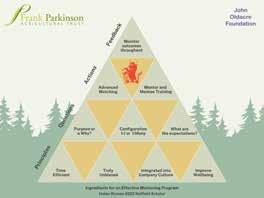



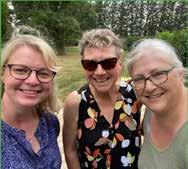
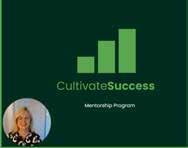
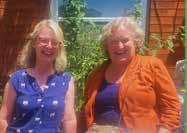
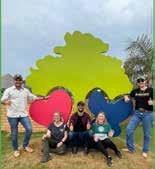


Thank you to the John Oldacre Foundation for supporting my Scholarship
Mentoring: A mechanism for driving positive change in agriculture.
Helen Wyman

The agricultural, horticultural, amenity and landscape sectors all require water. However, the UK’s water resources are becoming increasingly stretched, especially in the South and East of the country, with UK water security now a real concern. Water security is a key challenge for any country and is defined as the ability to provide a resilient water supply for all users in the long term. Other countries such as the US, Australia, Israel, Spain and Singapore are more experienced than the UK at dealing with water shortages and have developed multiple solutions to become water secure.
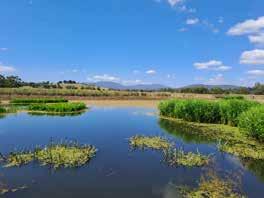
The main aim of my study tour was to visit countries which have already experienced significant water stress, and therefore have been forced to develop solutions to the problem.
Alternative water security solutions observed on my travels included the use of treated wastewater either directly or to recharge ground aquifers, large scale rainwater harvesting, use of satellite and sensors to inform irrigation regimes, water efficient irrigation such as sub-surface drip, crop breeding to improve water efficiency, desalinated water, supply chain water resilience management and holistic landscape level soil management.
All these solutions have multiple barriers preventing their uptake in the UK. These barriers are universal with other countries and between other industries. These include, financial risk of investment, stakeholder resilience to change, lack of industry knowledge on alternative technology, regulation restricting innovation, challenges of inter-disciplinary working and a low support for long-term planning.
However, I observed many examples of how stakeholders have often managed to overcome these barriers to implement water resilient projects. Common themes in overcoming barriers include, having key stakeholders driving projects forward, support and long-term planning from government, inter-disciplinary working, and local ownership of problems.
Due to complexity of the issue, multiple solutions will be required for dealing with the UK’s water security problem. None are easy to implement and will require extensive changes to way we view and manage water resources in the long term.
Seeking to: - Inspire, encourage and develop excellence in the management and leadership of UK Horticulture.
The Company is proud to support its second Nuffield Scholar, Dr Tom Young. We look forward to hearing about his research and to sharing in his knowledge, experience and vision.
The Company is keen to support future scholars and would welcome proposals which focus on (but are not limited to) horticultural industry related projects, such as: -
Using horticultural output to advance greening of cities
Green walls or green rooves in urban design
Integrating horticulture in urban development
Research and advancement of sports and amenity turf
Hydroponic growing methods in horticultural production
Tissue culture for varietal development
Soil structure, fertility and management
Climate change and plant health management
Improving drought tolerance in plants and grasses
Implementation of artificial intelligence & data management
Improving biosecurity and conservation
Members of The Gardeners Livery Company include industry leaders engaged in commercial horticulture, as well as professional and amateur gardeners. Resources are directed toward charitable interests, including horticultural career development, training and education
For more information go to www.gardenerscompany.org.uk




Raw ambition - What it takes to grow a high value artisan cheese industry and why it is important
Alan & Anne Beckett NSchs

Mapping out a green growth strategy for UK horticulture
Worshipful Company of Fruiterers & Food Chain Scholarship

Effective monitoring methods that measure ecological outcomes in grazing systems
The Company of Merchants of the Staple of England & AHDB
Achieving excellence in university and college farms. Implementing best practice from home and abroad
John Oldacre Foundation

Frost protection and post frost care in cool climate viticulture
John Oldacre Foundation

Farm to glass: Assessing how farms can benefit from future trends in the drinks industry
Alan and Anne Beckett NSchs
How plant breeding could reduce farm inputs in the future
Worshipful Company of Farmers with Savills & Central Region Farmers Trust

Regenerative agriculture: a shared ambition for the future of farming?
McDonald’s Restaurants

Sustainable forage cropping for dairy cattle in the face of climate change challenges
The Trehane Trust
What is the formula for family business success?
Thatchers Cider

I can’t believe it’s not beef! Can livestock compete with alternative proteins?
Thomas Henry Foundation

Evaluating the potential cost benefits of electronic data recording for UK sheep and beef farms
John Oldacre Foundation




affecting
The Studley College Trust

How can retail and supply chains create demand for more sustainable aquaculture feed?
Richard Lawes Foundation
Why can’t farmers be leaders? How getting to know yourself, your team and your community can make a farm a great place to work
Worshipful Company of Farmers with Savills


Too fat? The role of condition in maternal livestock in areas with extreme seasonal variability
Royal Highland & Agricultural Society of Scotland & Worshipful Company of Farmers with Savills

Cattle health schemes: what does success look like?
Central Region Farmers Trust

Counting Carbon; Does a Smaller Footprint Leave Less Environmental Impact?
Defining Sustainability in the Dairy Sector
Yorkshire Agricultural Society
Can carbon neutral edible insects be farmed profitably?
Richard Lawes Foundation
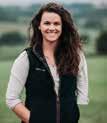
Building trust in British farming through increased transparency of on-farm livestock production
Dartington Cattle Breeding Trust & AHDB

EMILY
The mob-grazed flerd: improving soil, biodiversity and farm incomes
Elizabeth Creak Charitable Trust (a Clyde Higgs Scholarship)


Living the Farming Ladder The Trehane Trust

ROB HAVARD
Evaluation of beef cattle selection methods for profitability in grass fed production systems
Worshipful Company of Butchers

Can maincrop potatoes be grown in a regenerative system?
Alan & Anne Beckett Award
Utilisation and impact of robotics on large scale dairy farms
MacRobert Trust

BEN HUNT
Can you farm carbon?
John Oldacre Foundation

TOBY SIMPSON
Catch and cover cropping opportunities in UK arable agriculture
McDonald’s UK and Ireland


Do regenerative farming practices pave the way for UK agriculture to meet Net Zero?
McDonald’s UK and Ireland

Mentoring: A mechanism for driving positive change in UK agriculture
John Oldacre Foundation
Poultry Manure: a study into the storage, bi-product capabilities & the impact on environment sustainability BEMB Trust

TOM YOUNG
Sustainable water use: Opportunities for agriculture based on cross-disciplinary knowledge sharing Worshipful Company of Gardeners

MIRANDA
Worming like a Winner: A guide to a sustainable UK sheep flock
Royal Welsh Agricultural Society, Worshipful Company of Farmers with Savills & Young Nuffield Award

Biomass heat into cooling within intensive poultry production - mitigating climate change
NFU Mutual Charitable Trust

HENRY ALEXANDER
A comparative analysis of seaweed farming - lessons for the UK
Richard Lawes Foundation

BYRON BRAITHWAITE
Creating forests that thrive in a changing climate John Oldacre Foundation

HANNAH FLOWER
Displacing empty calories with nutrient dense food: How can UK farmers be rewarded for practices that promote nutrient density?
Yorkshire Agricultural Society and Worshipful Company of Fruiterers

HARRY BARNETT
How to counteract the agronomic and market challenges facing UK potato growers
McDonald’s UK and Ireland and Royal Norfolk Agricultural Association

LUKE BREEDON
The New Black Gold? Can Biochar Help to Improve Agricultural Efficiency, Productivity and Carbon Sequestration in the UK
Alan and Anne Beckett NSchs

RUTH GRICE
Working together: How dairy farmers & environmental organisations can achieve sustainable food security & combat climate change
AHDB

HANNAH BATTY
Processes. People. Potential: Optimising business structure and team management to improve health, welfare and performance in our dairy industry
Trehane Trust

WILLIAM BROWN
Finding synergy between the traditional farming model and vertical farms
Central Region Farmers Trust and Food Chain Scholarships

JONNY HANSON
Large carnivore reintroductions to Britain and Ireland: farmers’ perspectives and management options
Thomas Henry Foundation

JAMES BLISS
Born to be wild? Does the future success of marginal farming lie in the untapped potential of rewilding?
Worshipful Company of Farmers with Savills

THOMAS CLARK
Gate to grid, a responsible model for integrated energy production
Elizabeth Creak Charitable Trust (a Clyde Higgs Scholarship)

ALISTAIR MCBAIN
A Review of Alternative Protein Sources for Net Zero
Egg Production in the UK MacRobert Trust

THOMAS PEARSON
What can farmers do to make a positive impact on the health of their local community?
NFU Mutual Charitable Trust

Turning the tide on the anti-farming agenda
Royal Highland and Agricultural Society of Scotland

GEORGE ROACH
There is a buzz around insect protein in the broiler industry, does the idea have legs?
The Poultry Meat Award: Aviagen, Cobb Europe & Hubbard

ROISIN TAYLOR
Revival and Survival: adapting for a 2-degree warming world within the British Cut Flower Industry
John Oldacre Foundation

ANDREW SINCOCK
Waste not, want not - How to maximise your organic manures
McDonald’s UK and Ireland

IZAK
The Future of Work is NOT what you think it is! AgriLeadership for tomorrow’s world East Sussex NFU

SYLWIA SOBOLEWSKA
Feed Efficiency and Targeted Genetic Selection as the Key for Sustainable Performance and Profitability in Laying Hens
BEMB Research and Education Trust

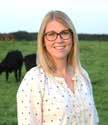
Can calf with cow dairy farming become the future of the dairy industry?
John Oldacre Foundation

Enhanced Meat Eating Quality from 100% Pasture and Forage Systems
Royal Highland and Agricultural Society of Scotland and Worshipful Company of Butchers

Elevating the value of, pride in and respect for British Fine Cider Sponsor TBC

LAURA AWDRY
Every Calf has a Value, but is every calf equal? Sustainable and profitable dairy beef production in the UK
Dartington Cattle Breeding Trust

What is the future for organic farming? Sponsor TBC

DAN JONES
Upland sheep farming, finding the balance: production, conservation and climate change
John Oldacre Foundation
Let’s get Agricultural Education into the Tramlines
The MacRobert Trust

Neurodiversity in Agriculture
McDonald’s UK & Ireland and Richard Lawes Foundation

Enhancing the resilience of the UK Dairy Sector: how do we prepare for increasingly volatile climate conditions?
Elizabeth Creak Charitable Trust (a Clyde Higgs Scholarship)

LUCY GEORGE
Tea cultivation within agroecology - the development of a high value opportunity for UK farms
Royal Welsh Agricultural Society

From farm to fork, from barn to brand; the models, advantages and disadvantages of farm diversification
NFU Mutual Charitable Trust

The disconnection between eating quality in the UK beef industry - from farm to fork Sponsor TBC

IFAN ROBERTS
Inspiring the next generation of dairy entrepreneurs Trehane Trust


TOM SCROPE
Growing Together: Exploring New Ways of Farmer Knowledge Exchange to Secure Stronger Soils
Sponsor TBC

AMY STONER
UK Food Security: A forwardthinking approach to ensure resilient fresh produce supply chains
Food Chain Scholarship

Minerals for Ruminants - Are we getting it right?
Sponsor TBC

DAVID TAVERNOR
Practically and profitably diversifying your farm business with black soldier fly production
Alan and Anne Beckett NSch

HARRY WINSLET
For Peat’s Sake –Do We Need A New Approach To Peatland Agriculture?
Royal Norfolk Agricultural Association
DAN SMITH
Generation Regeneration. We need you. McDonald’s UK and Ireland

JAMIE STOKES
Doing More with LessLearning From the Small to Teach the Big Worshipful Company of Farmers with Savills

SAM WATSON-JONES
Per Plant Farming, Artificial Intelligence and the Future of Arable Farming
Sponsor TBC

CORMAC WHITE
Developing a Sustainable Grazing-based Small Ruminant Dairy System suitable for New Entrants with alternative supply chain models
Thomas Henry Foundation

RACHEL YARROW
The dream British Cheese
Goat: could a pasture based dairy goat system ever work at scale in the UK?
Central Region Farmers Trust

The Nuffield Farming Northern Ireland Association is delighted to be hosting the 2024 Nuffield Farming Conference as it makes a return visit to Northern Ireland.
The conference will take place on
Wednesday 20th and Thursday 21st November 2024 at
We are excited to be returning to Belfast for the 2024 Conference. The Conference will be held at the historic Assembly Buildings in Belfast City centre. The annual dinner will be held on Wednesday 20th November in the iconic Titanic Suite at Titanic, Belfast.
Offers of support for the 2024 Nuffield Conference, including food and drink for the conference menus, and sponsorship, are especially welcome. Please contact Jason Rankin NSch jason.rankin@btopenworld.com
We look forward to welcoming you to Northern Ireland next year.


The Farmers Club, farming’s home from home in London. All members are all involved in farming, agriculture, food, drink and related industries and welcomes all ages and families to its club at 3 Whitehall Court, London.
Offering a home from home environment with accommodation, an excellent Restaurant showcasing great British food and a Bar that has witnessed many a farming debate. The Shaw Room and the Business Suite are available if you if need to keep up with business during your stay and there is a range of function rooms some with views of The River Thames, that are available to book for business and social occasions. The wonderful Terrace overlooking The River Thames is quite simply the perfect place to watch the world go
A busy Club Events programme takes place throughout the year covering farming and agricultural subjects along with many a social event, for your diary. The team also come to you as The Club goes “Club to Country” to meet its members at agricultural shows and trips around the UK and our vibrant Under 35’s membership section, has an array of events to suit their diaries and interests.
The Farmers Club has a great reputation for the best of British food and is ideal for business, pleasure and leisure.
If you’d like to become a member and benefit from meeting likeminded people, please do visit www.thefarmersclub.com for more details.
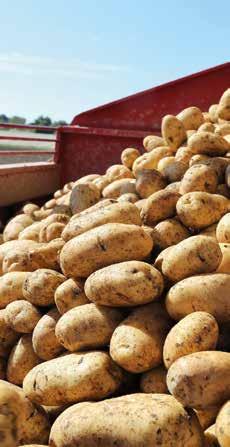

The Oxford Farming Conference
– 5th January
Nuffield Farming open evening and applications go live 24th January
Dairy Tech - Stoneleigh 7th February
Nuffield 2024 Scholars Pre-CSC Briefing 3rd – 7th March
2024 CSC 9th – 17th March
Devon County Show 16th – 18th May
Royal Bath and West Show 30th May – 1st June
Kenilworth Show
June 2024
Royal Cornwall Show June 2024
Cereals 11th – 12th June
South of England Show 7th – 9th June
Royal Three Counties Show 14th – 16th June
Lincolnshire Show
– 20th June
Royal Highland Show 20th – 23rd June
Royal Norfolk Show 26th – 27th June
Groundswell 26th – 27th June
Great Yorkshire Show 9th – 12th July
Royal Welsh Show 22nd – 25th July
Applications for Nuffield Scholarships close
• 2024 Bullock Award
• 2025 Nuffield Farming Scholarships 31st July
UK Dairy Day 11th September
October
October 2024 Announcement
If you have benefited from the Nuffield experience you will know what a positive impact it can have on an individual’s life and career. You will also know that Nuffield benefits the wider industry and is playing a vital role in helping Society meet a variety of environmental challenges.
Nuffield is very fortunate in that it has enthusiastic sponsors who support individual scholars but covering all our overheads and funding additional activities is an ongoing challenge. A gift in your Will can help ensure that the Nuffield experience is available to future generations.
If you would like to remember Nuffield in your Will, there are three main types of gift you can make:
• Pecuniary Gift - is the gift of a particular sum of money
• Specific Gift - is the gift of a specific item that could be for example - a property, a painting, a piece of jewellery or an antique.
• Residuary Gift - is the gift of all (or part) of the value of your estate after debts, liabilities and other legacies have been paid
If you would like to leave Nuffield a gift in your Will the following wording may be helpful:
“Igive(detailsoflegacy)toNuffieldFarmingScholarshipTrustLimited (CharityRegistration Number:1098519),SouthillFarm,StapleFitzpaine,Taunton,Somerset,TA35SH,foritsgeneral charitablepurposesandIdirectthatareceiptfromtheChairmanordulyauthorisedofficershall beavalidandappropriateformofdischarge.”
If you have already made your Will and decide that you would like to add a gift to Nuffield, the following wording for a codicil may be helpful when you visit your Solicitor or legal advisor:
“I(name)of(address)declarethistobemyfirstcodiciltomylastWilldated(date).Igive (detailsoflegacy)toNuffieldFarmingScholarshipTrustLimited(CharityRegistrationNumber: 1098519),SouthillFarm,StapleFitzpaine,Taunton,Somerset,TA35SH,foritsgeneralcharitable purposesandIdirectthatareceiptfromtheChairmanordulyauthorisedofficershallbevalidand appropriateformofdischarge.InallotherrespectsIconfirmmyWill.”
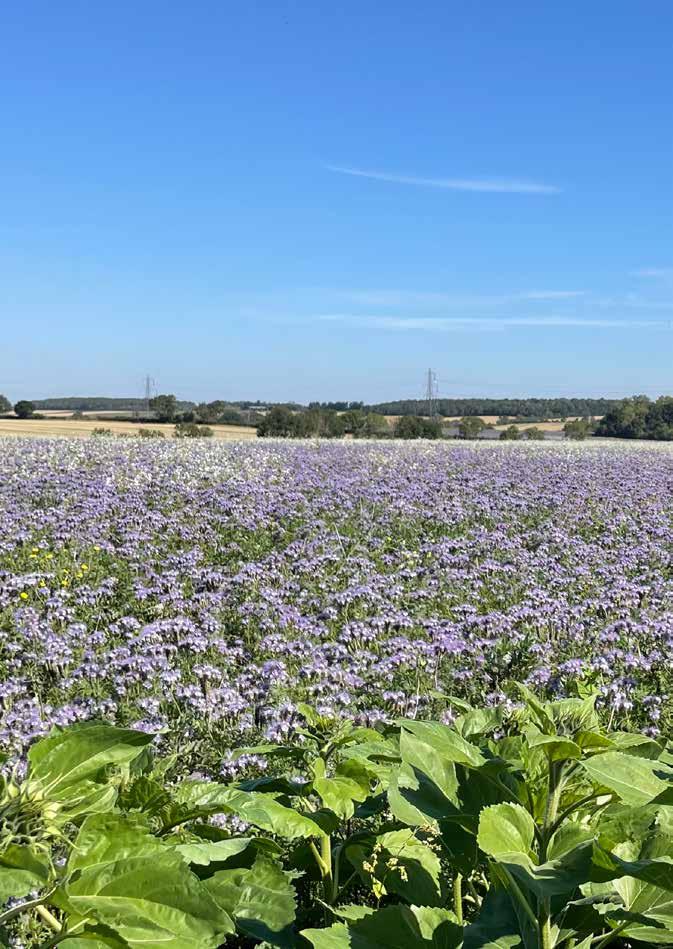
Nuffield is an organisation that awards individuals with life changing opportunities that span their personal and professional lives, with a view to developing agricultural sector leaders and innovators of the future. We have funding available to sponsor overseas travel and assist with a period of study, and we’re always looking to attract new candidates. If you are farming yourself, or work in an industry associated to agriculture and rural industry, then please take the opportunity to explore our website and find out what Nuffield has to offer.
WWW.NUFFIELDSCHOLAR.ORG